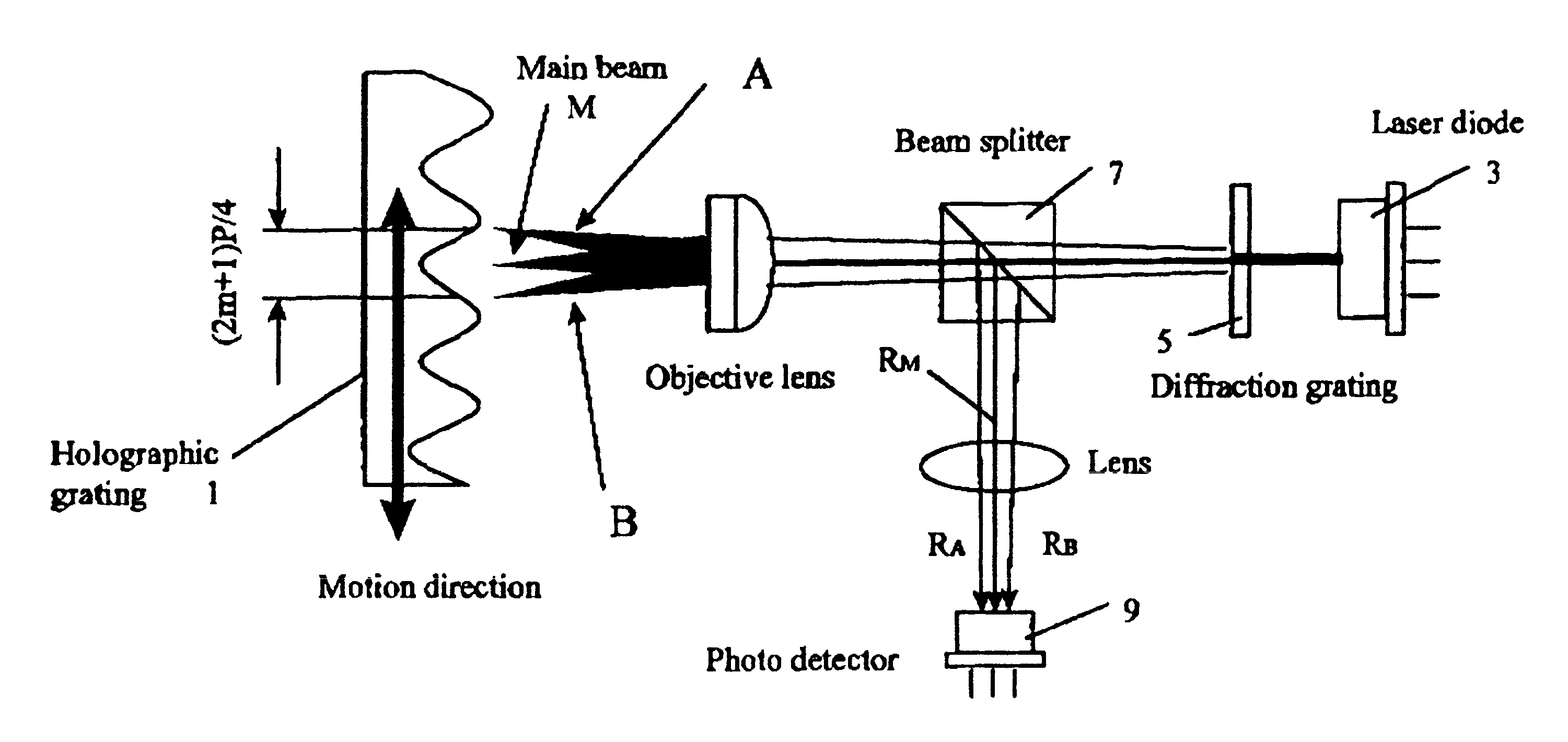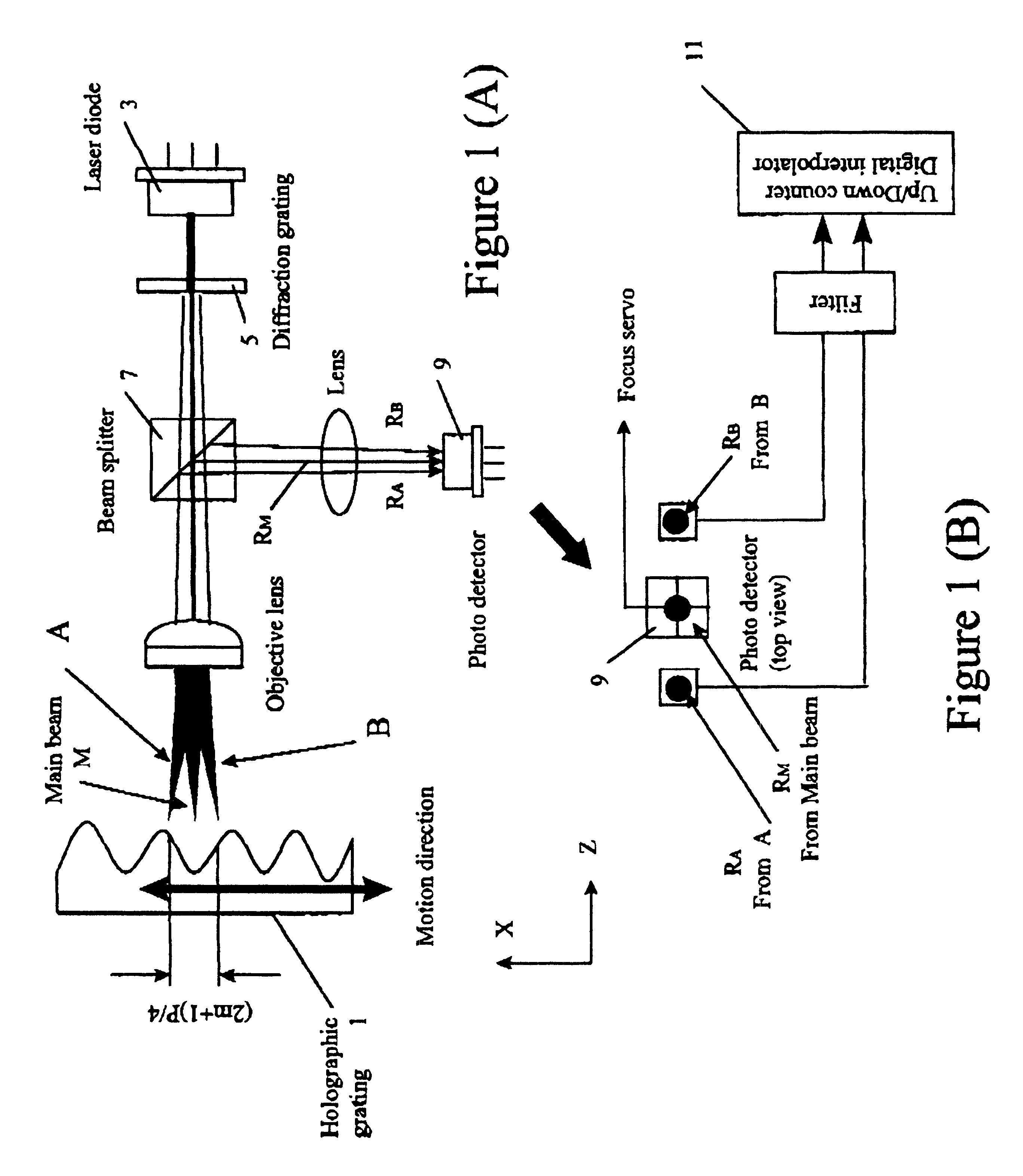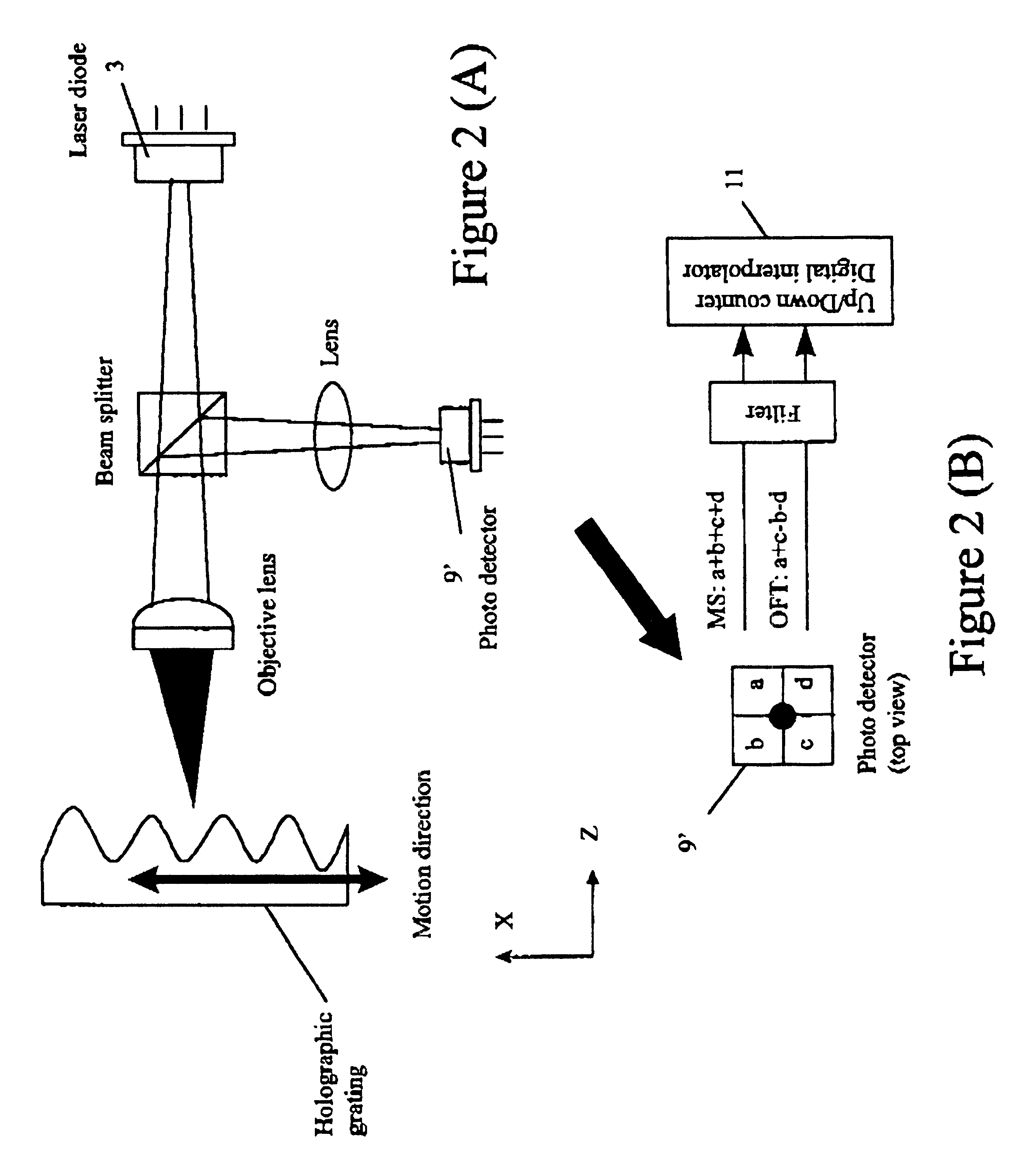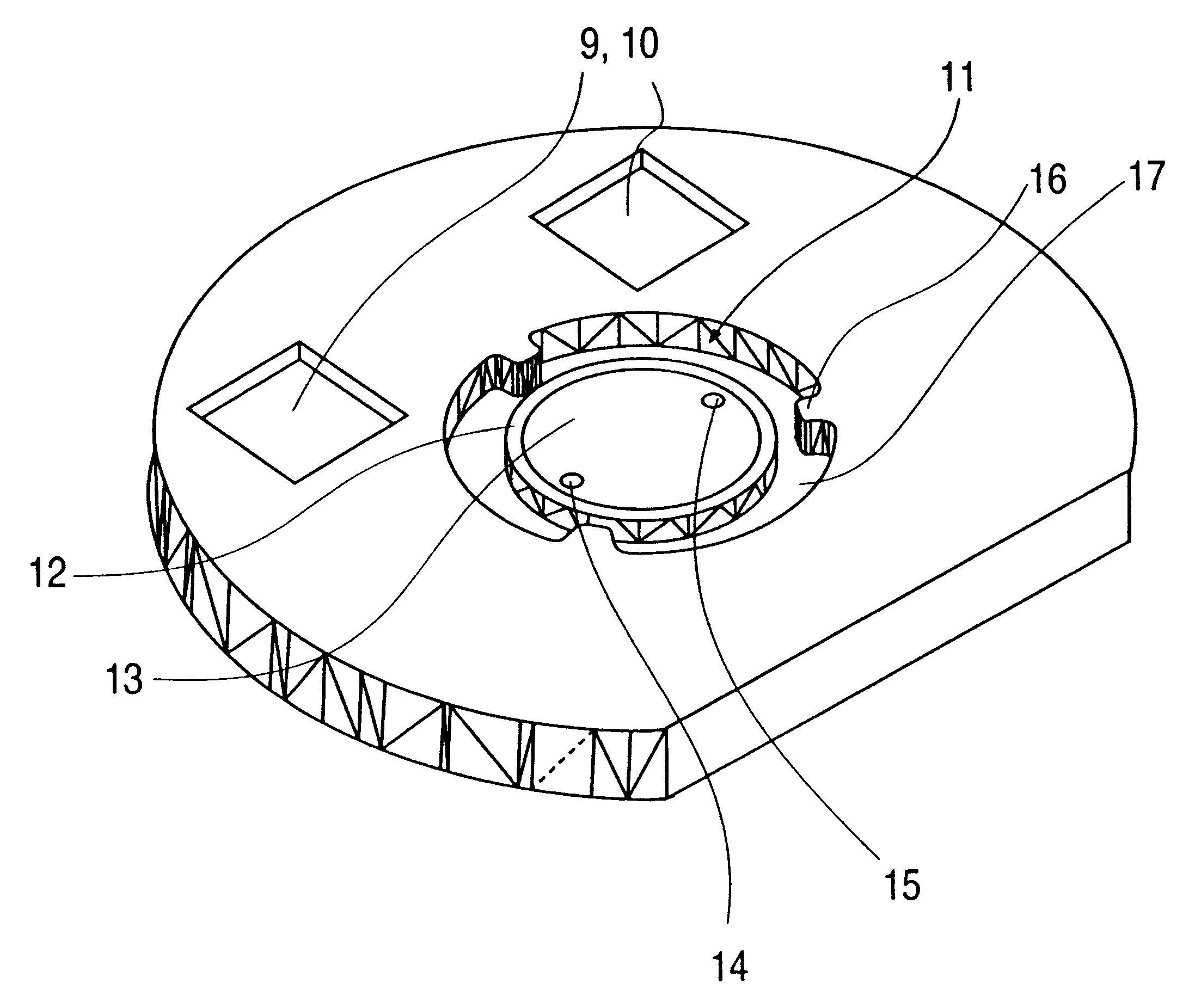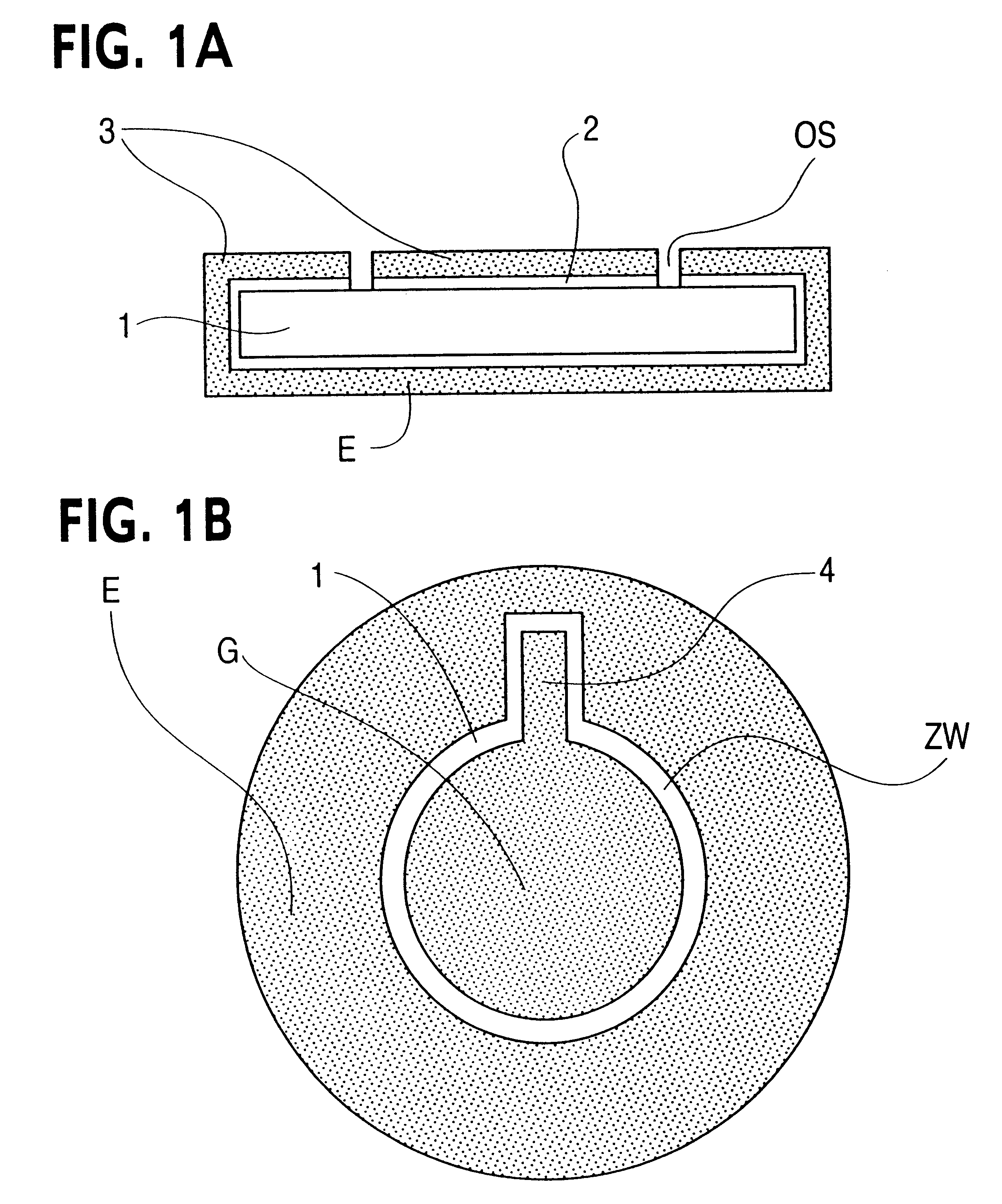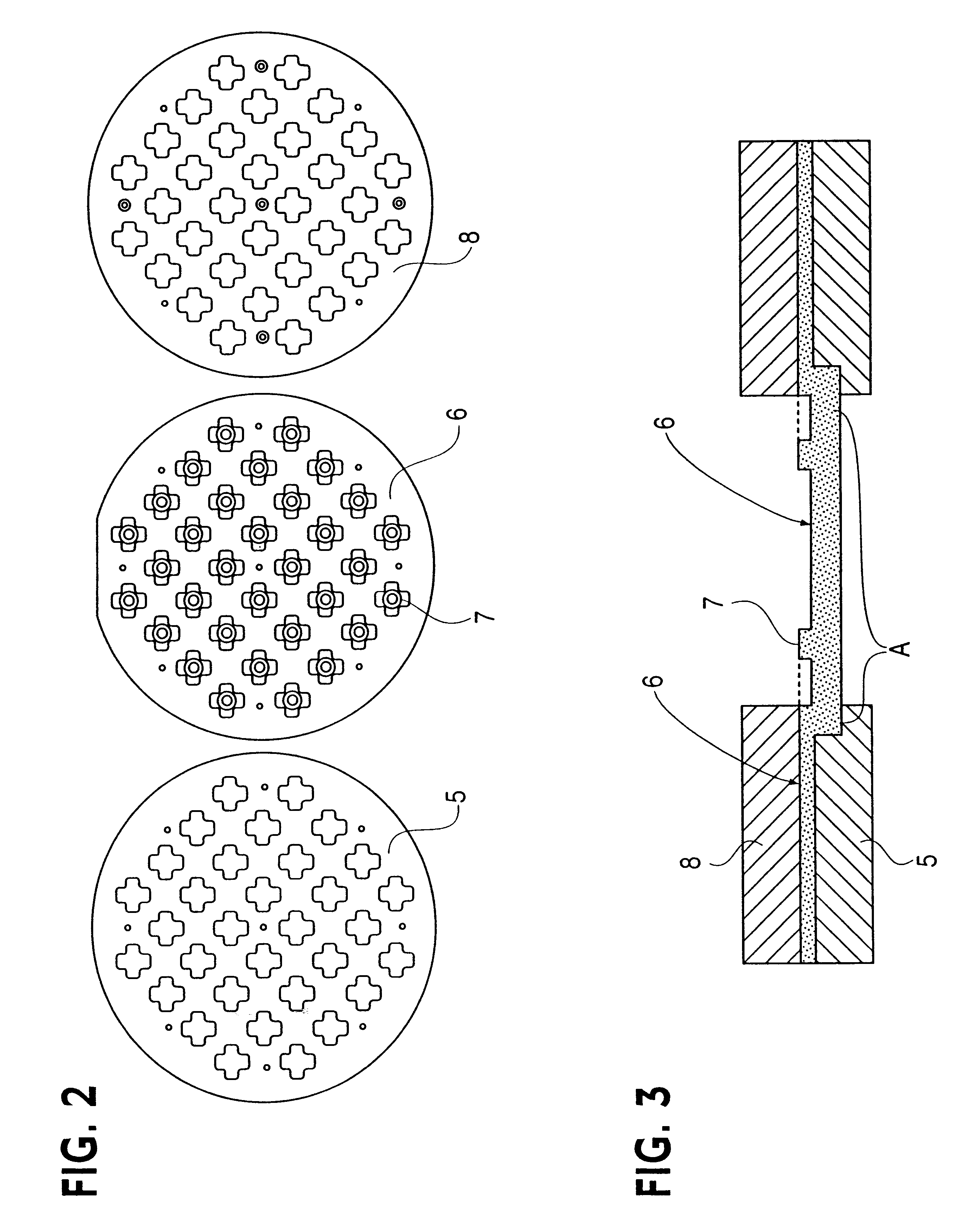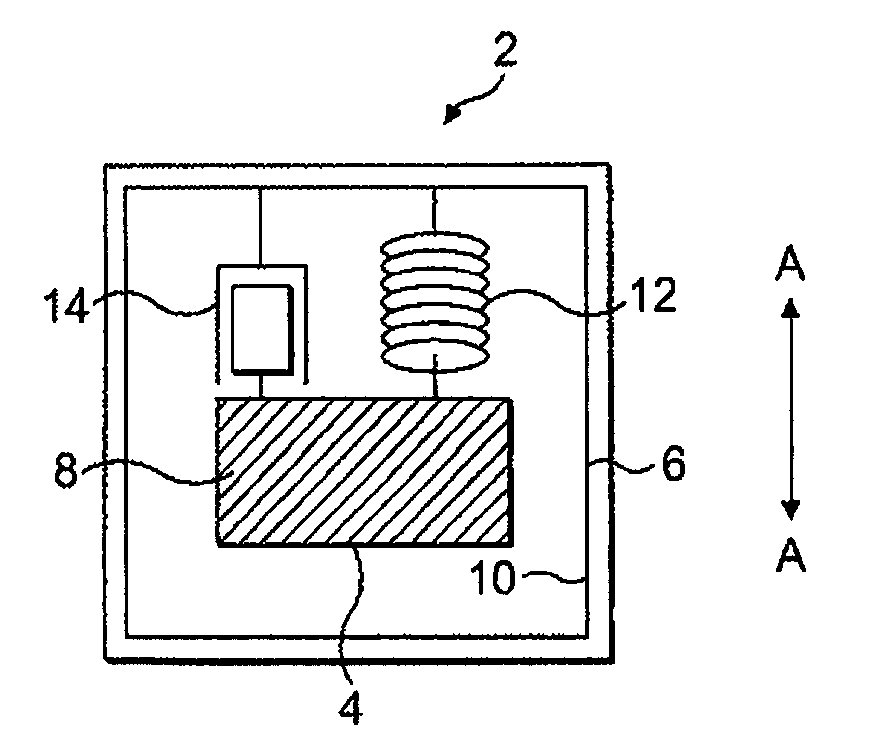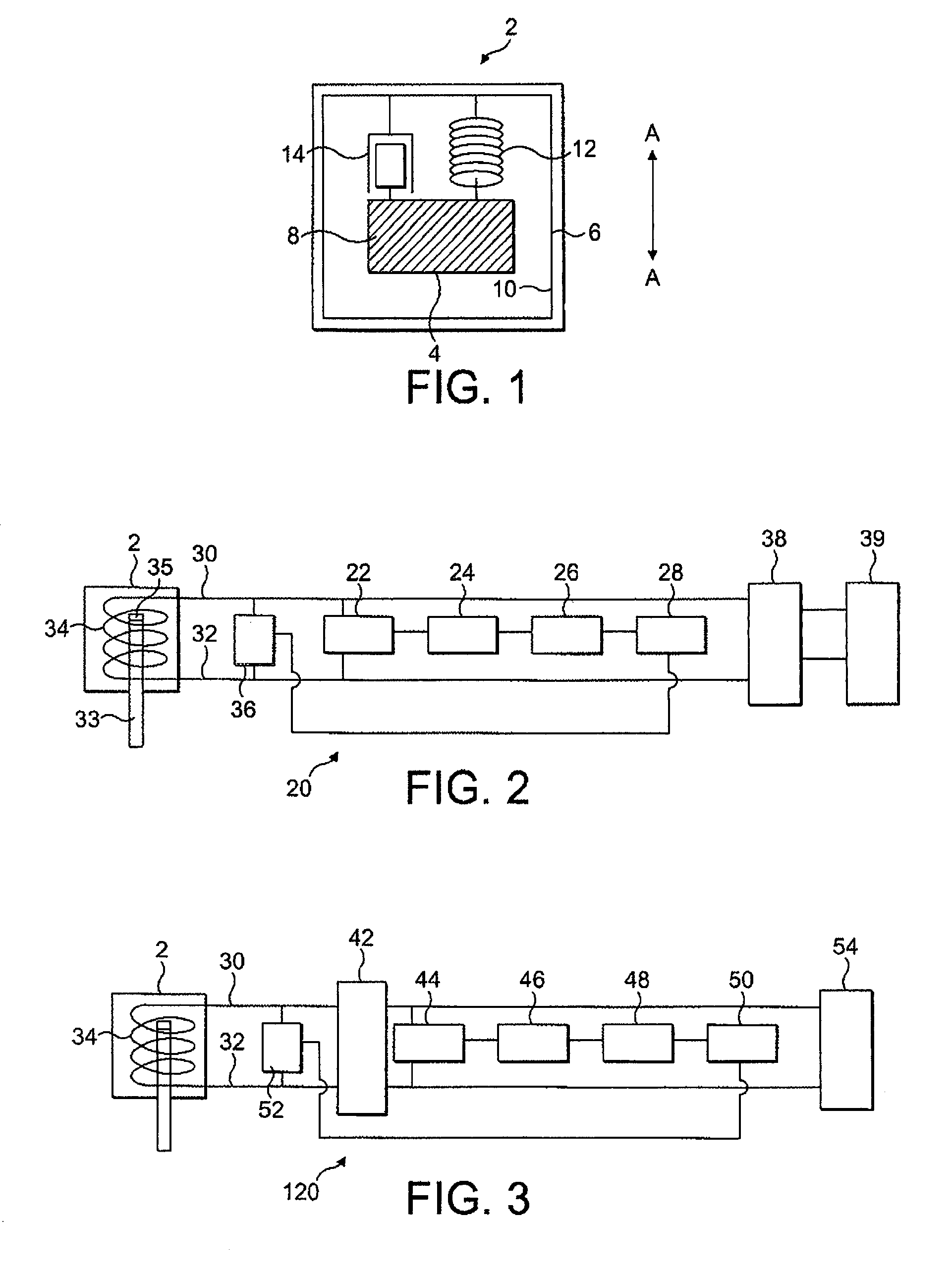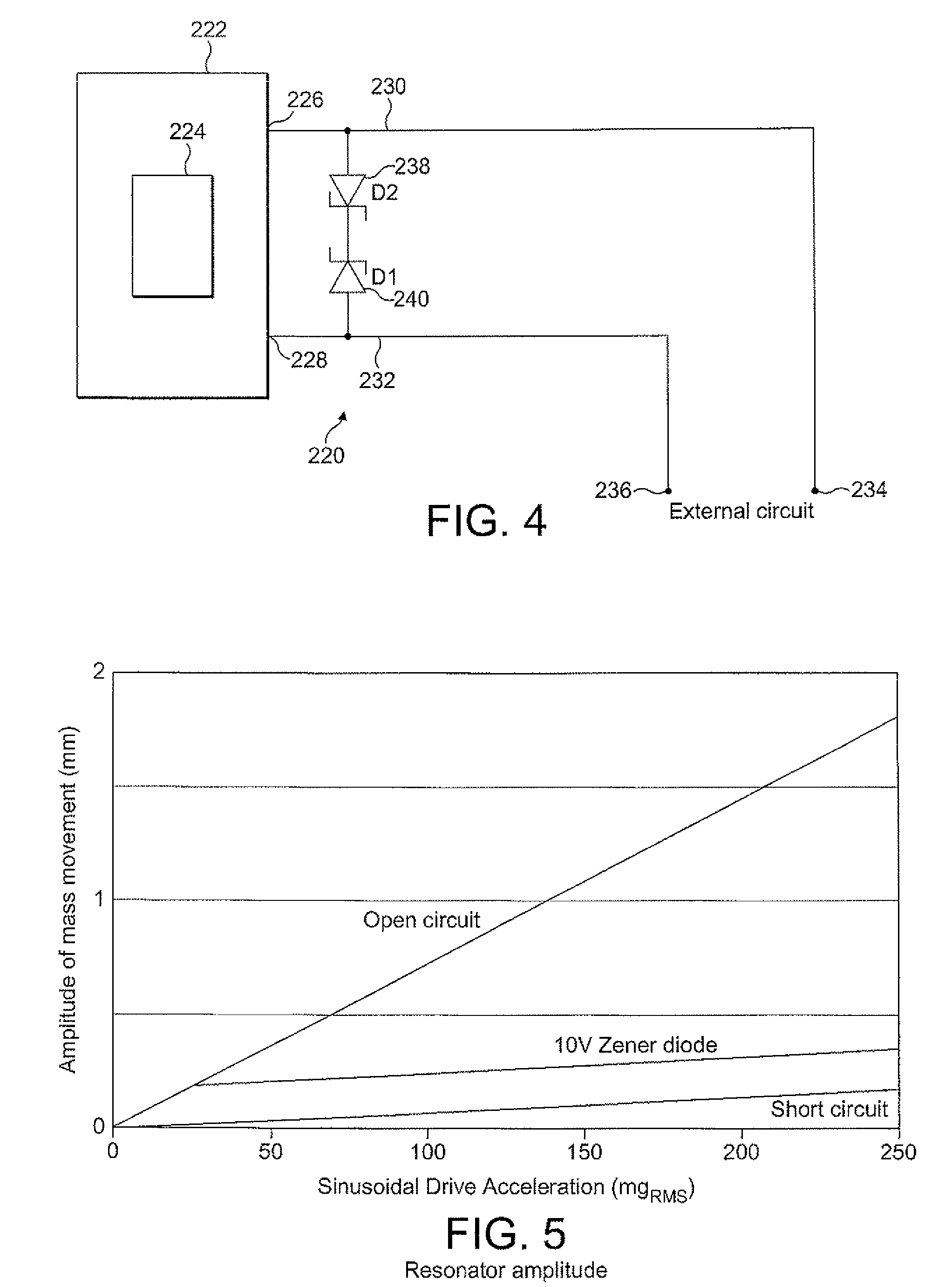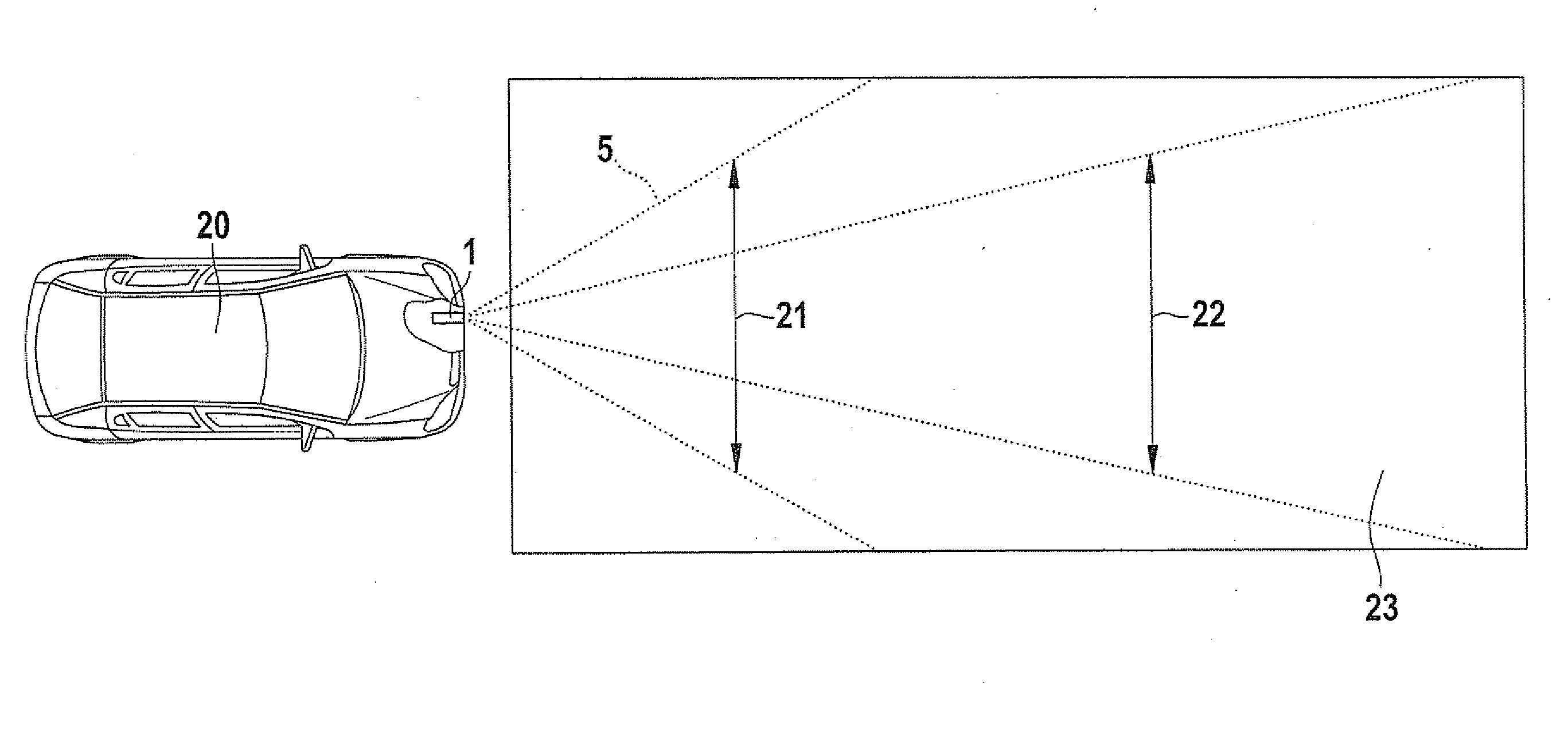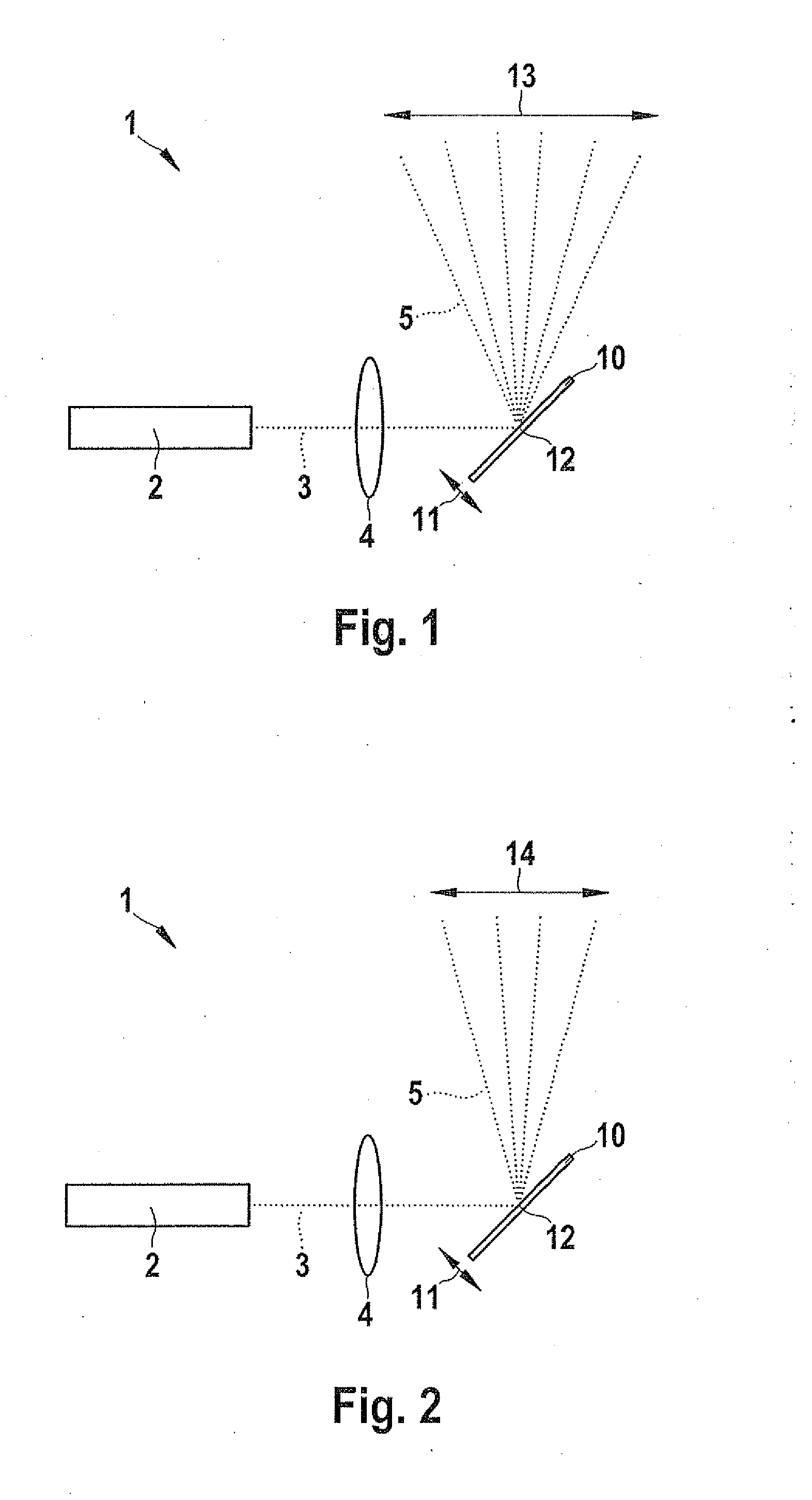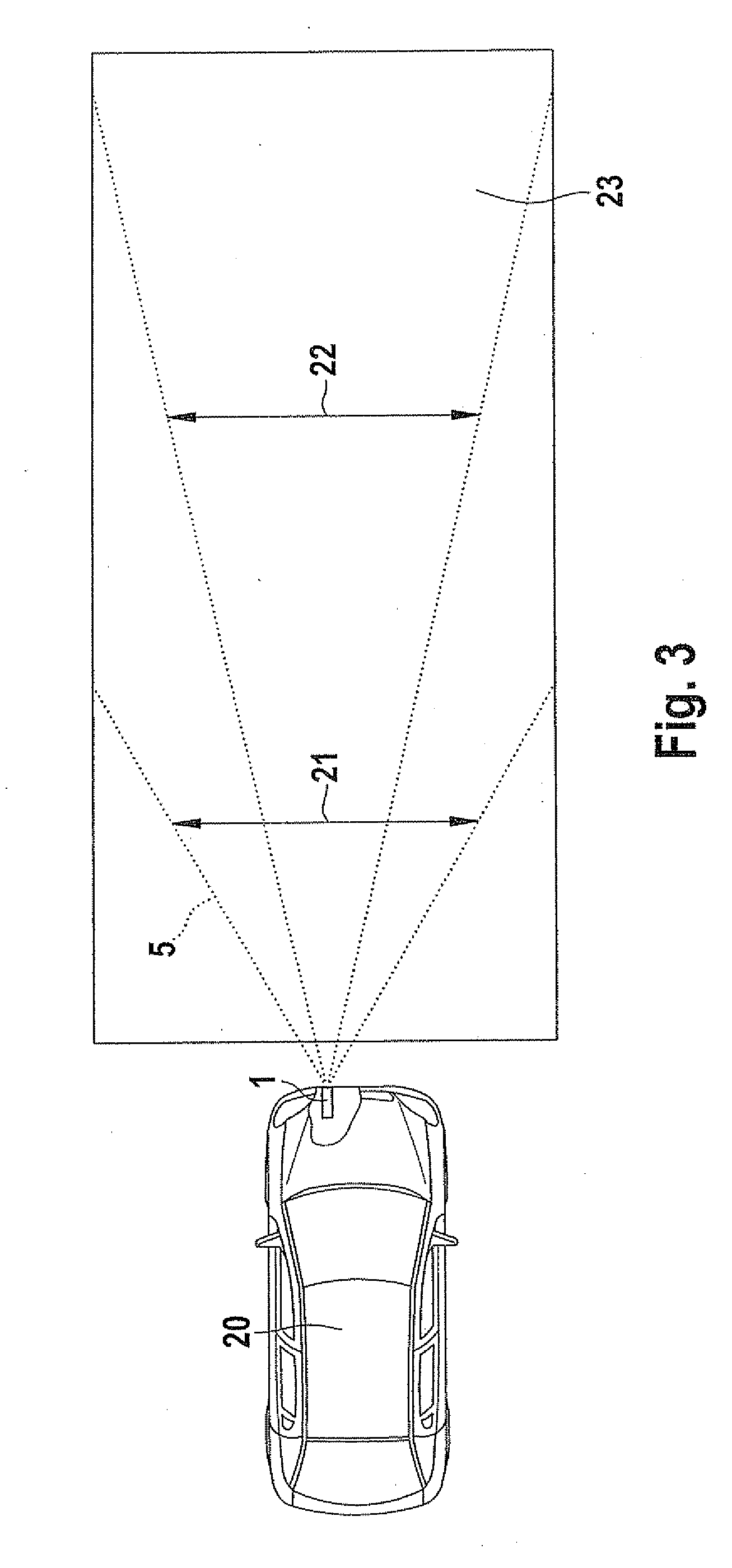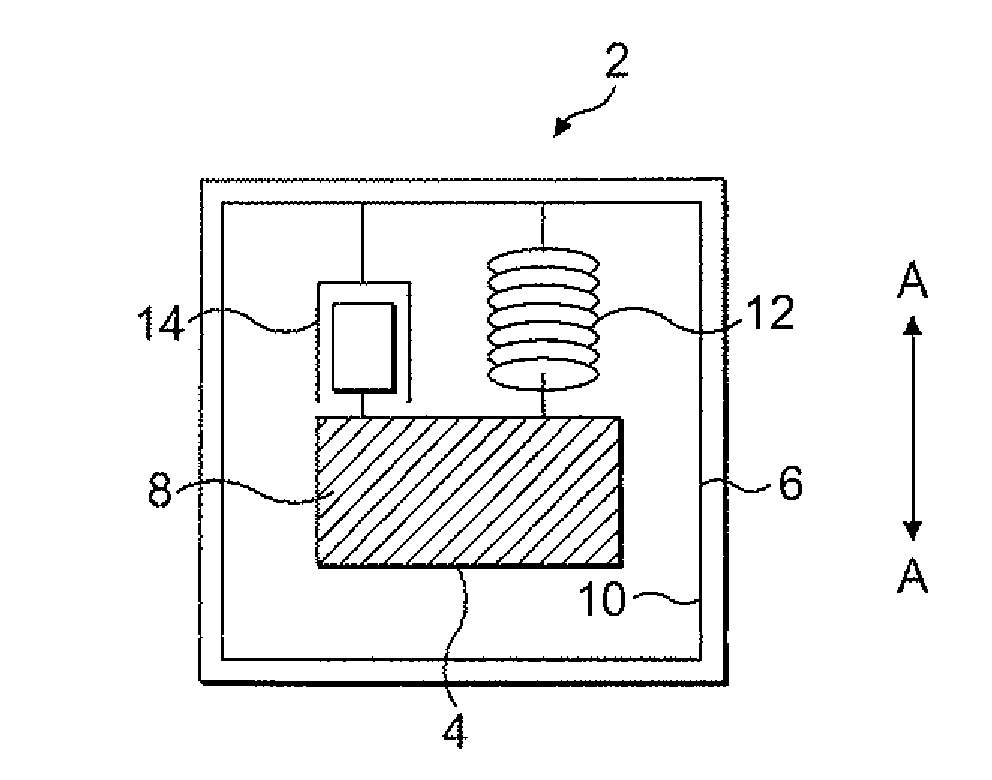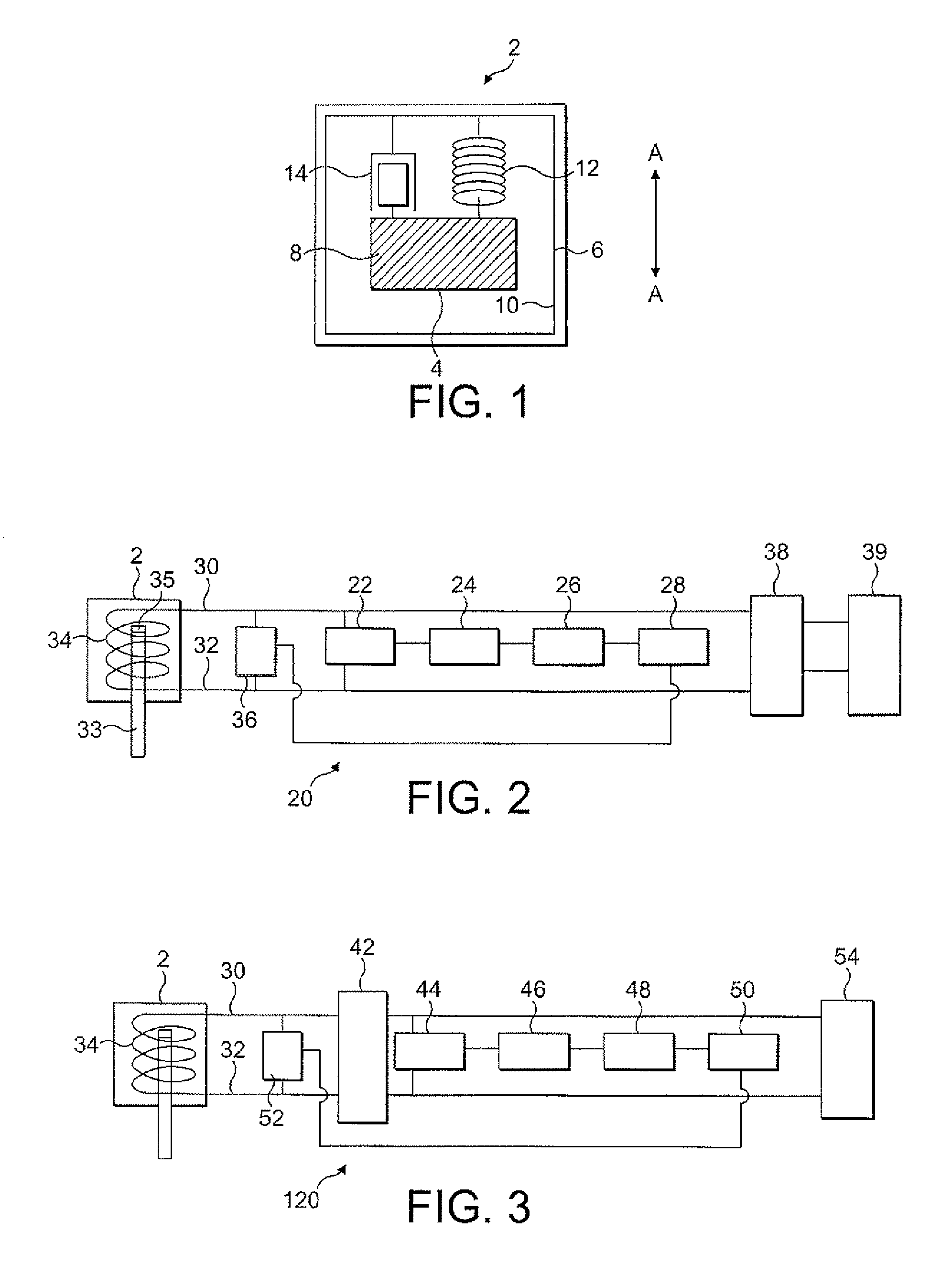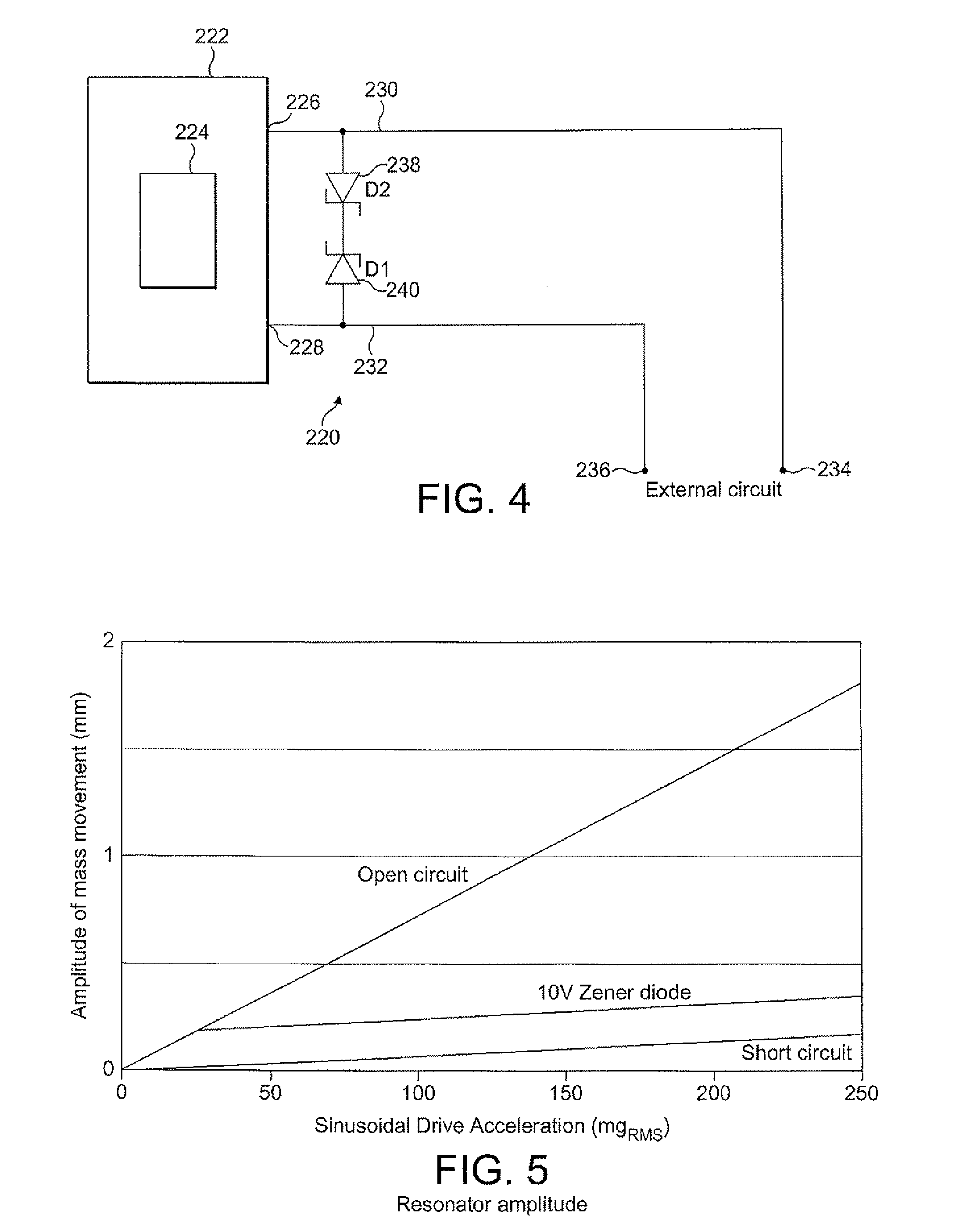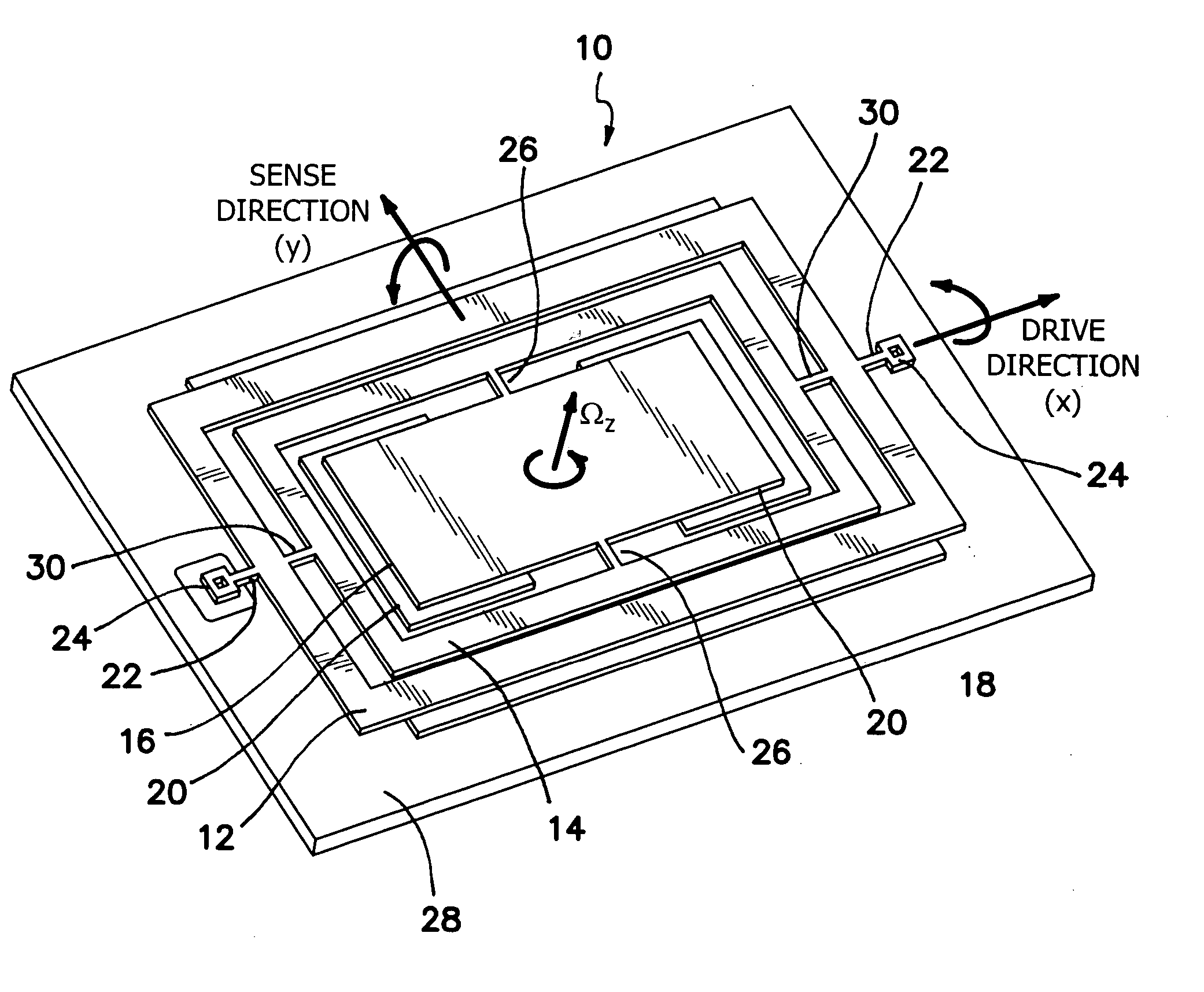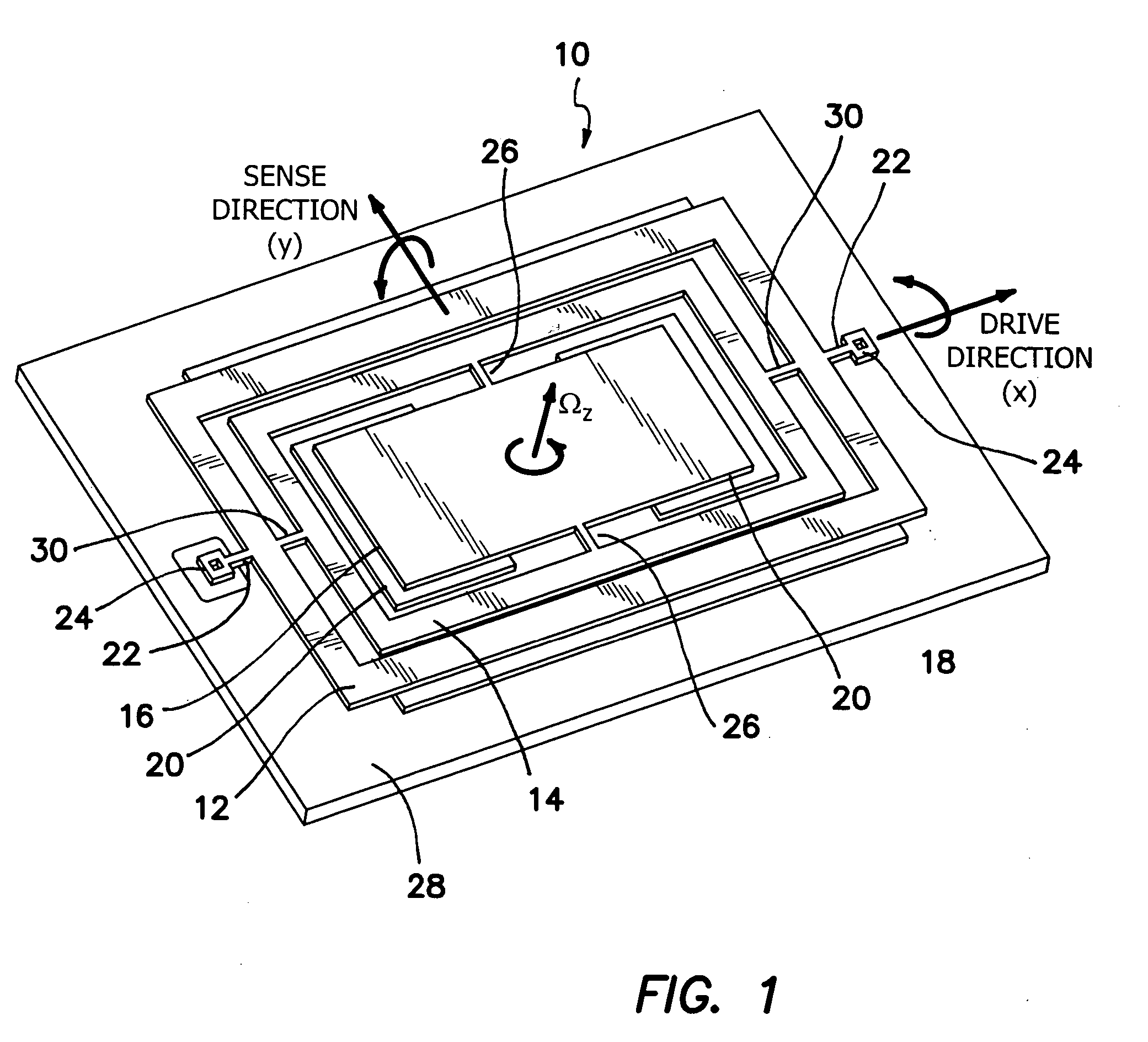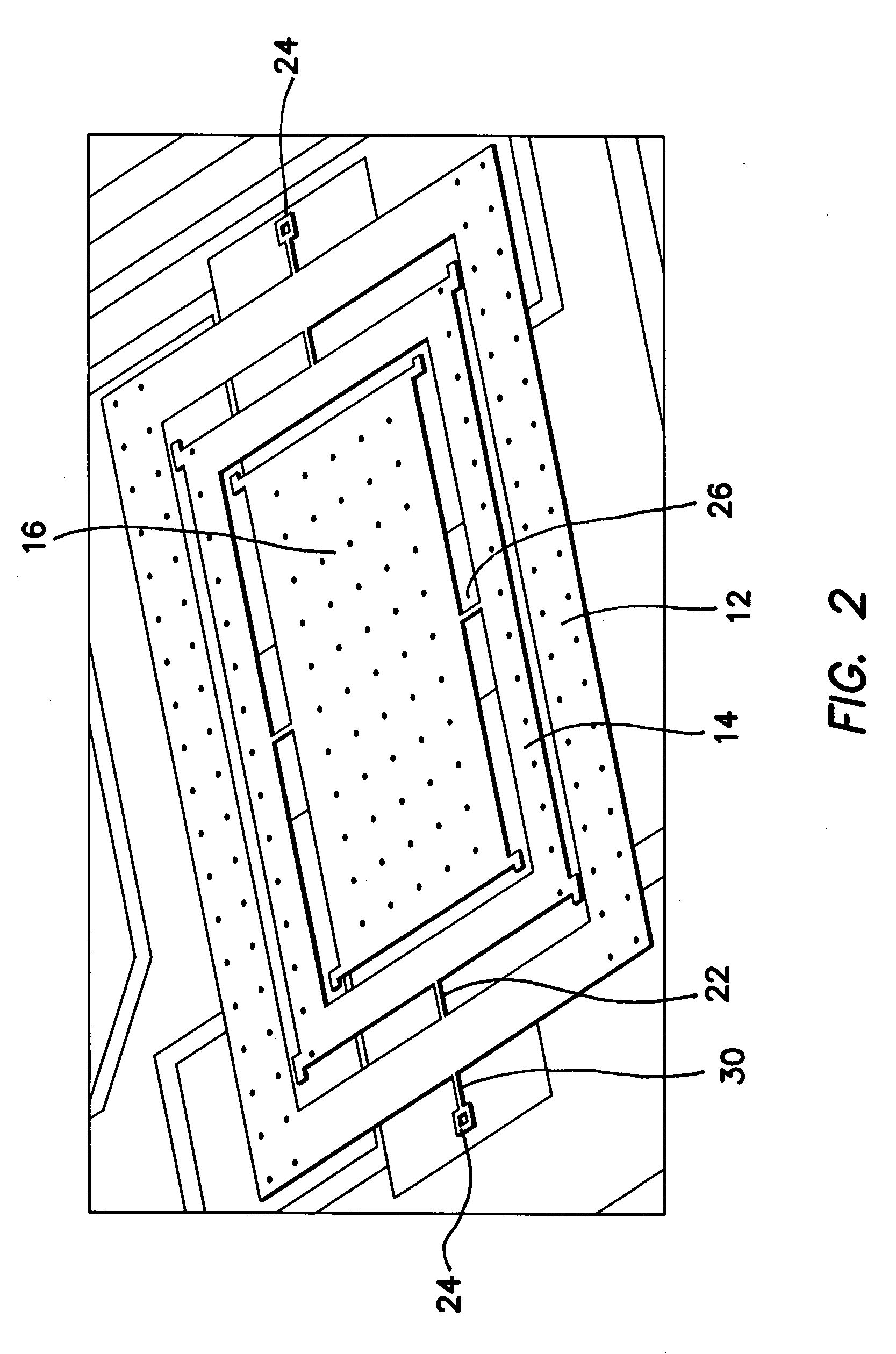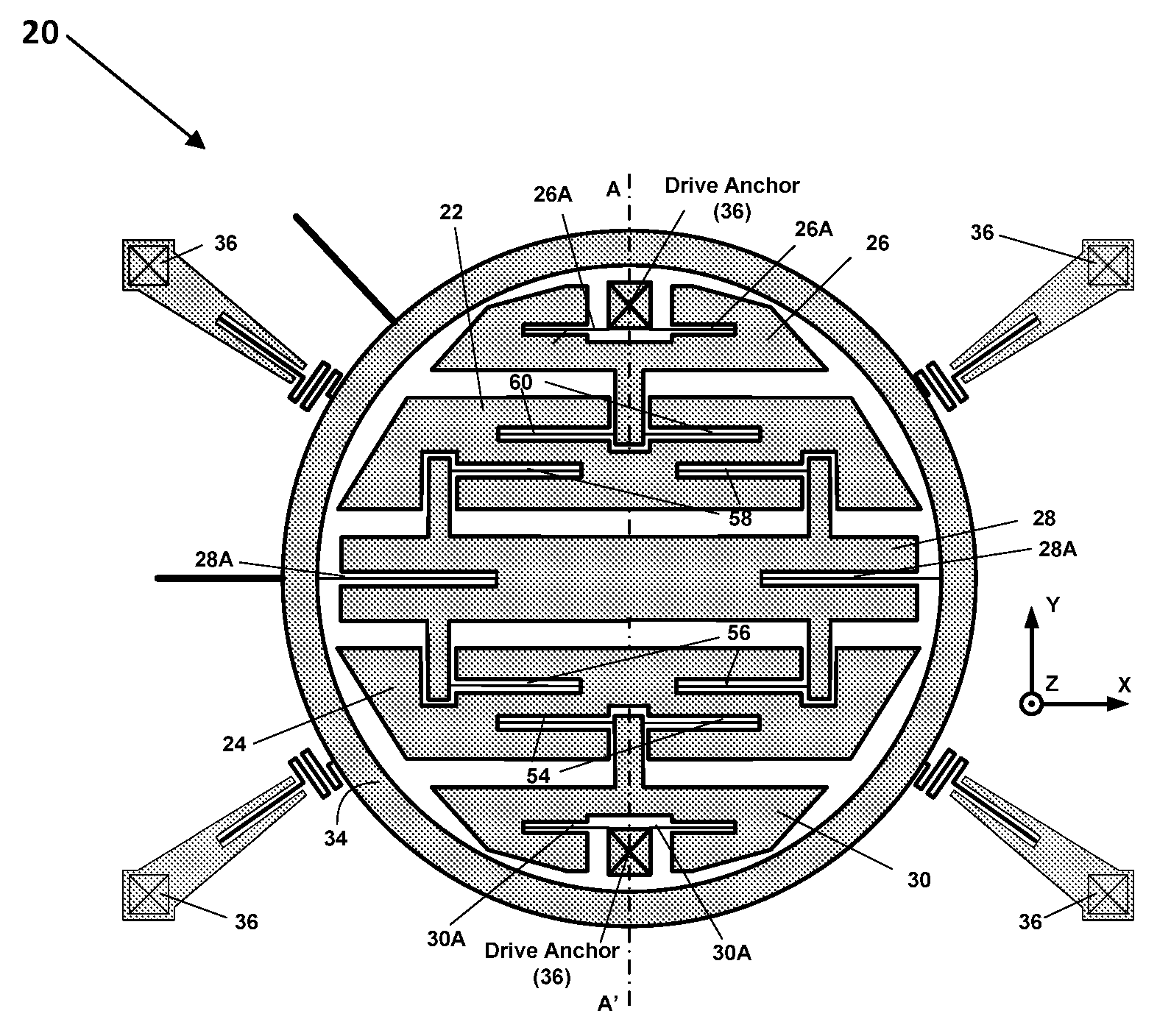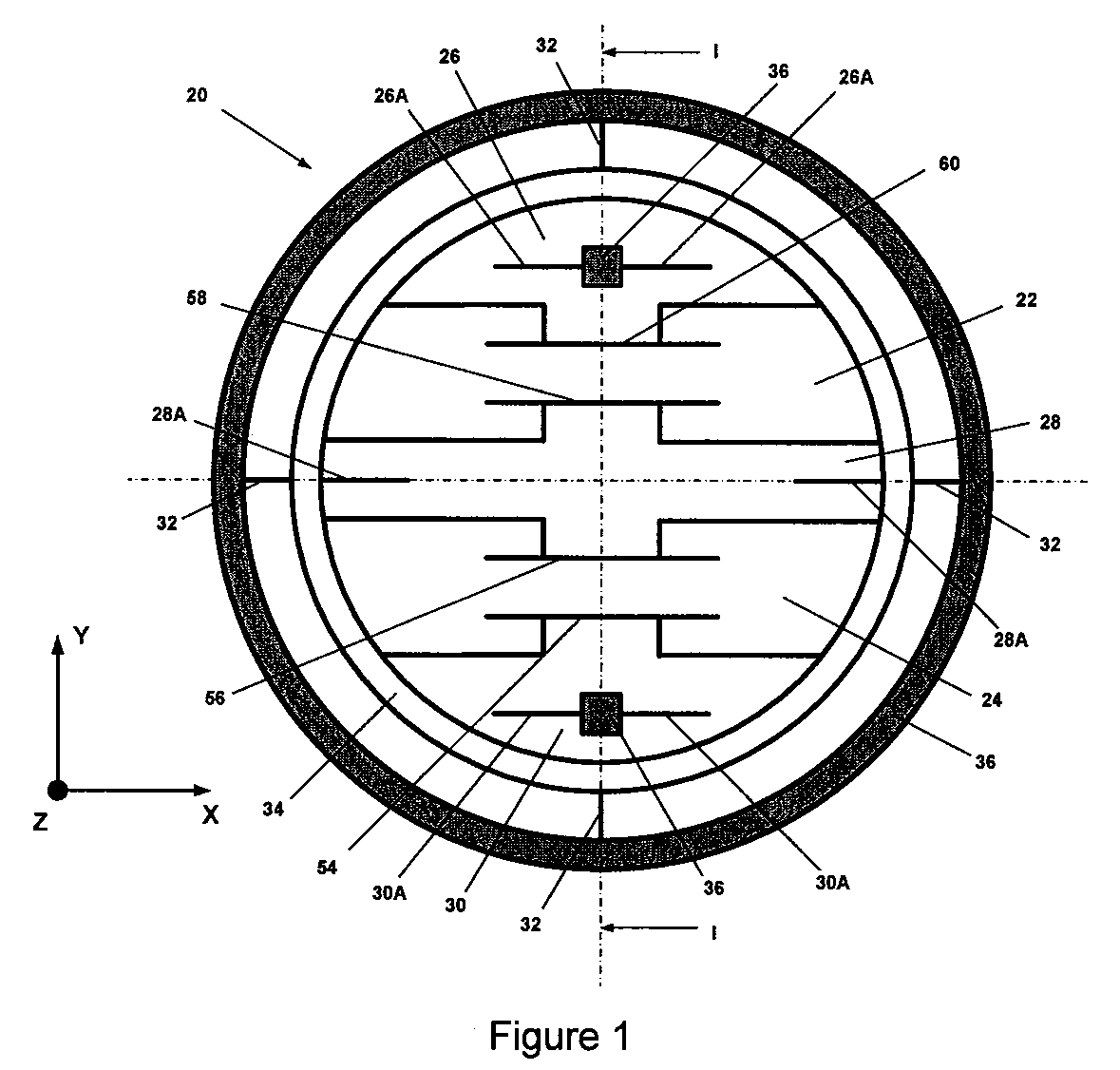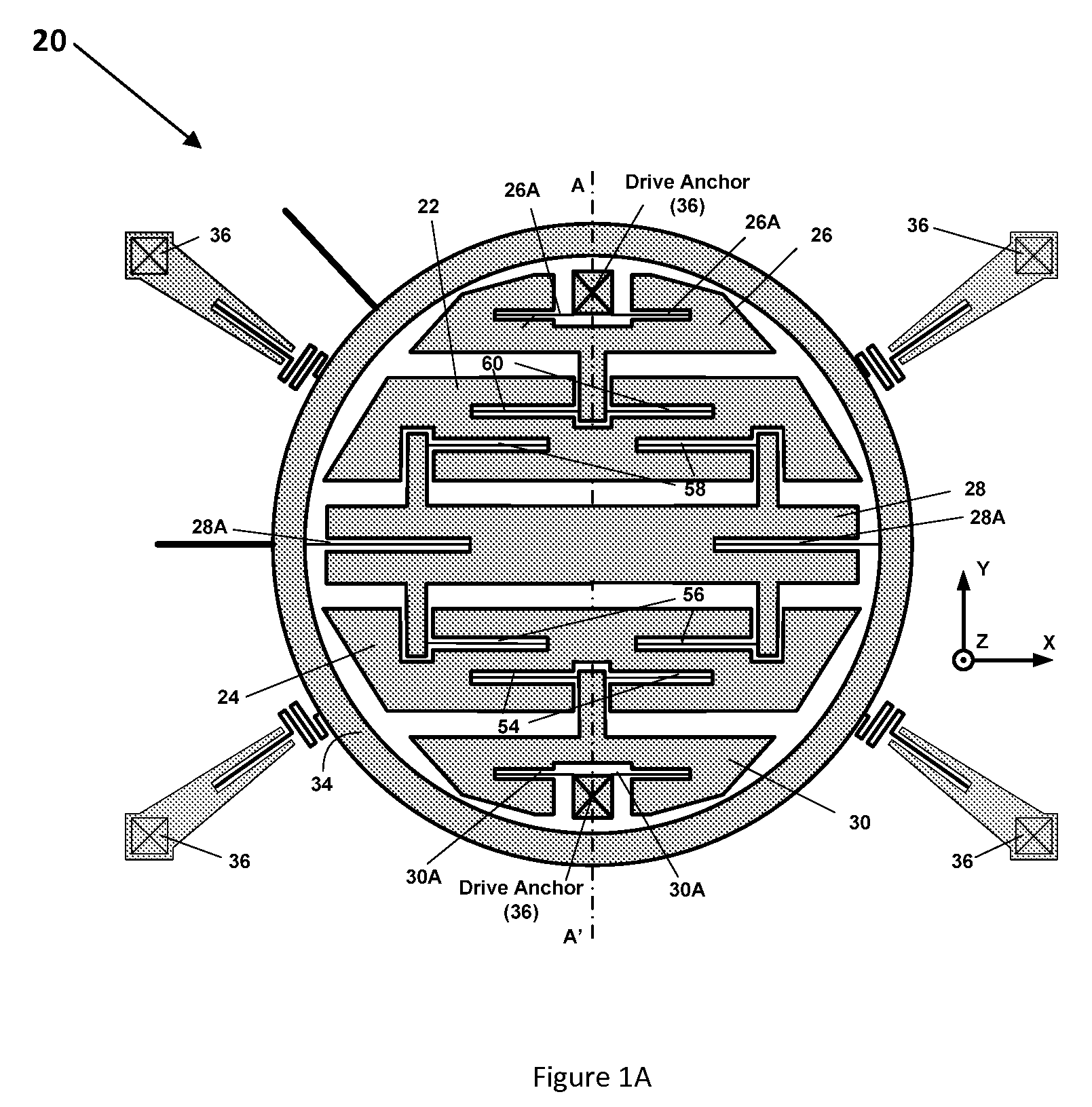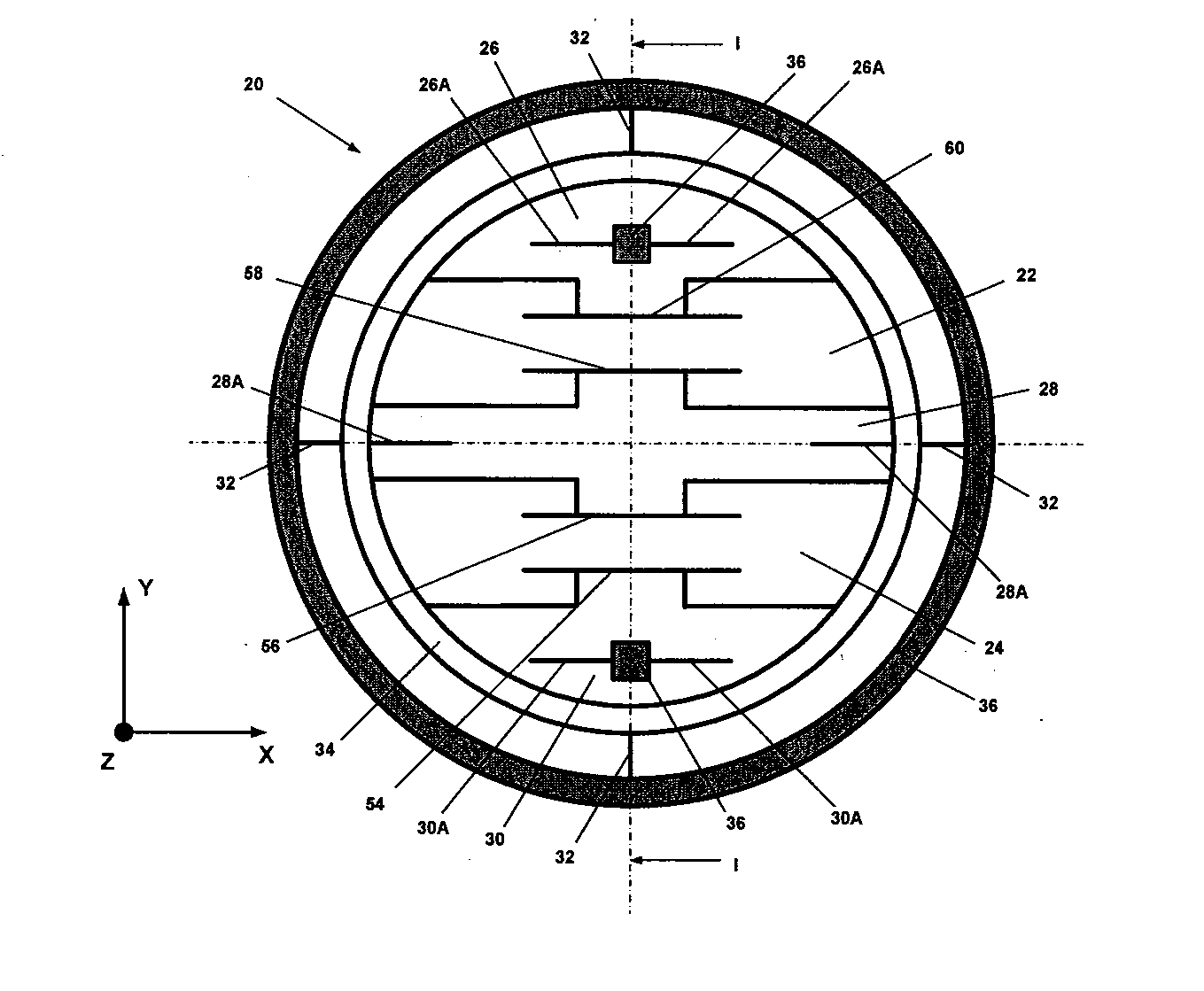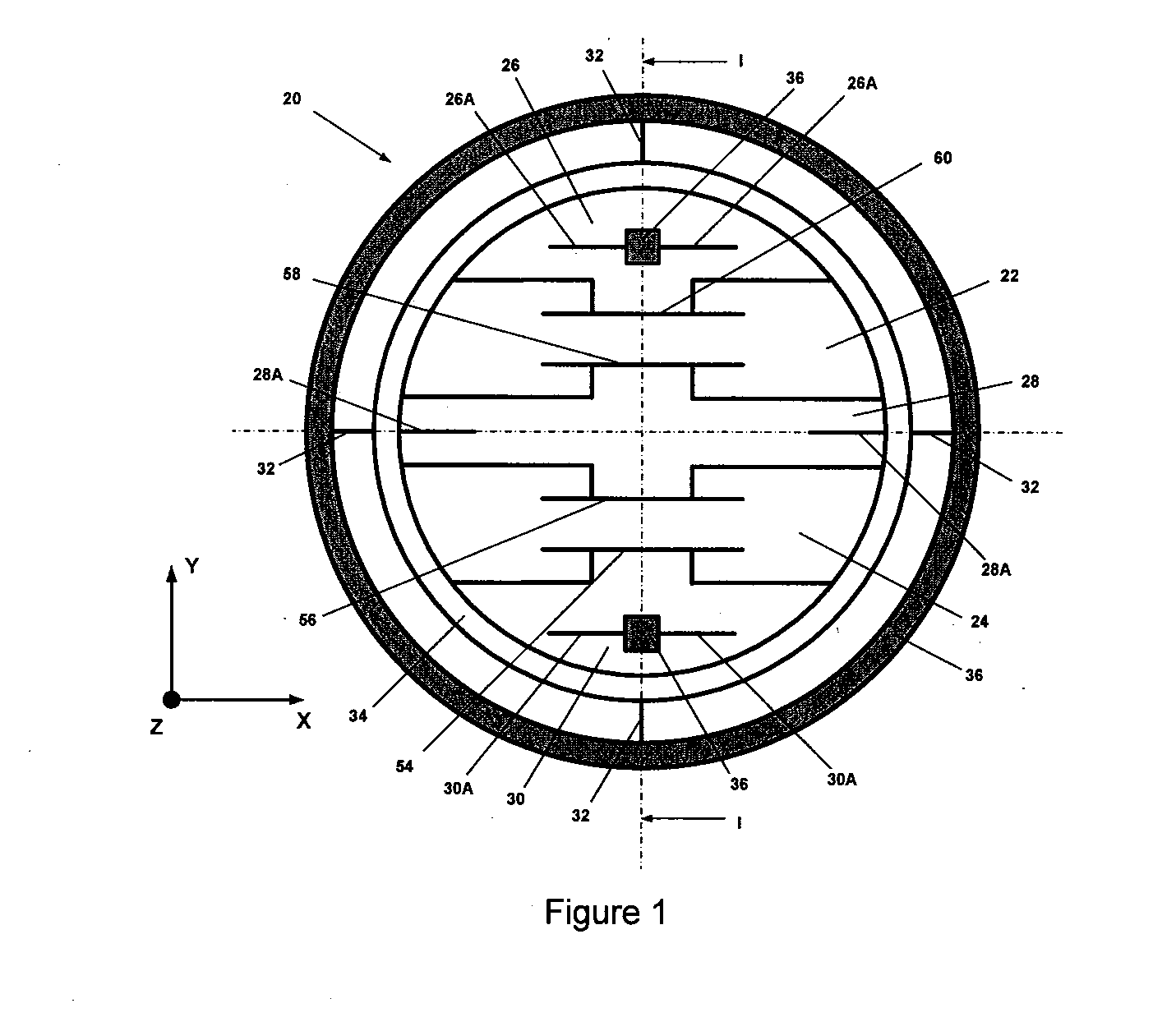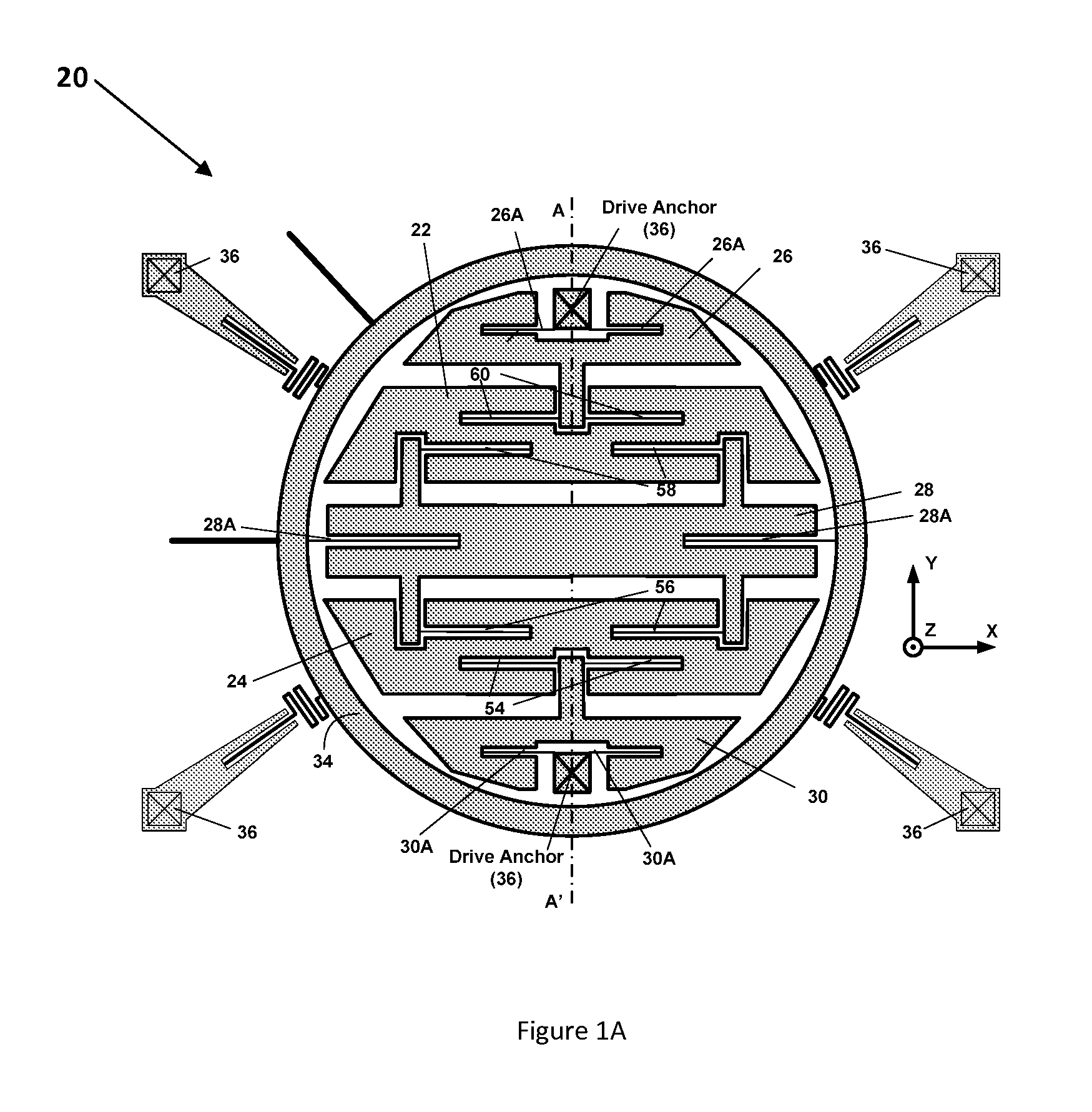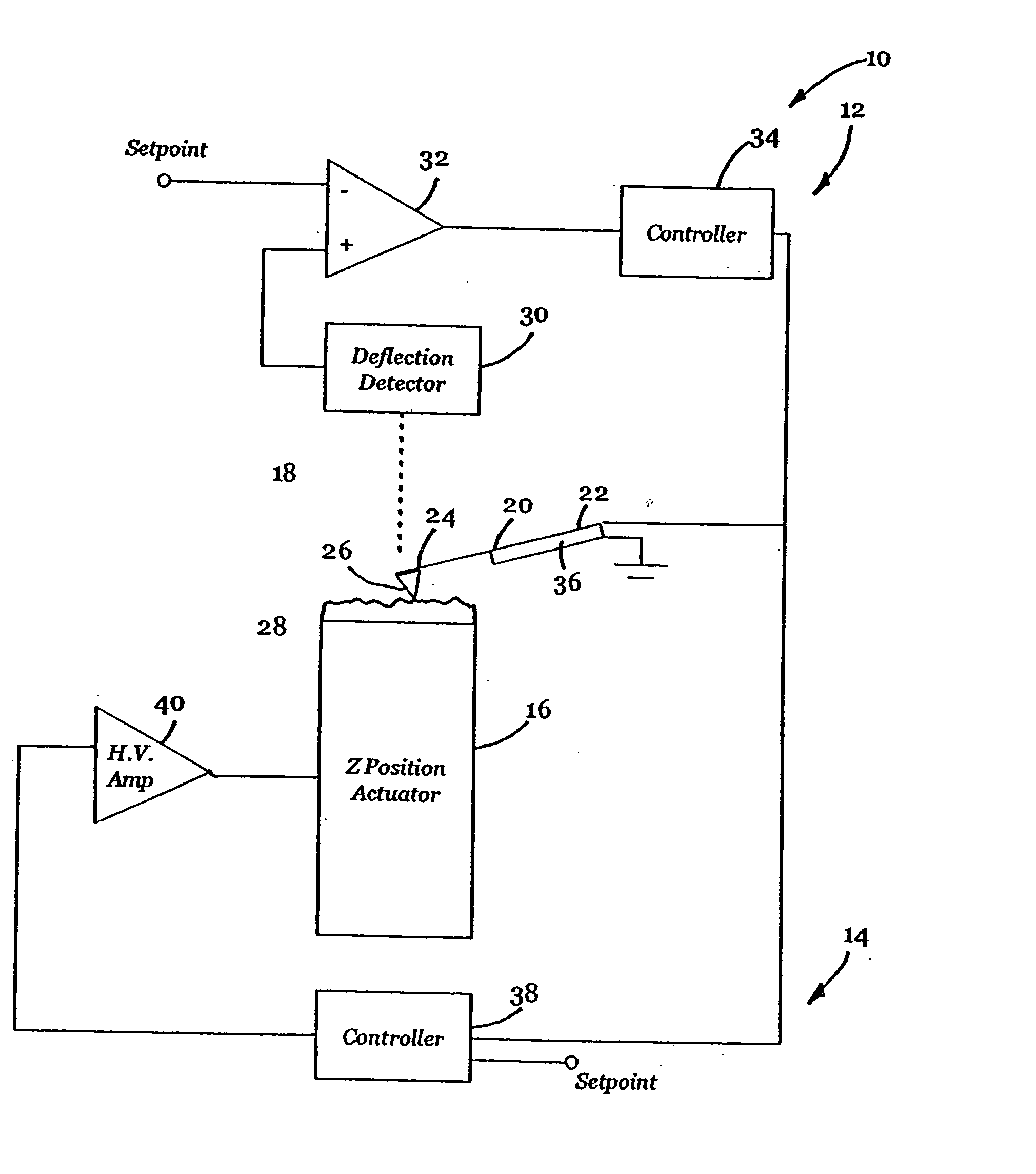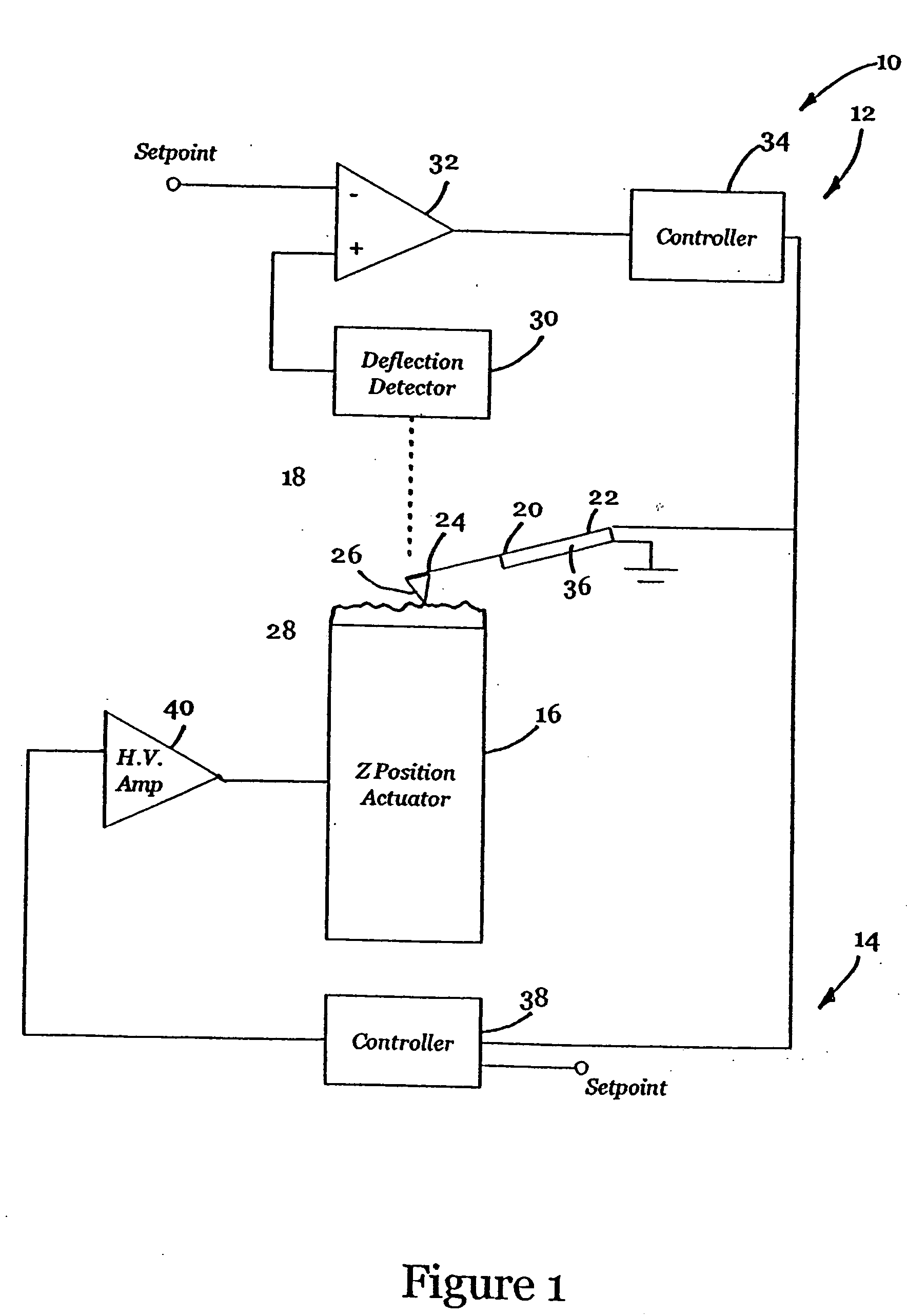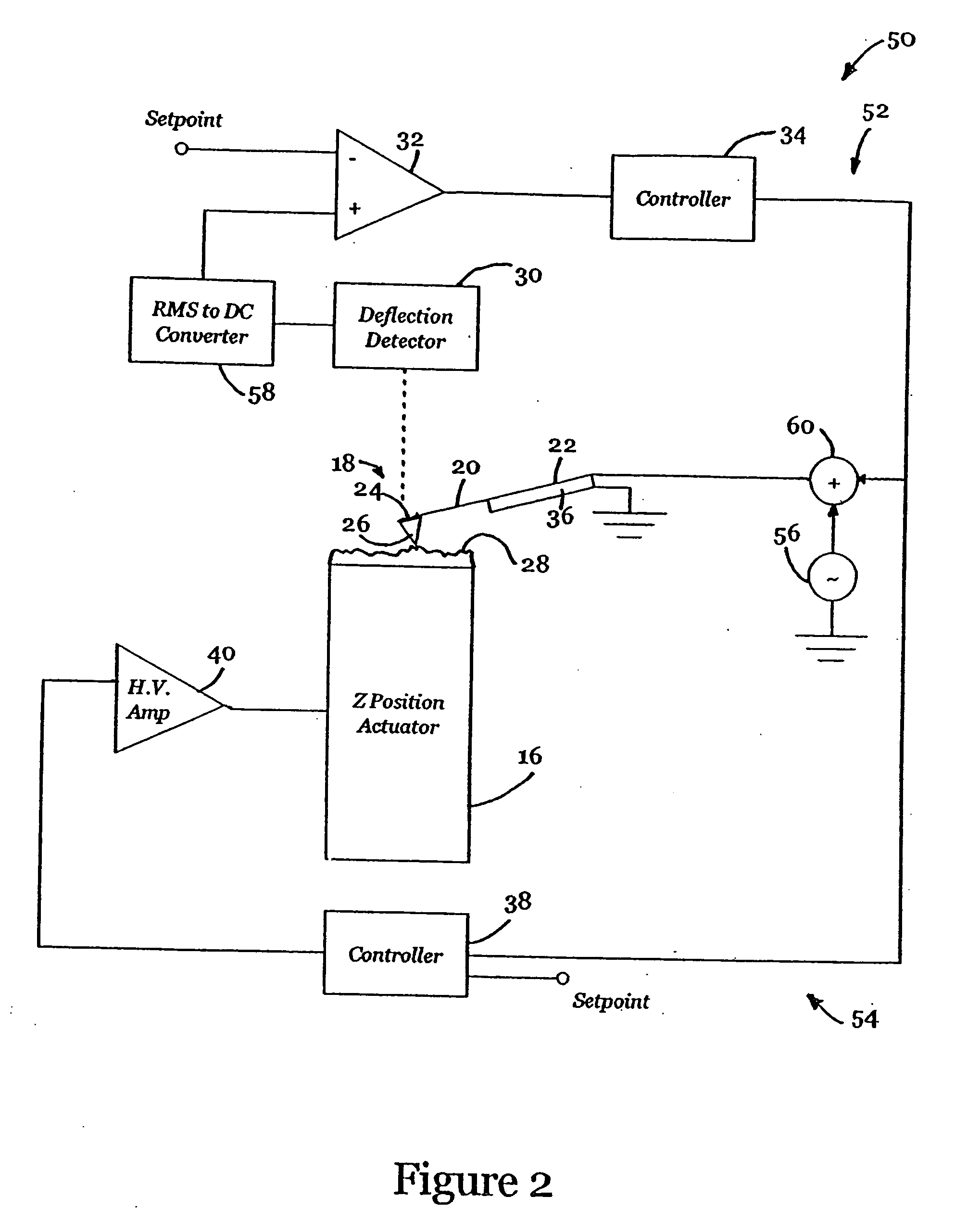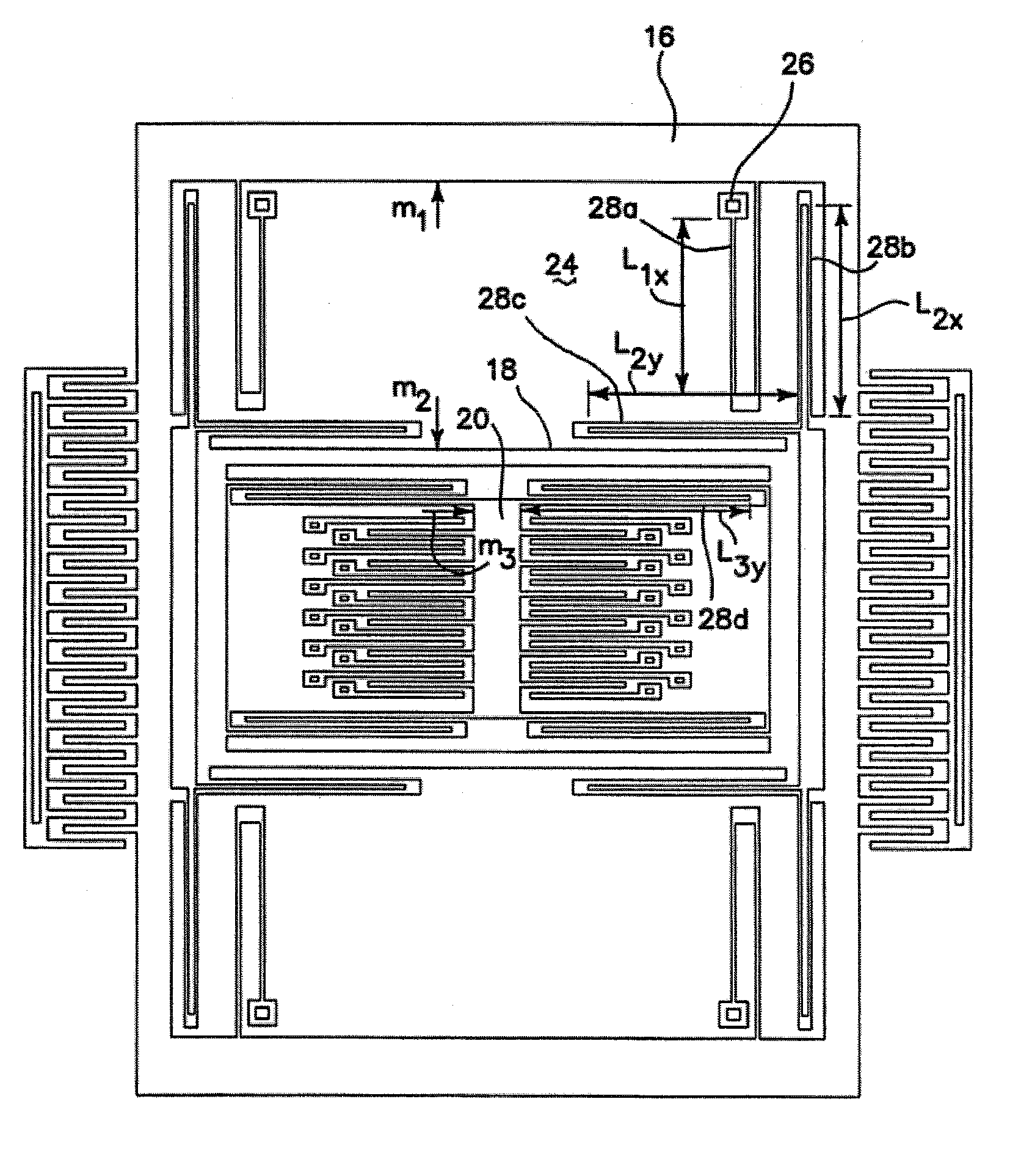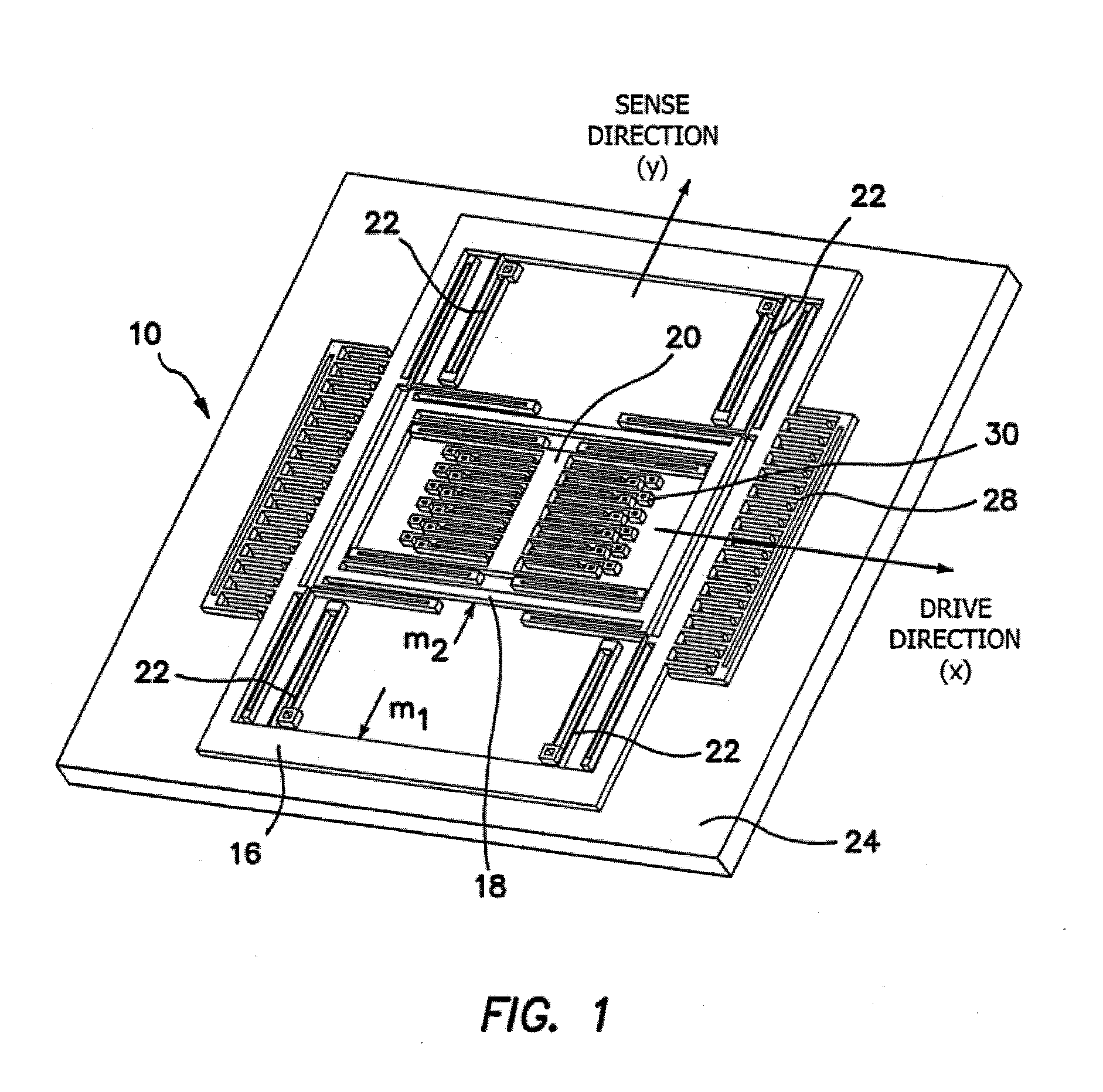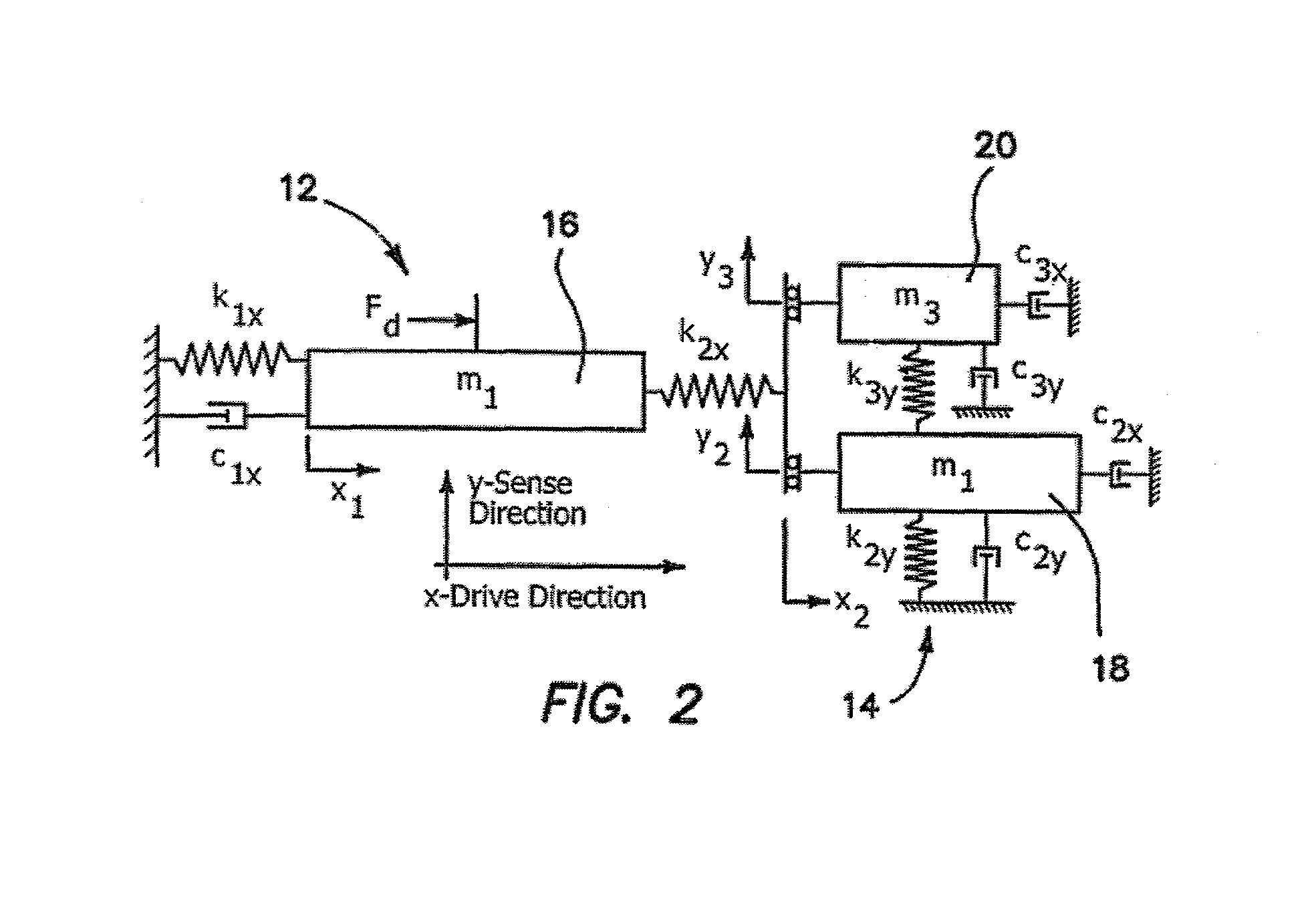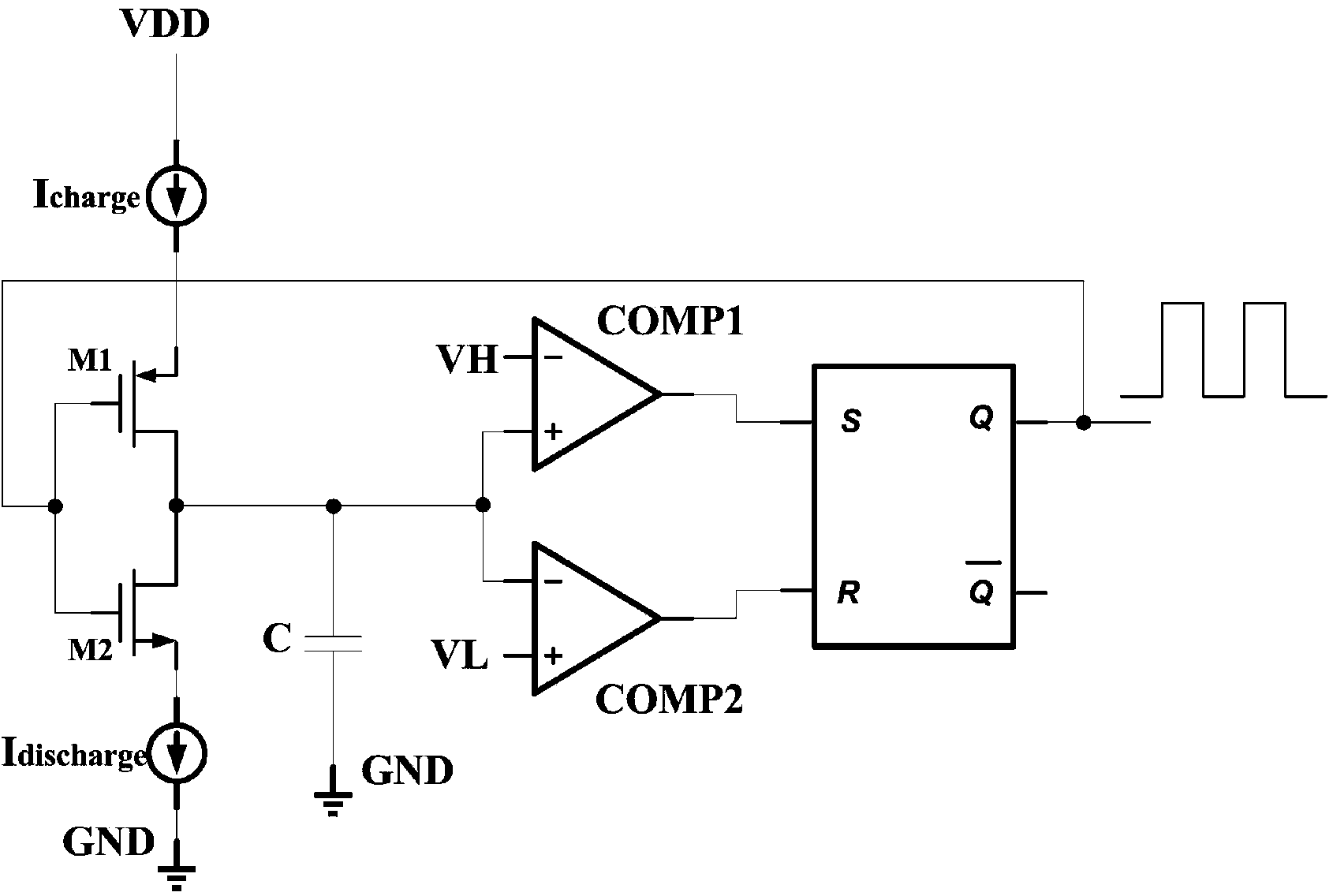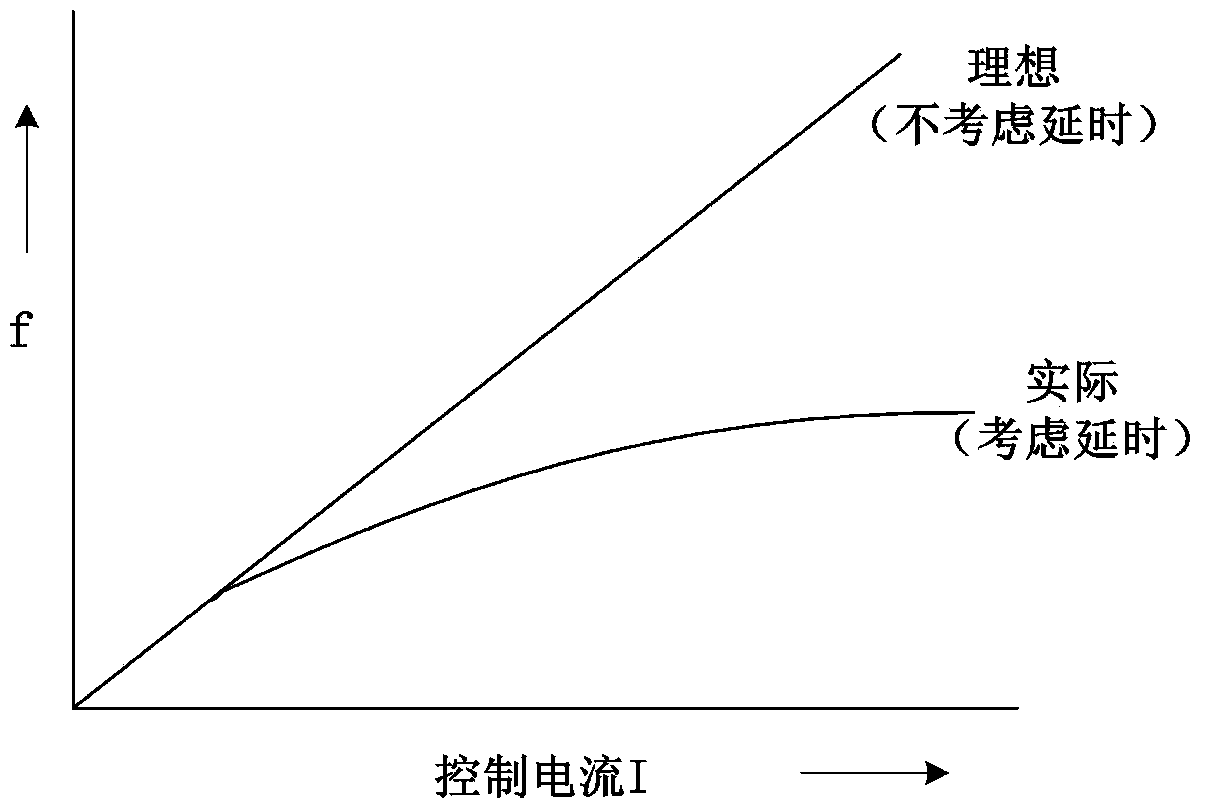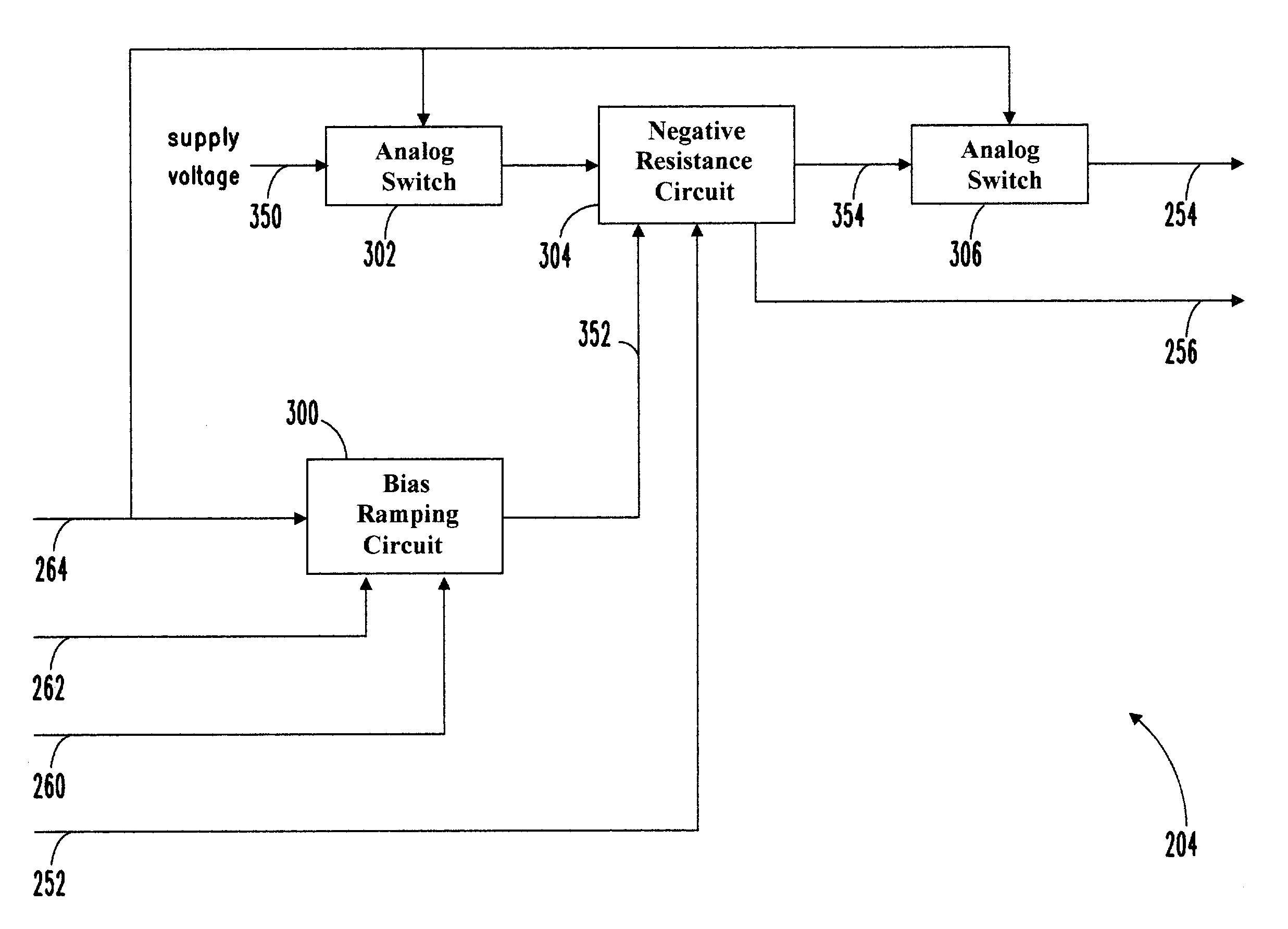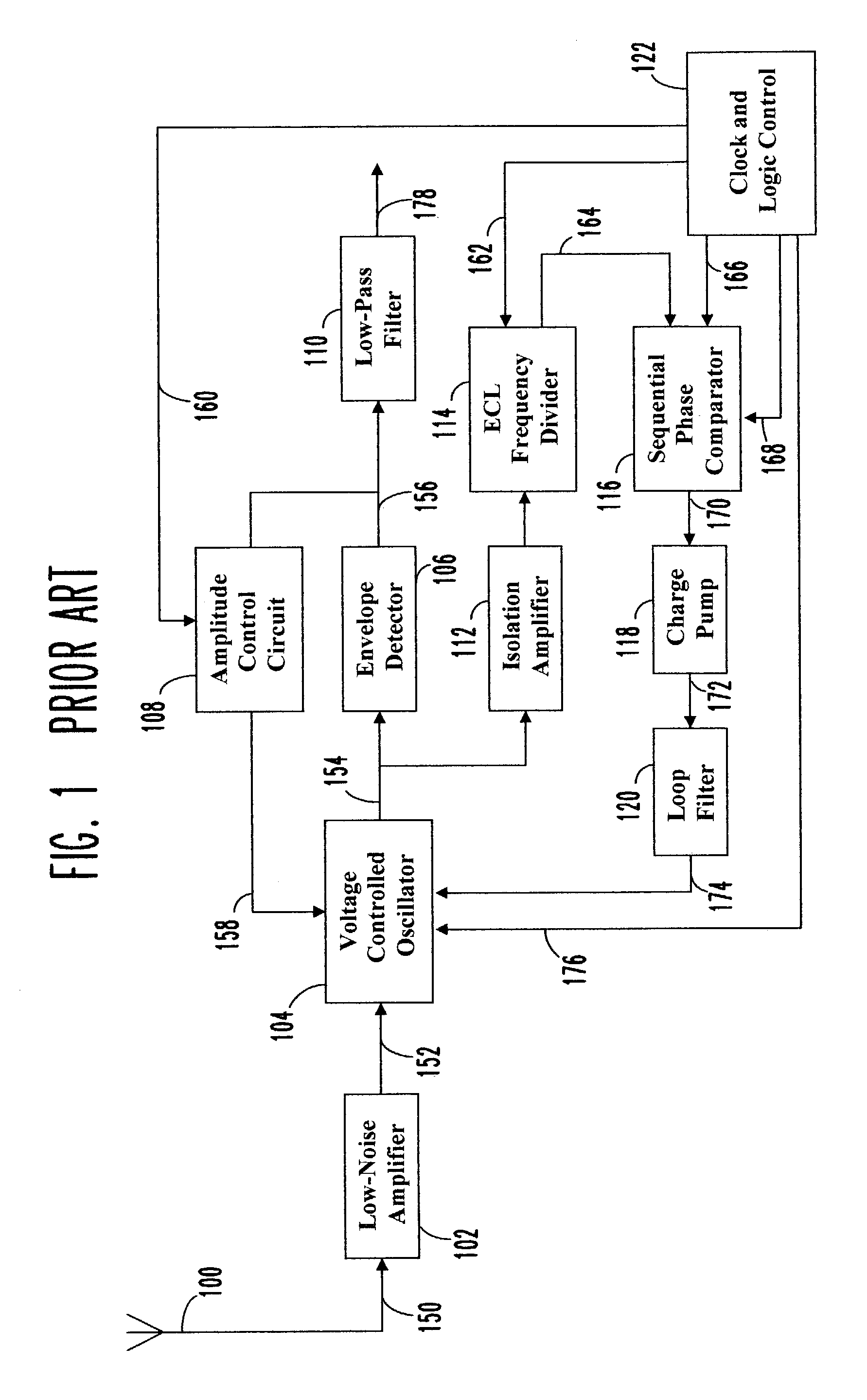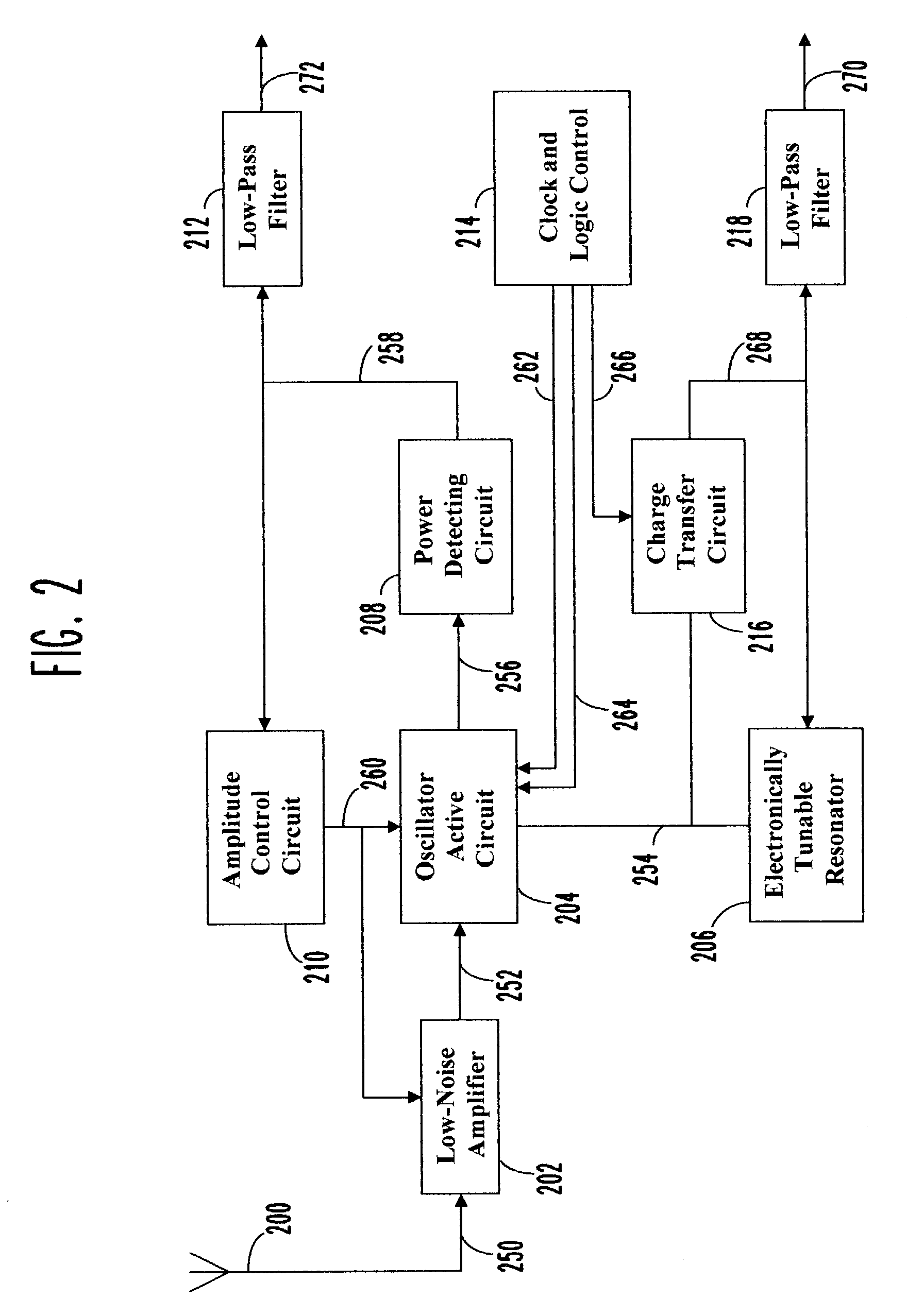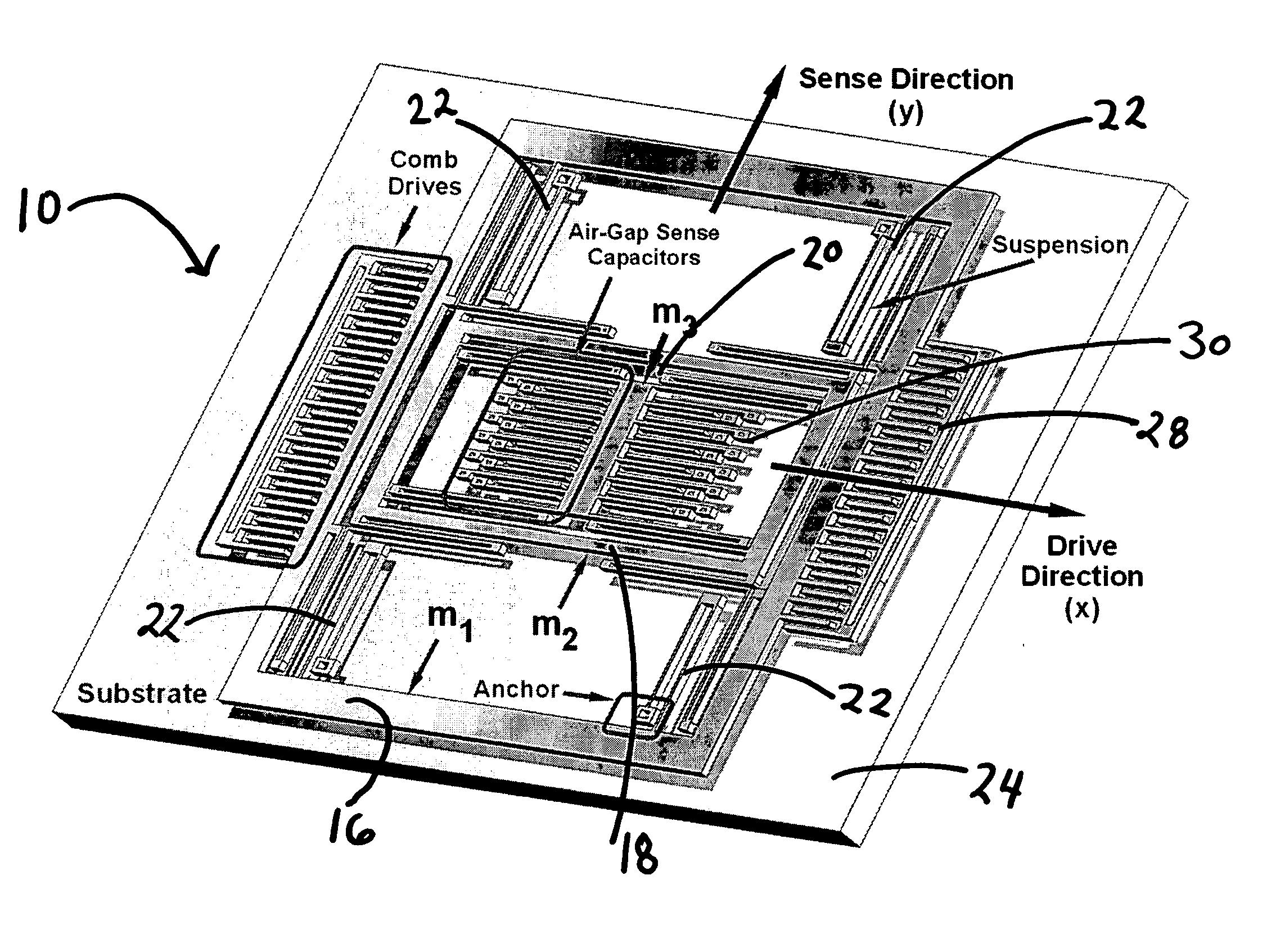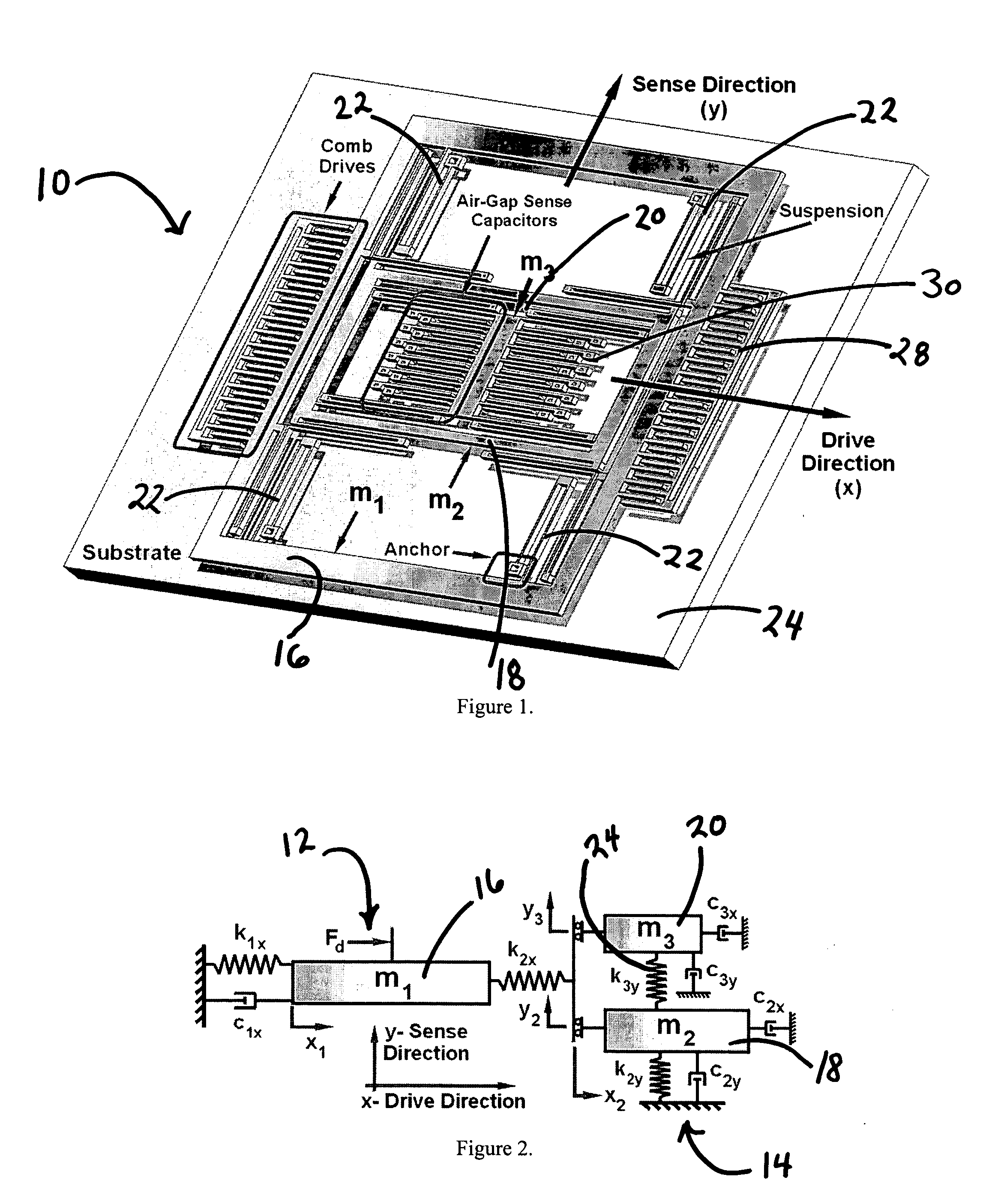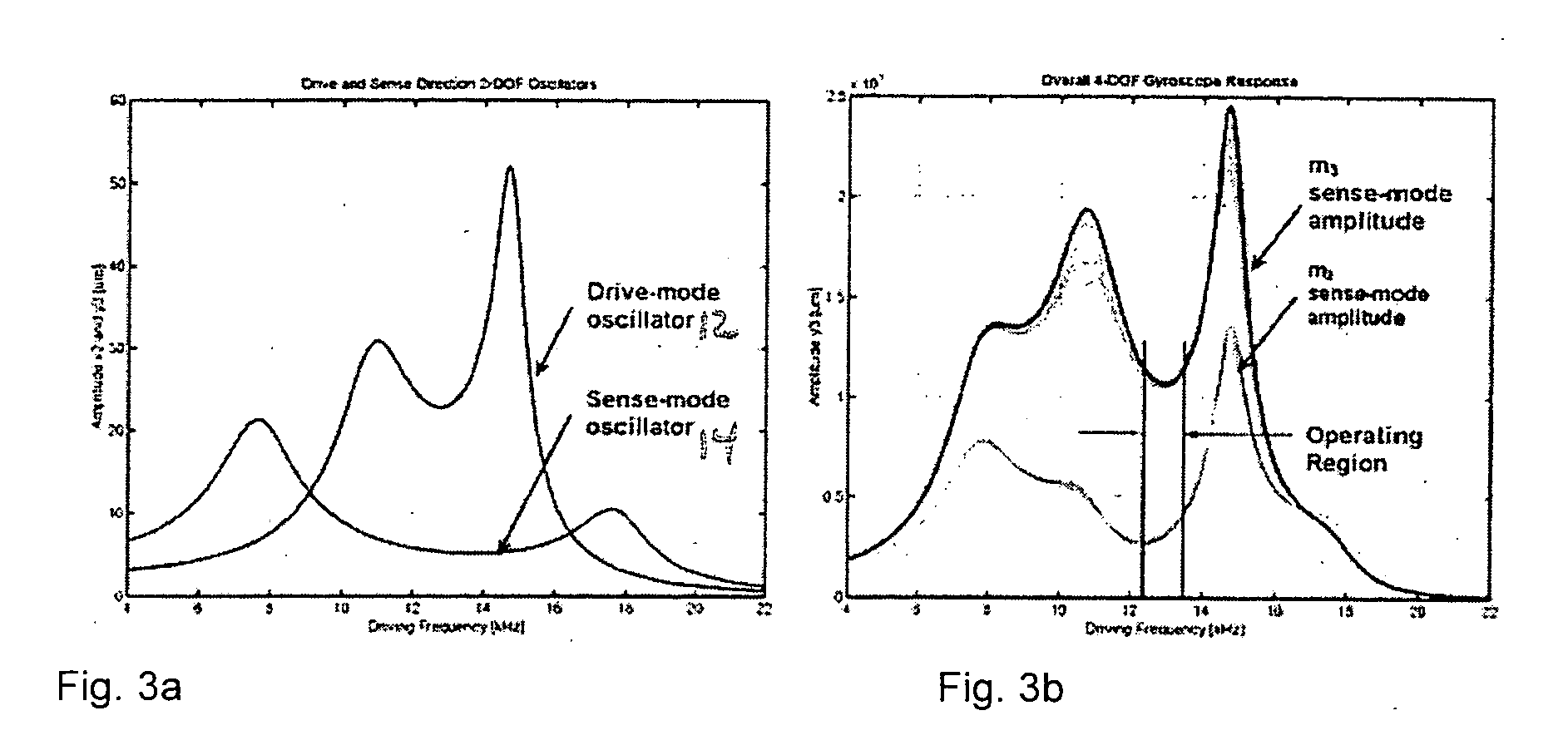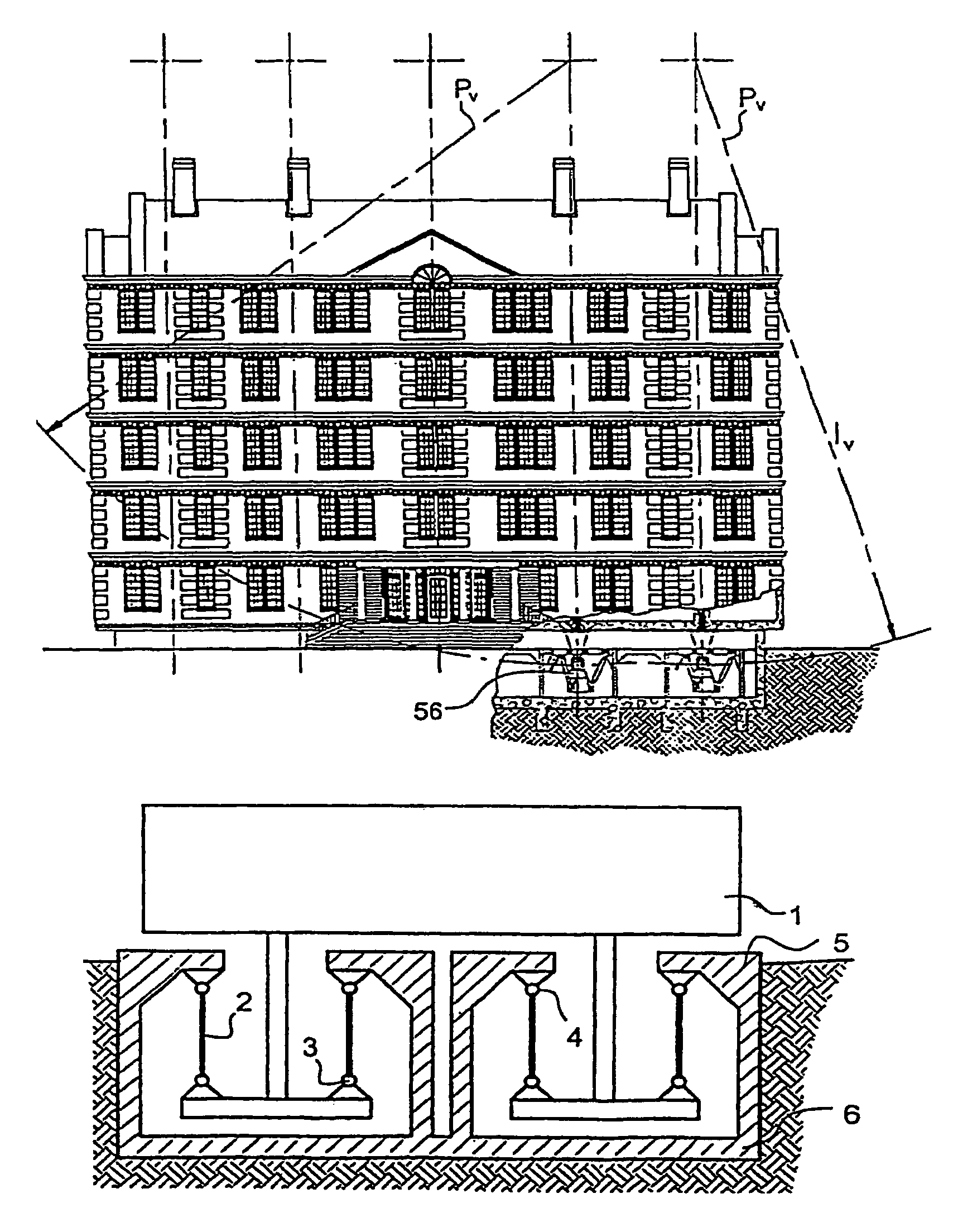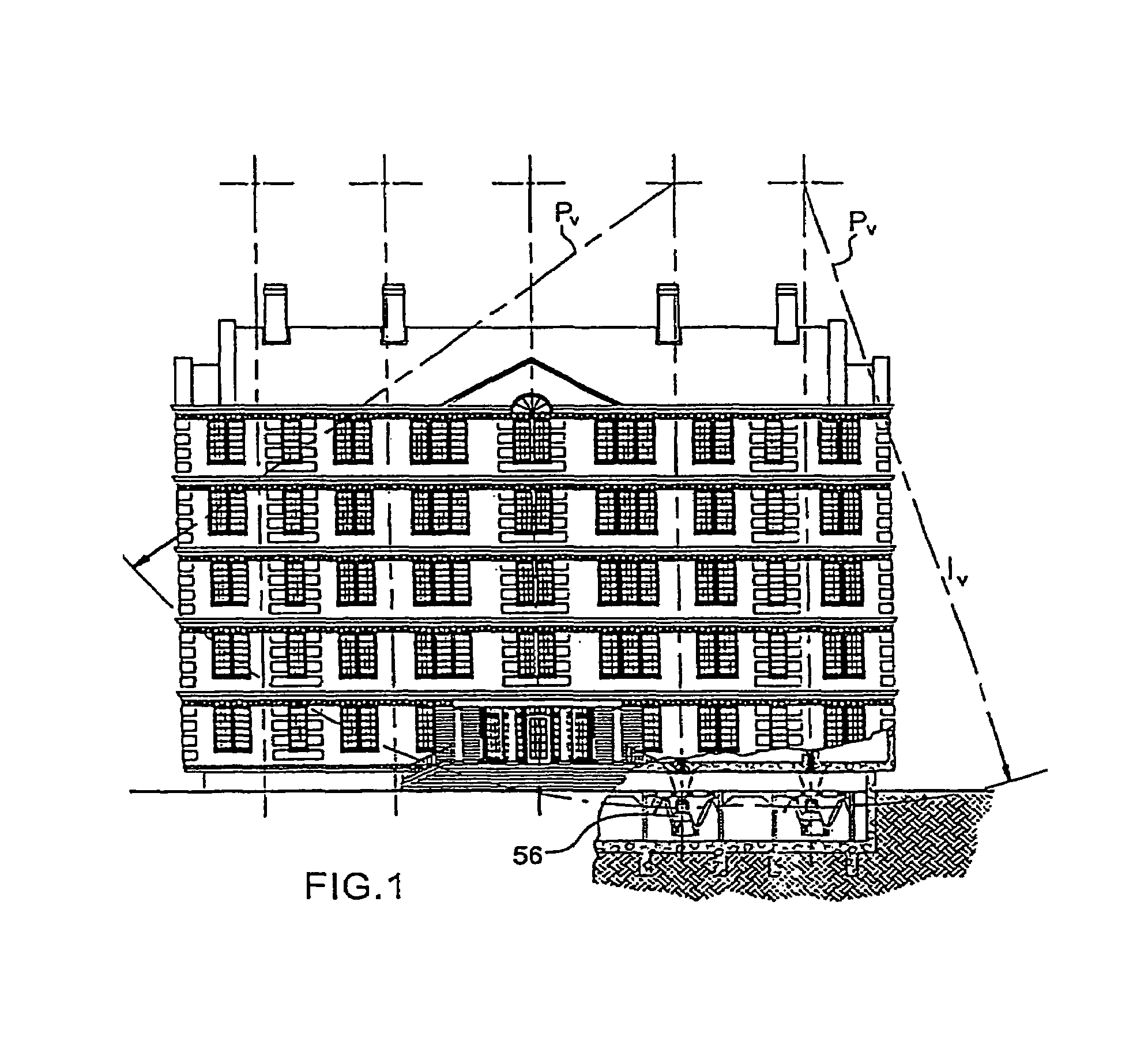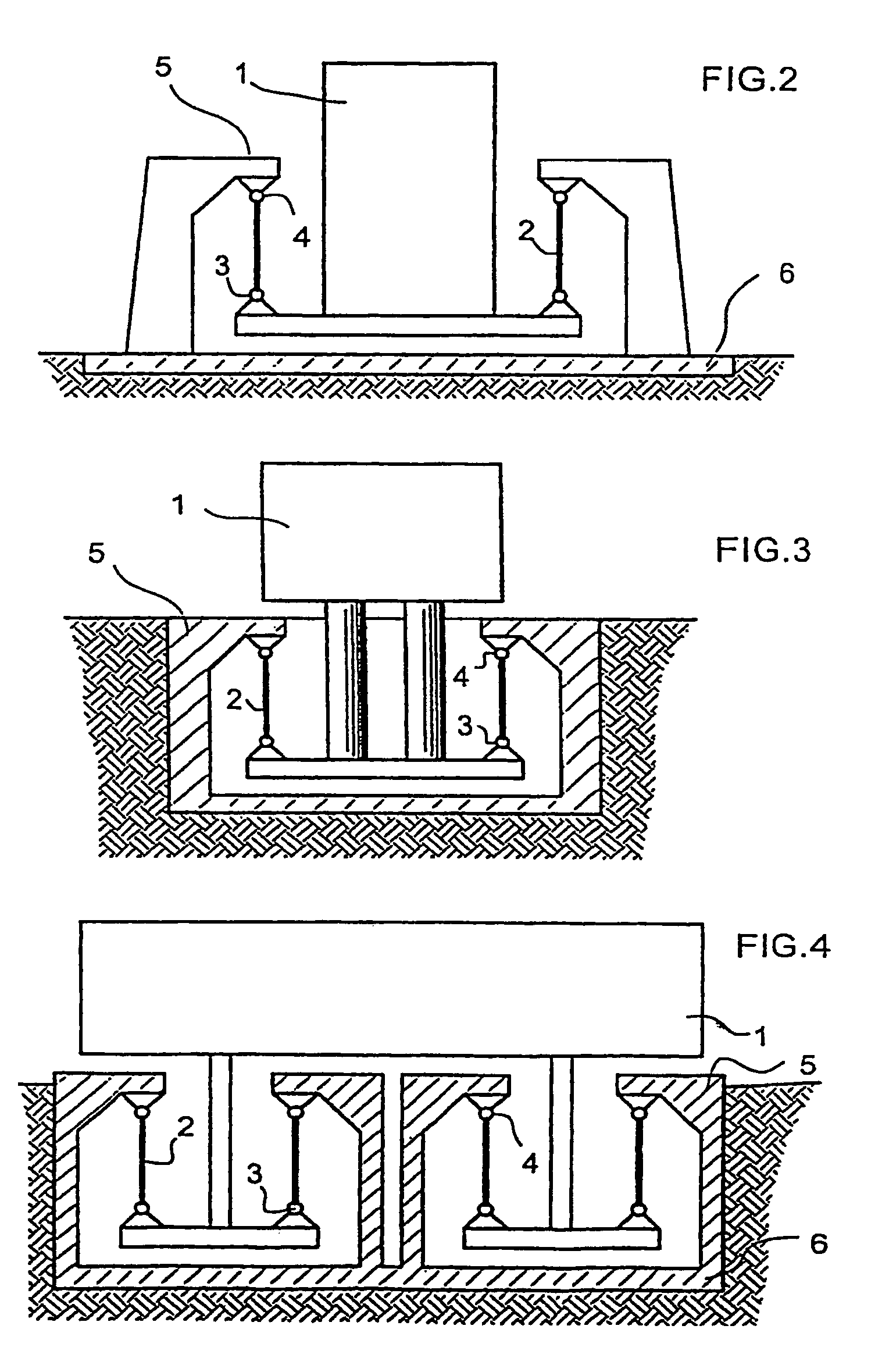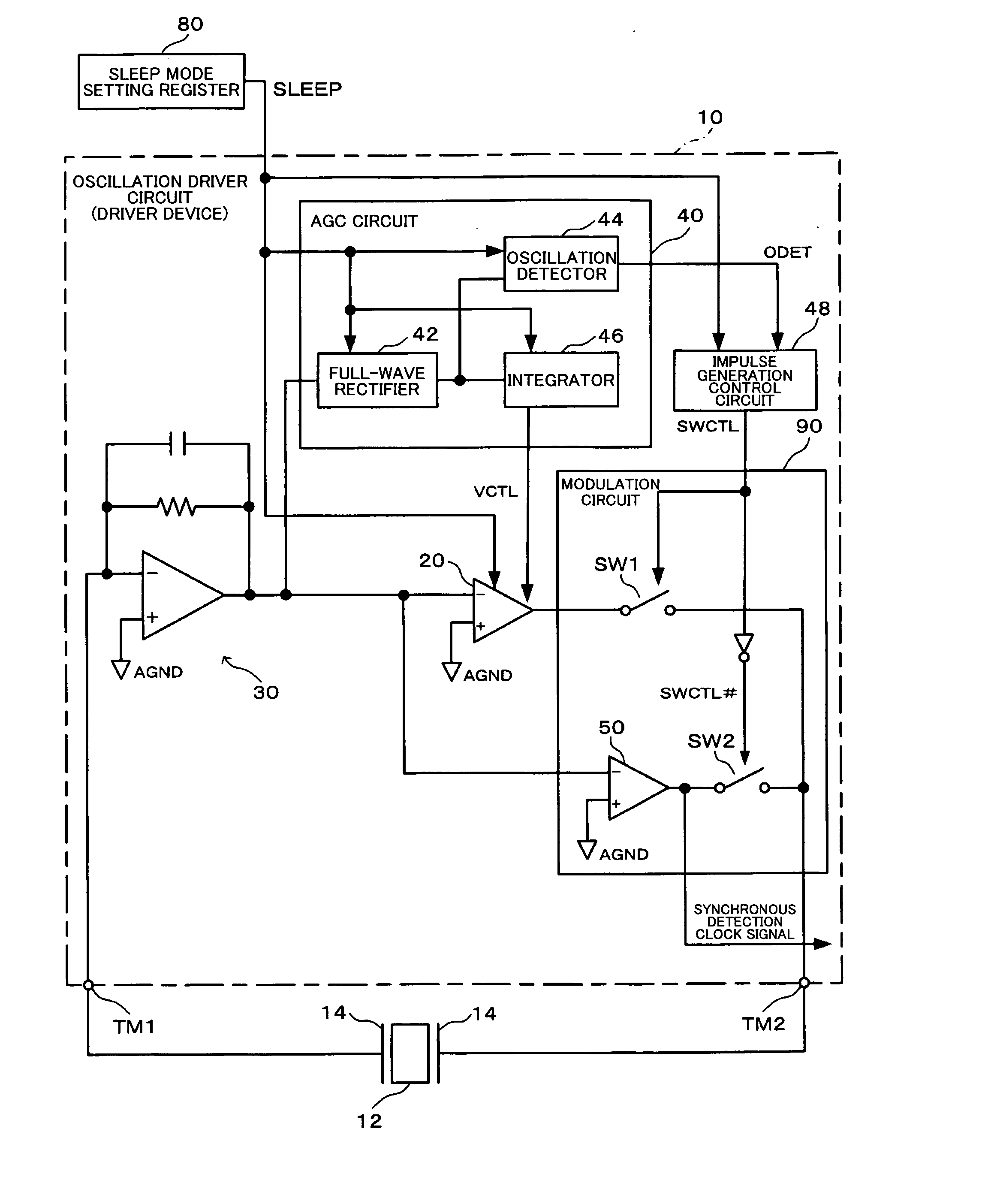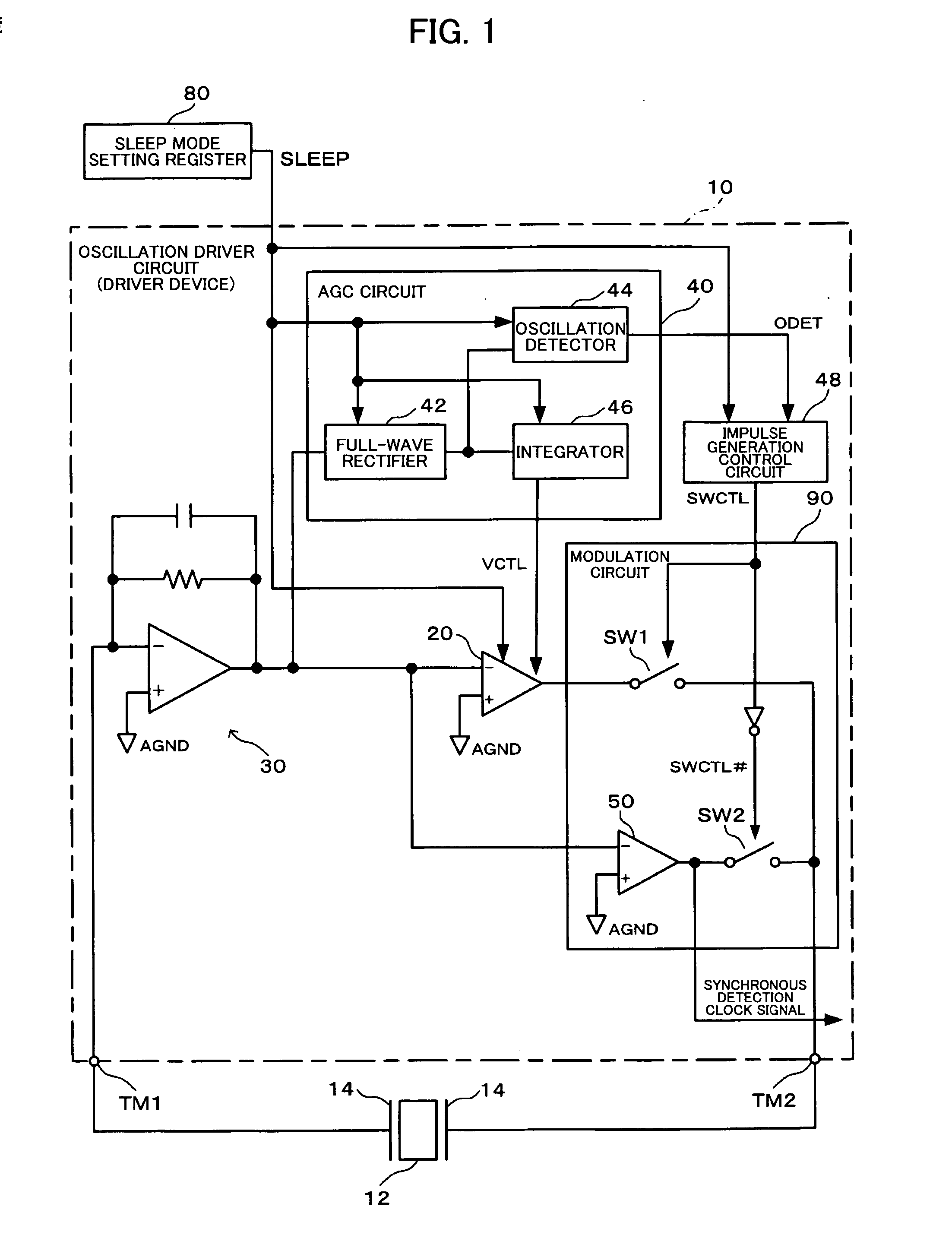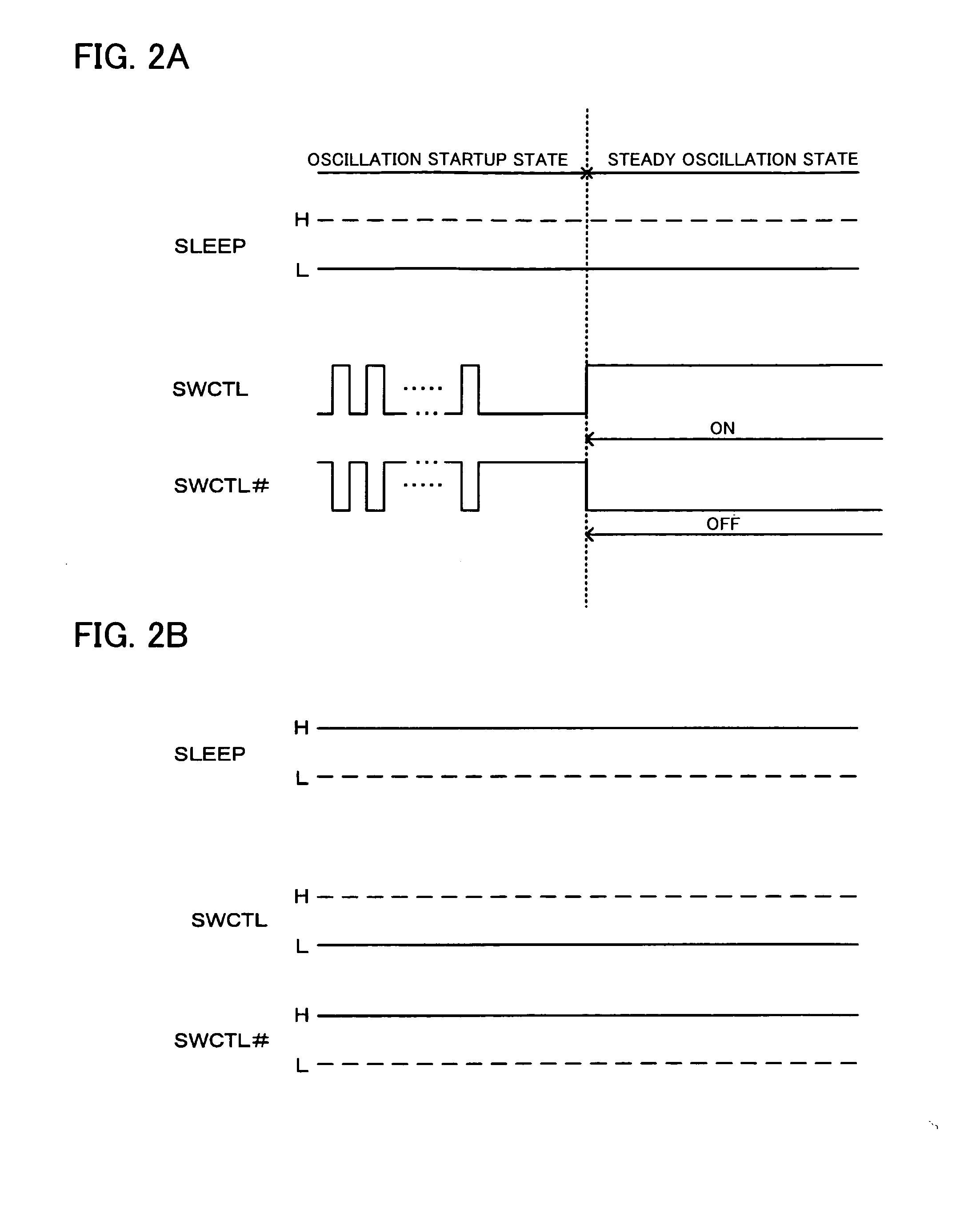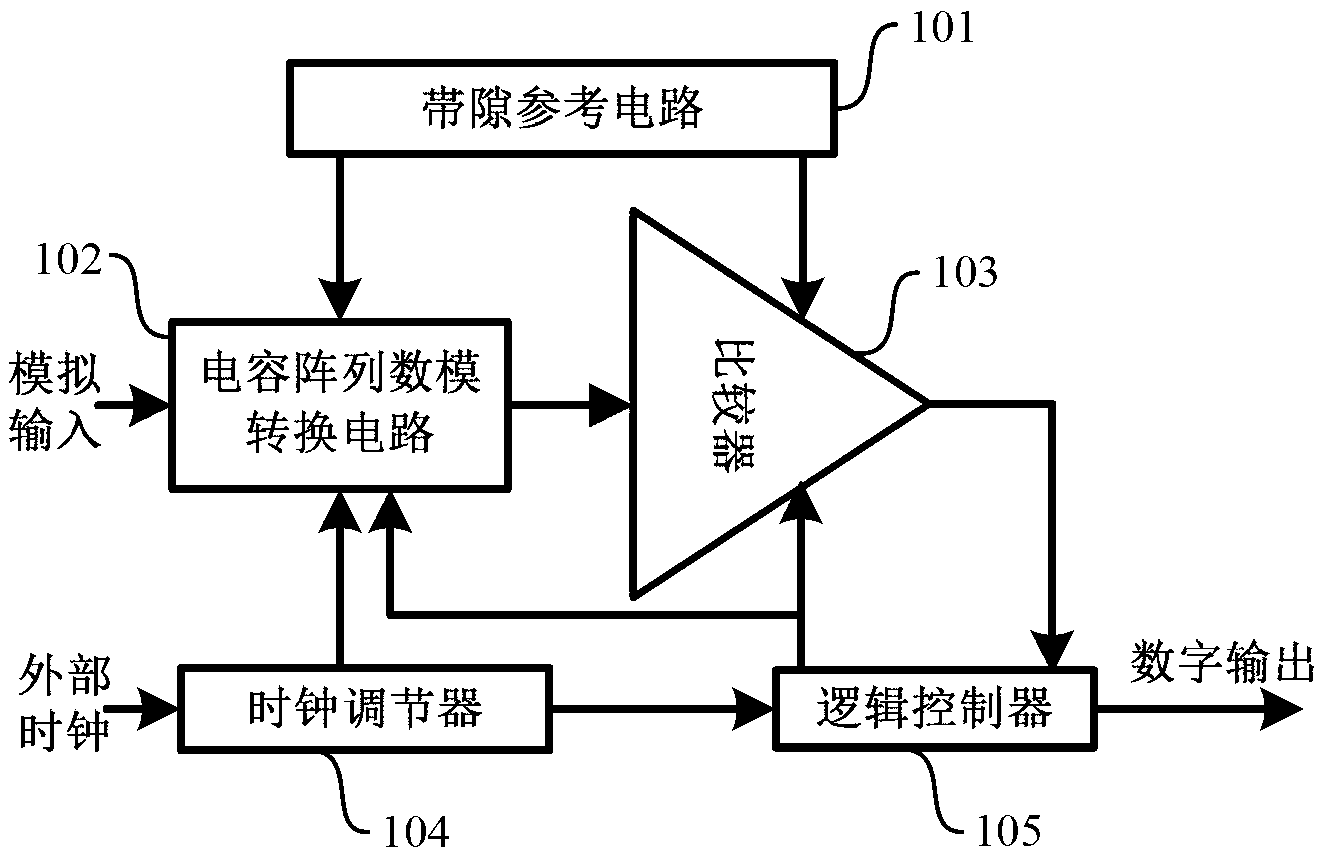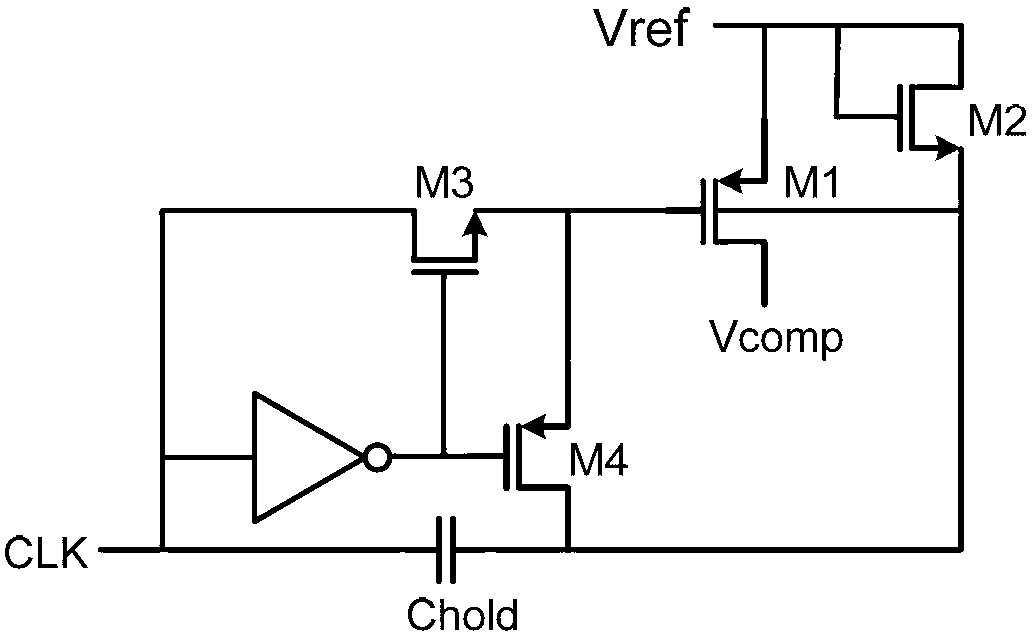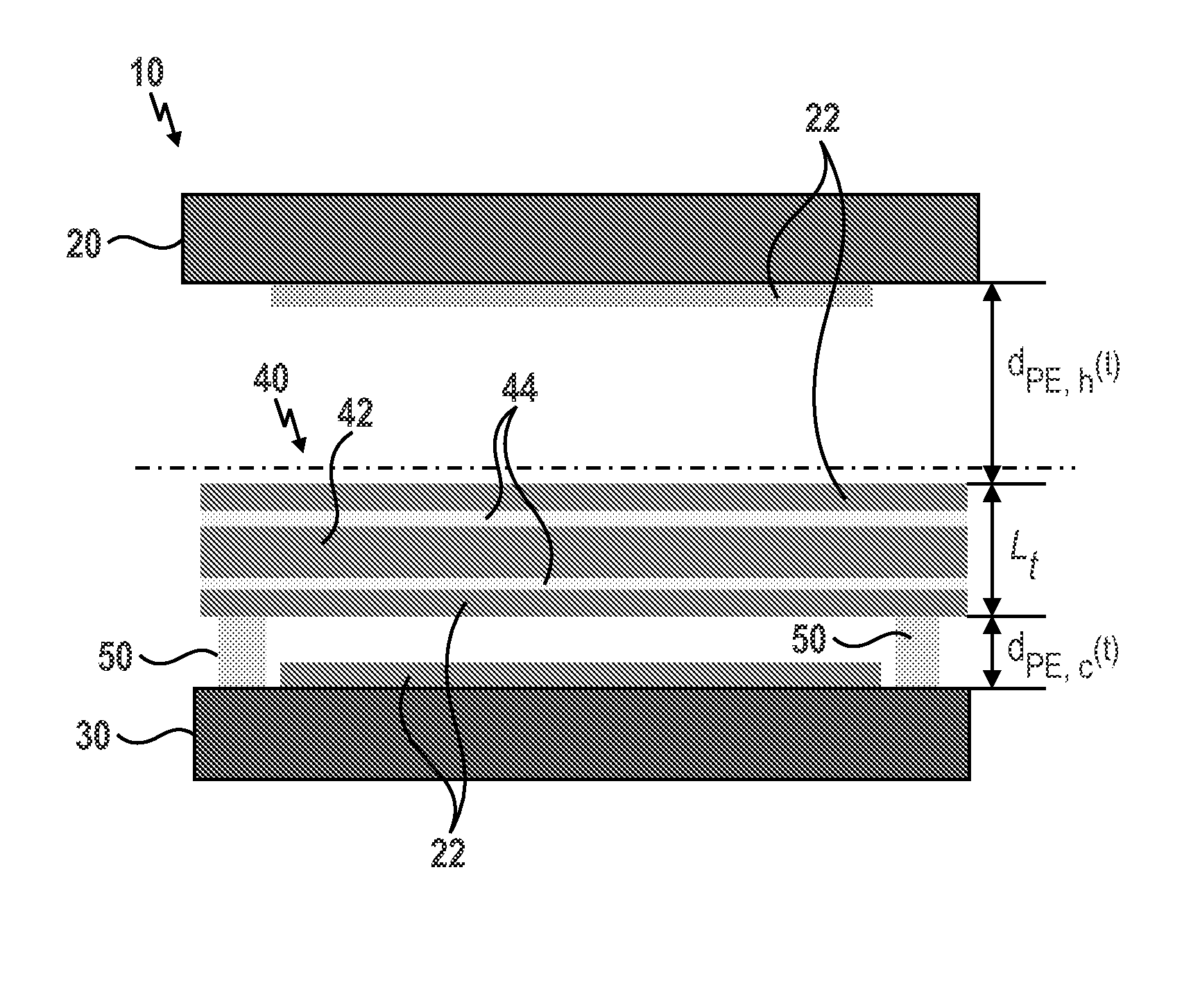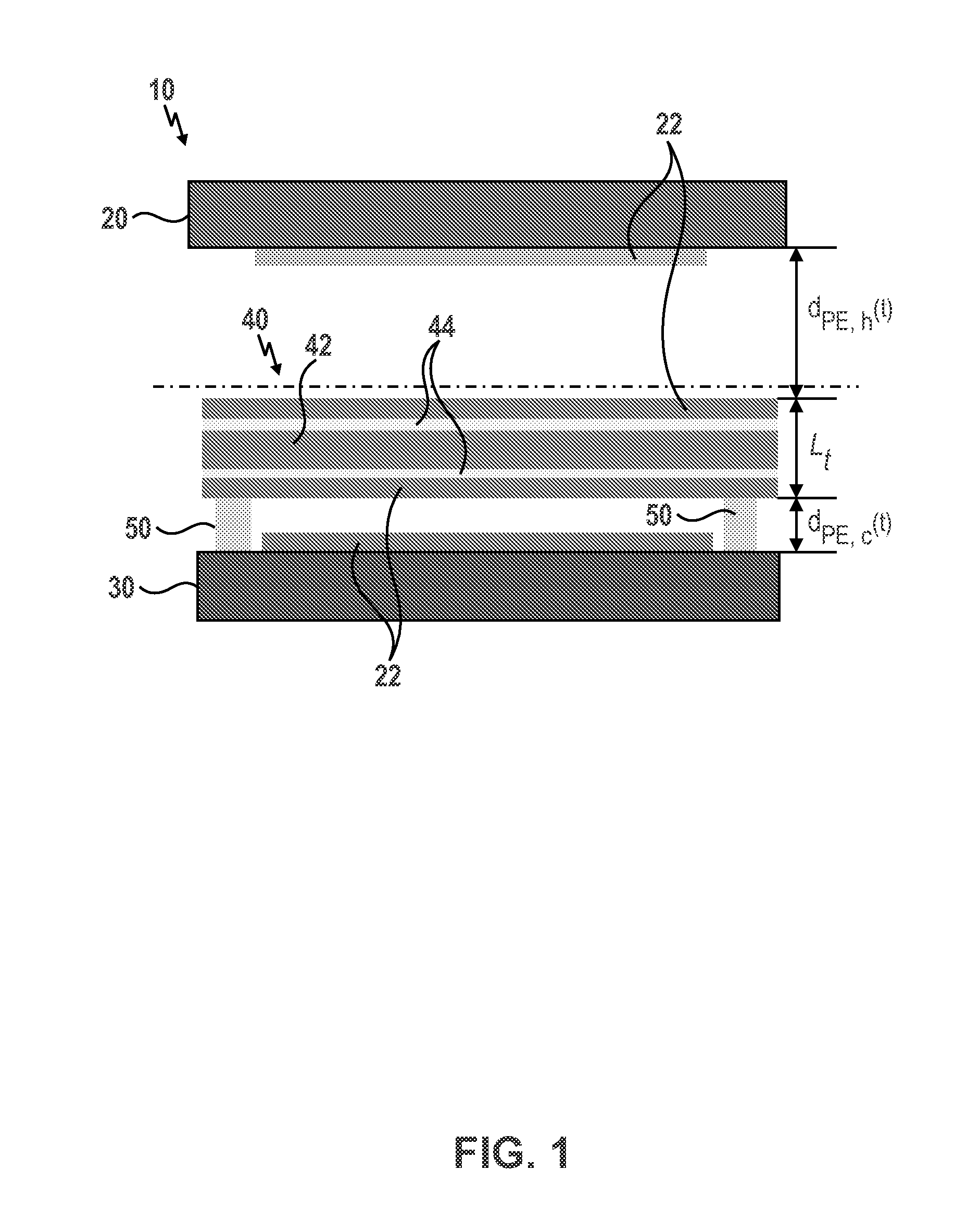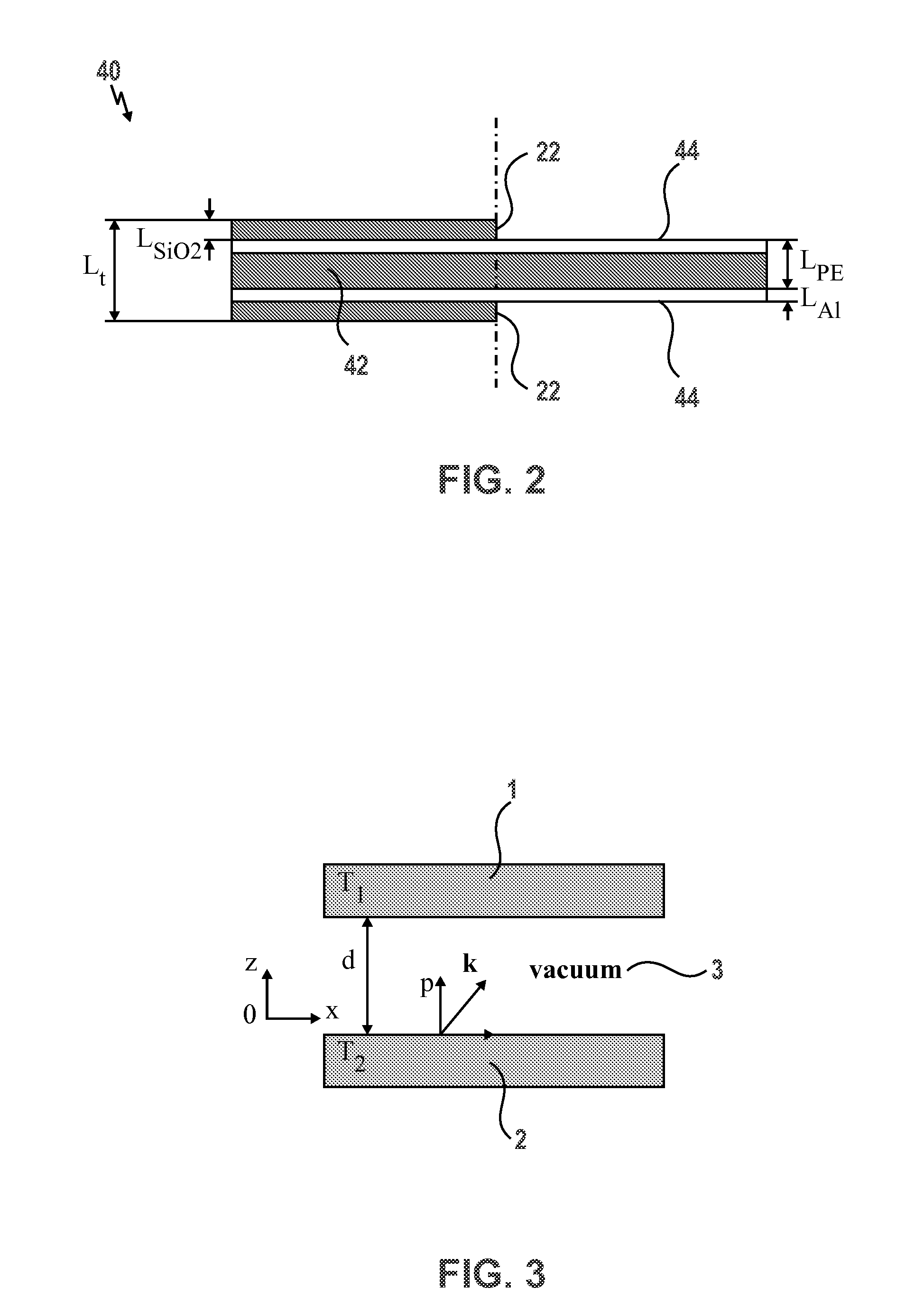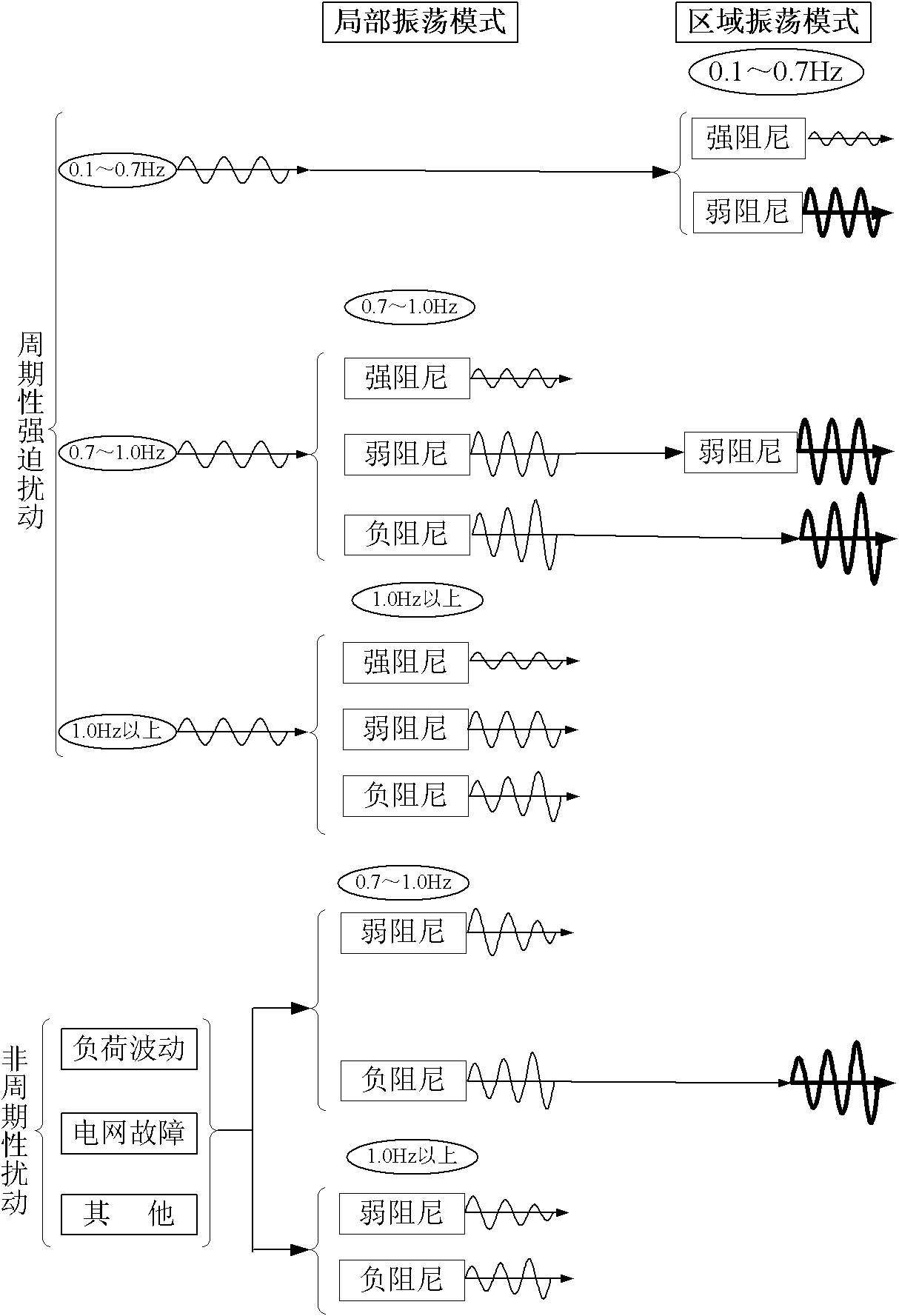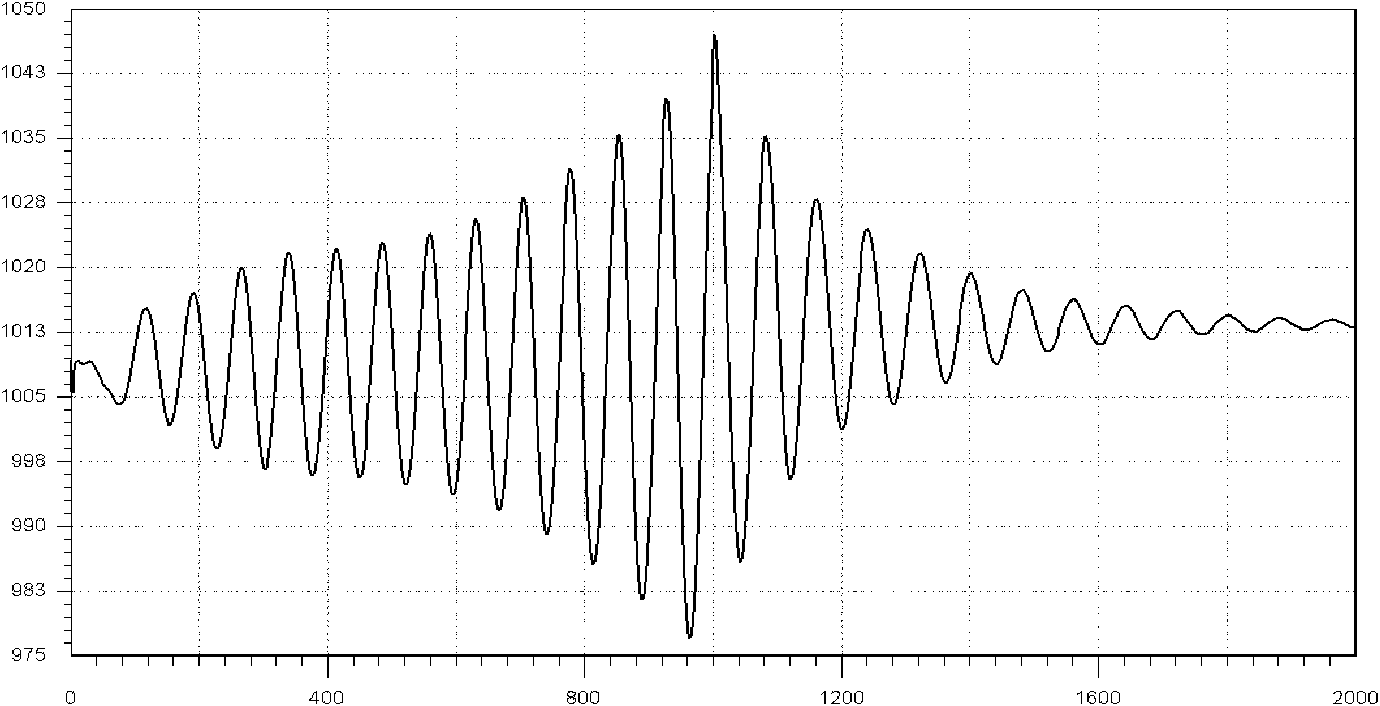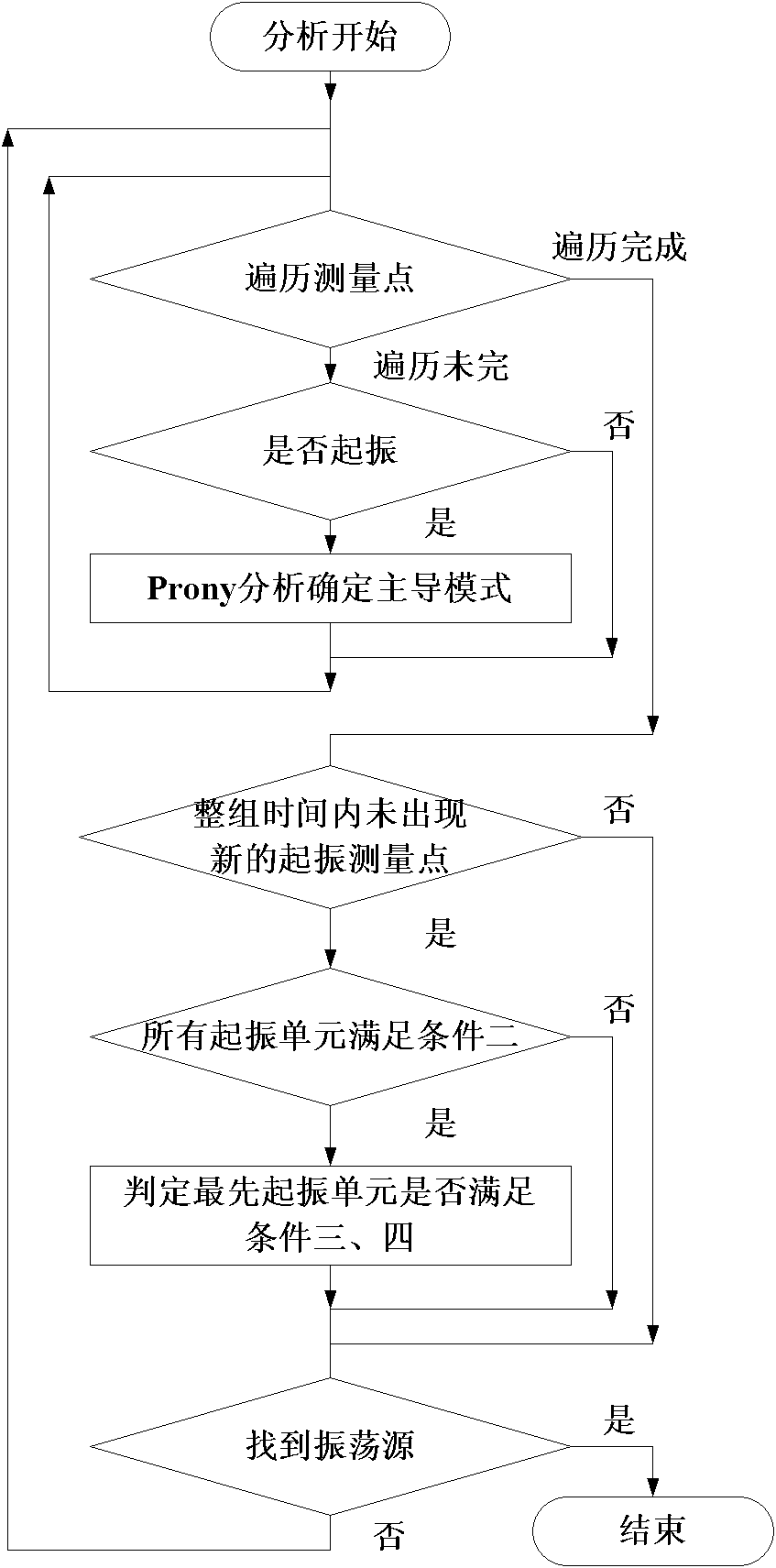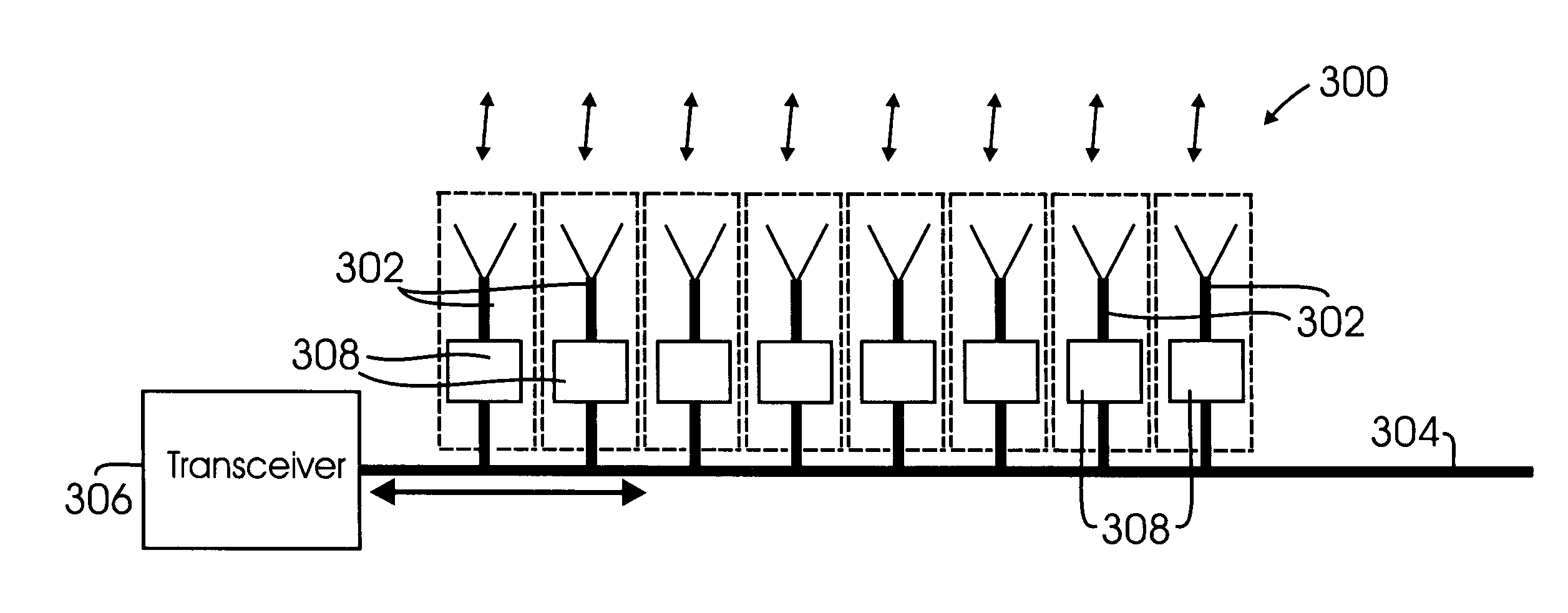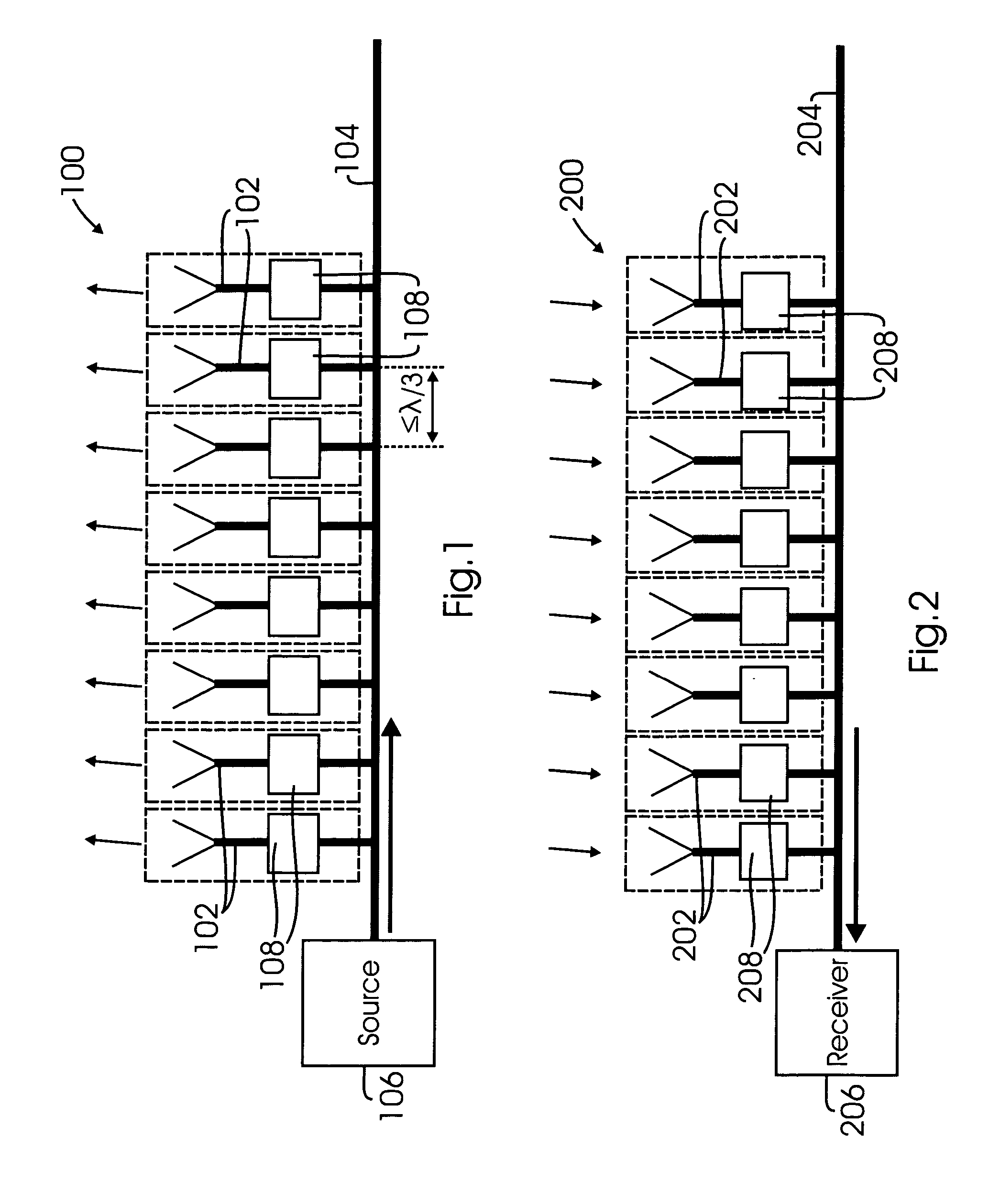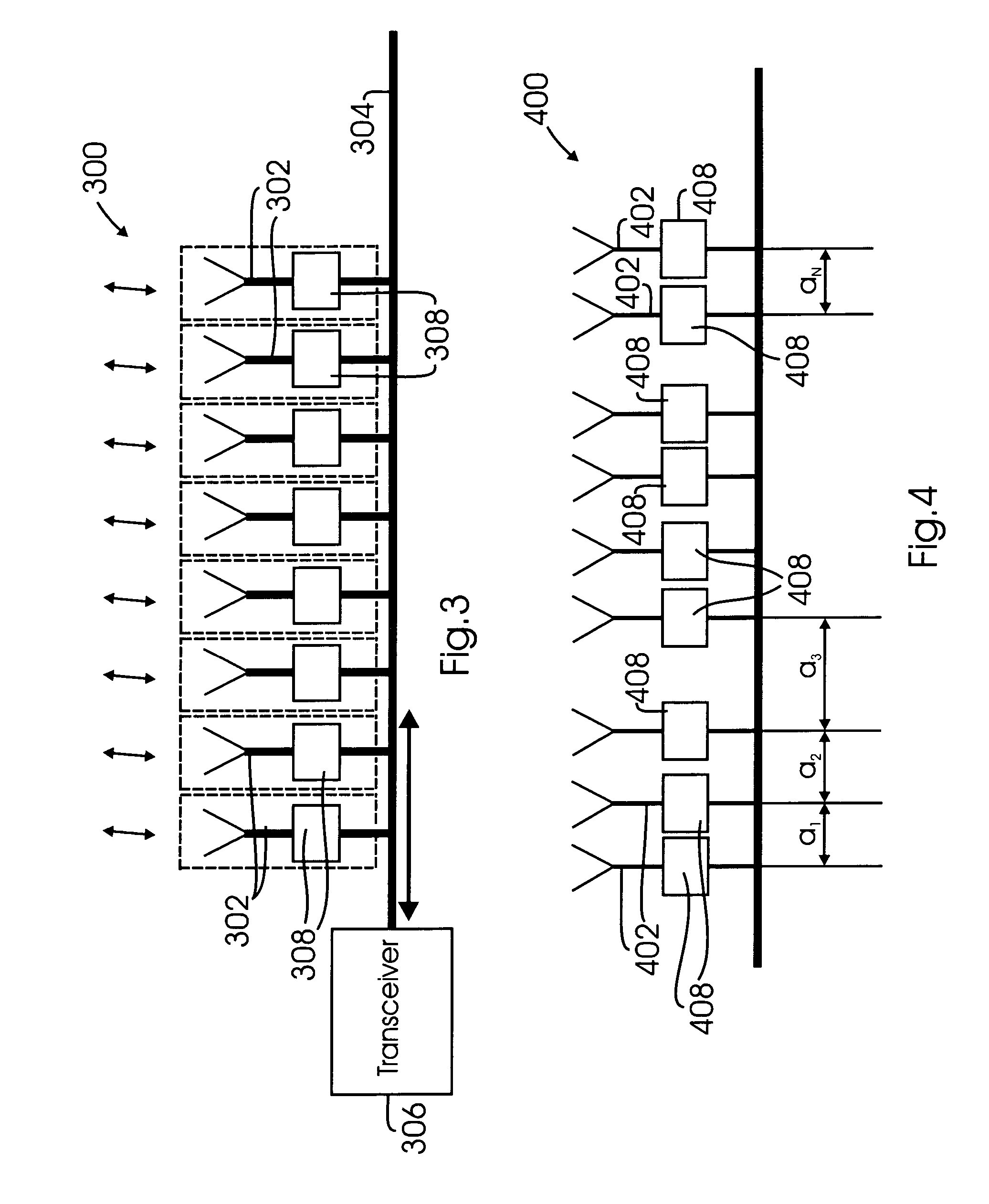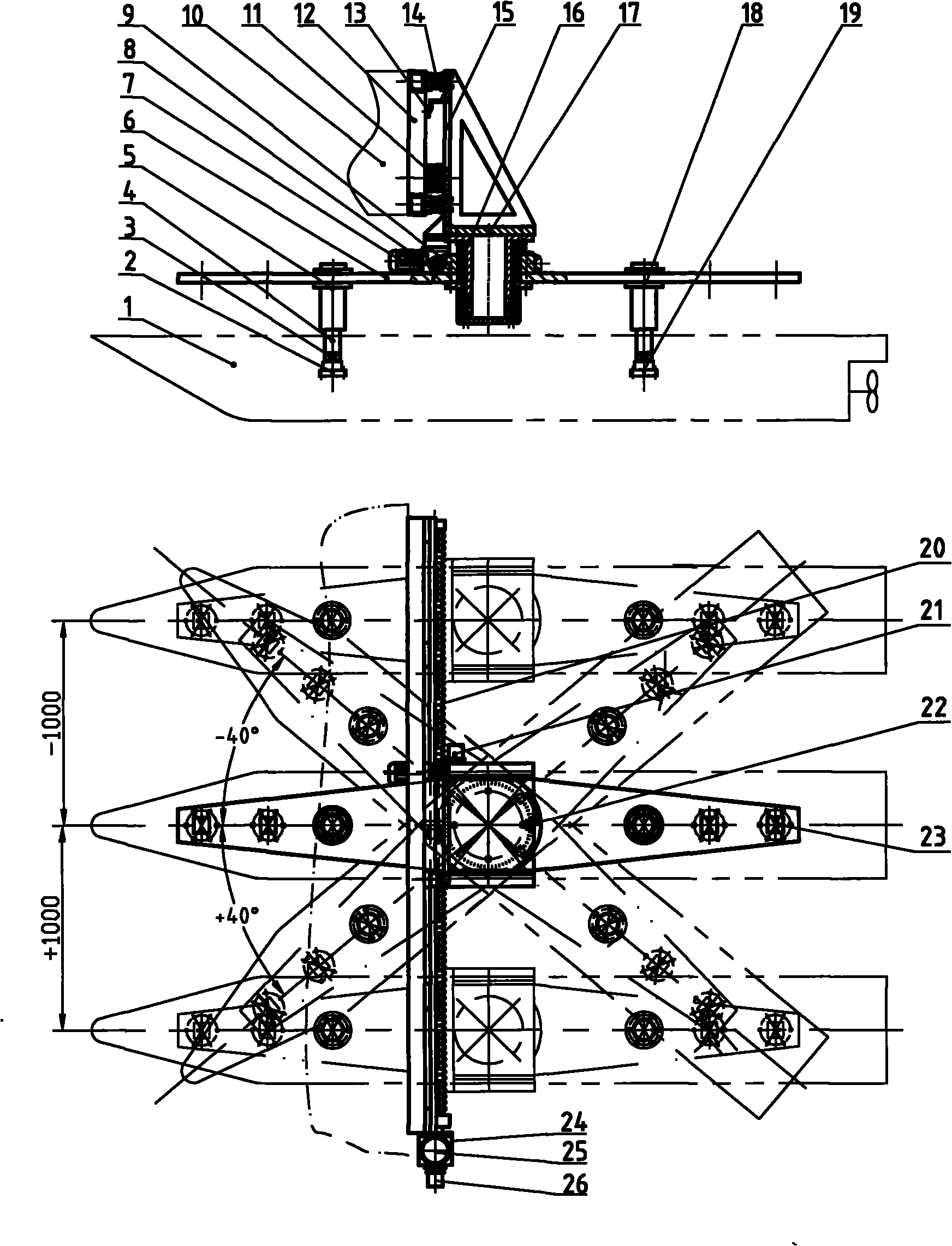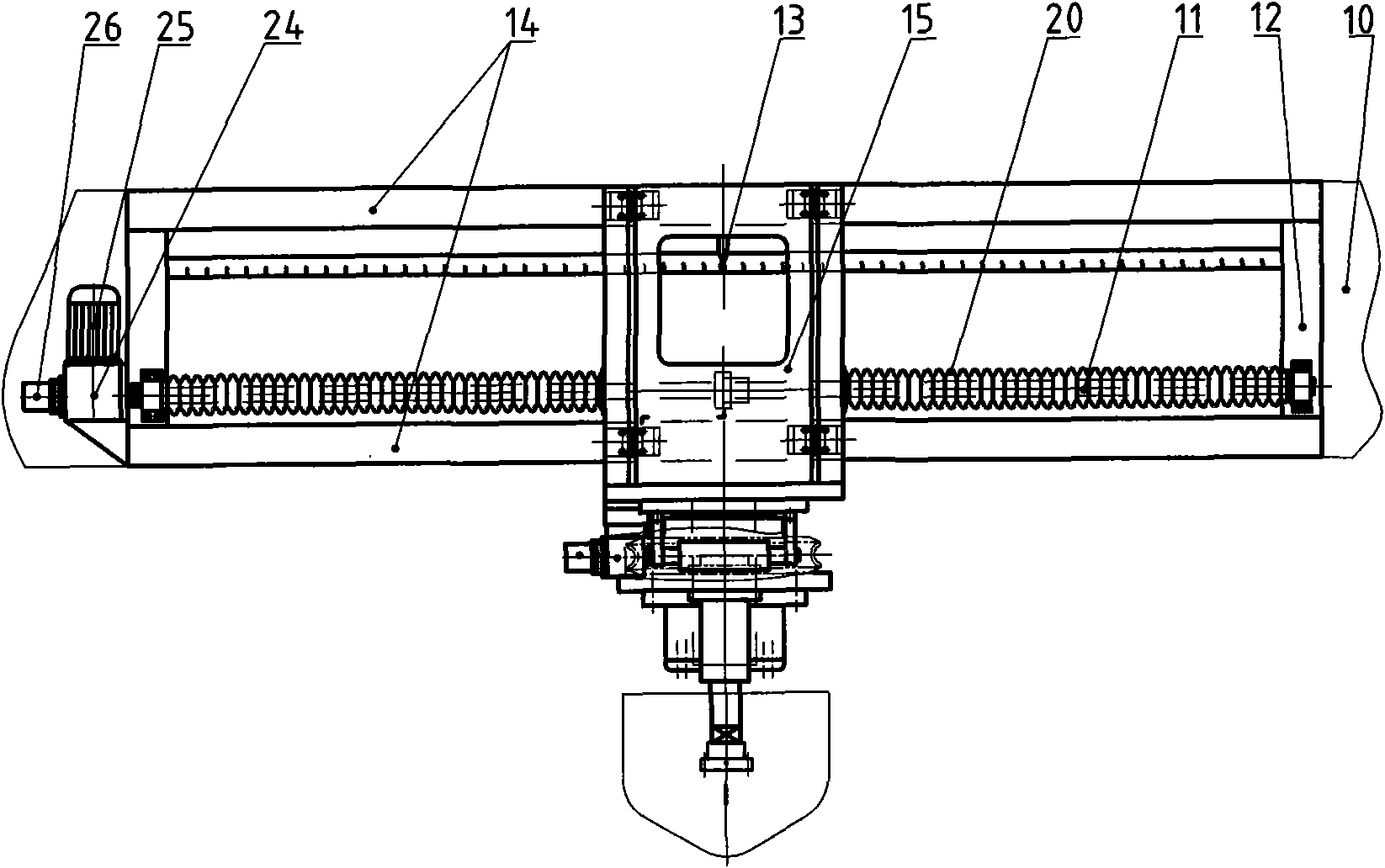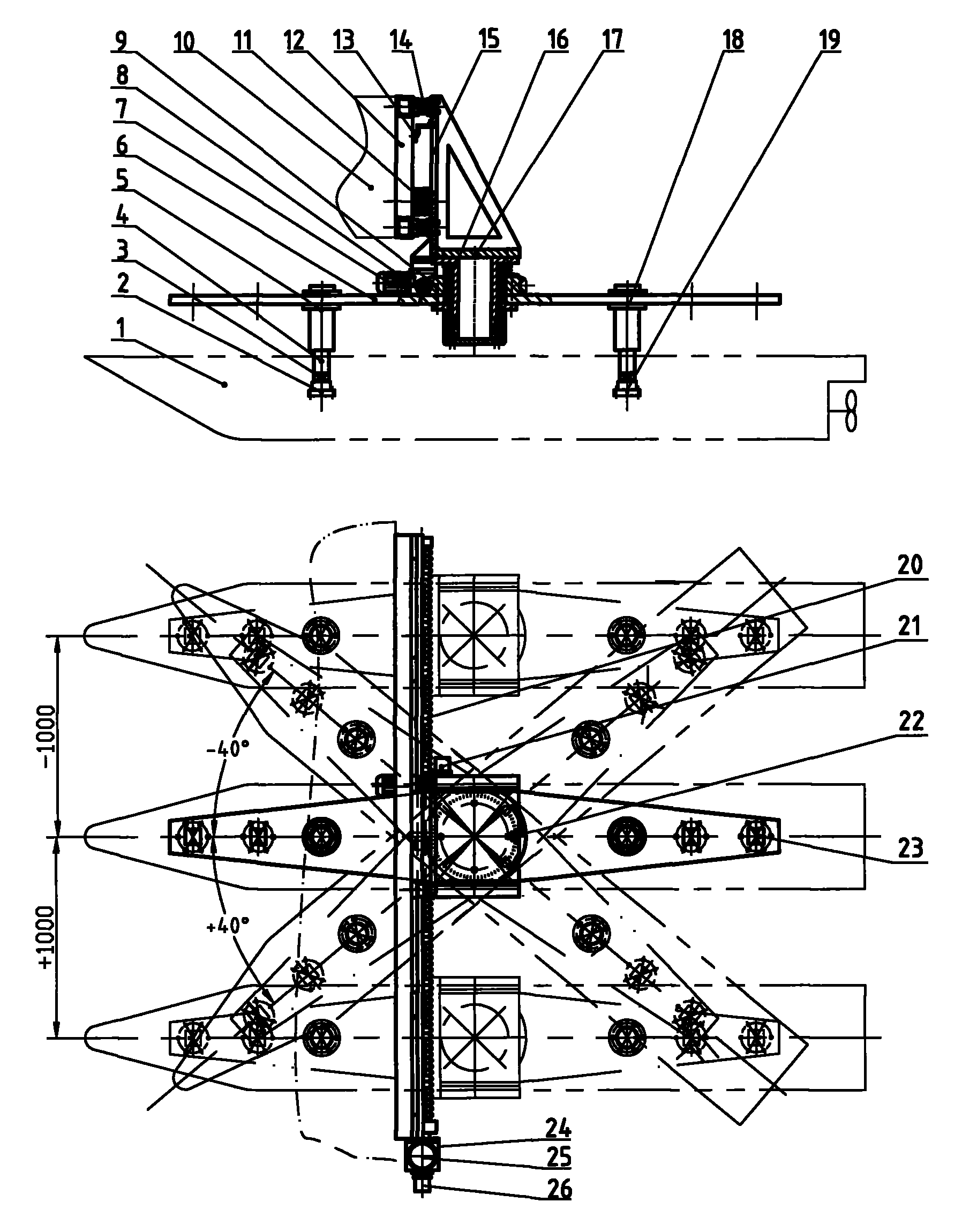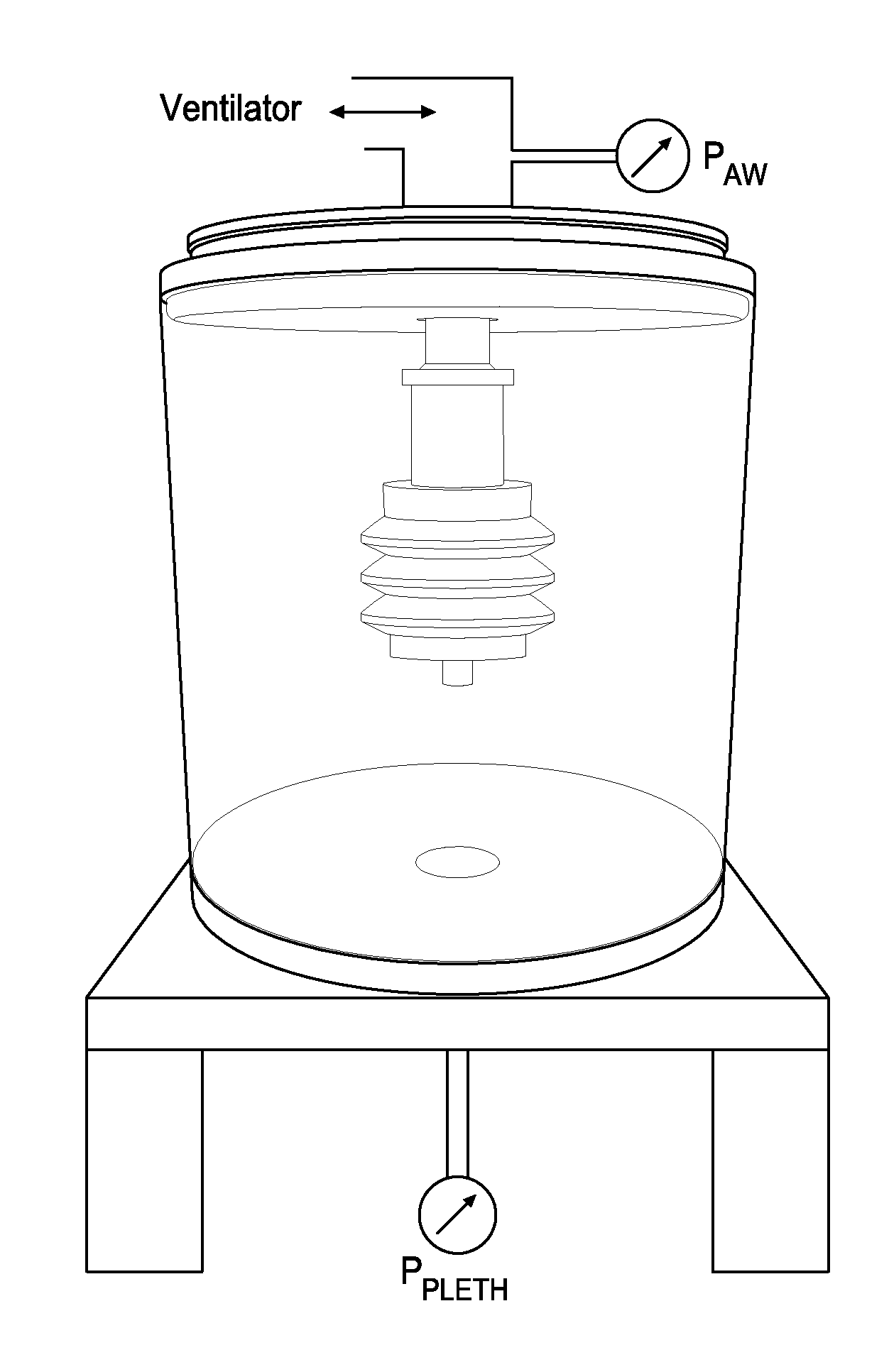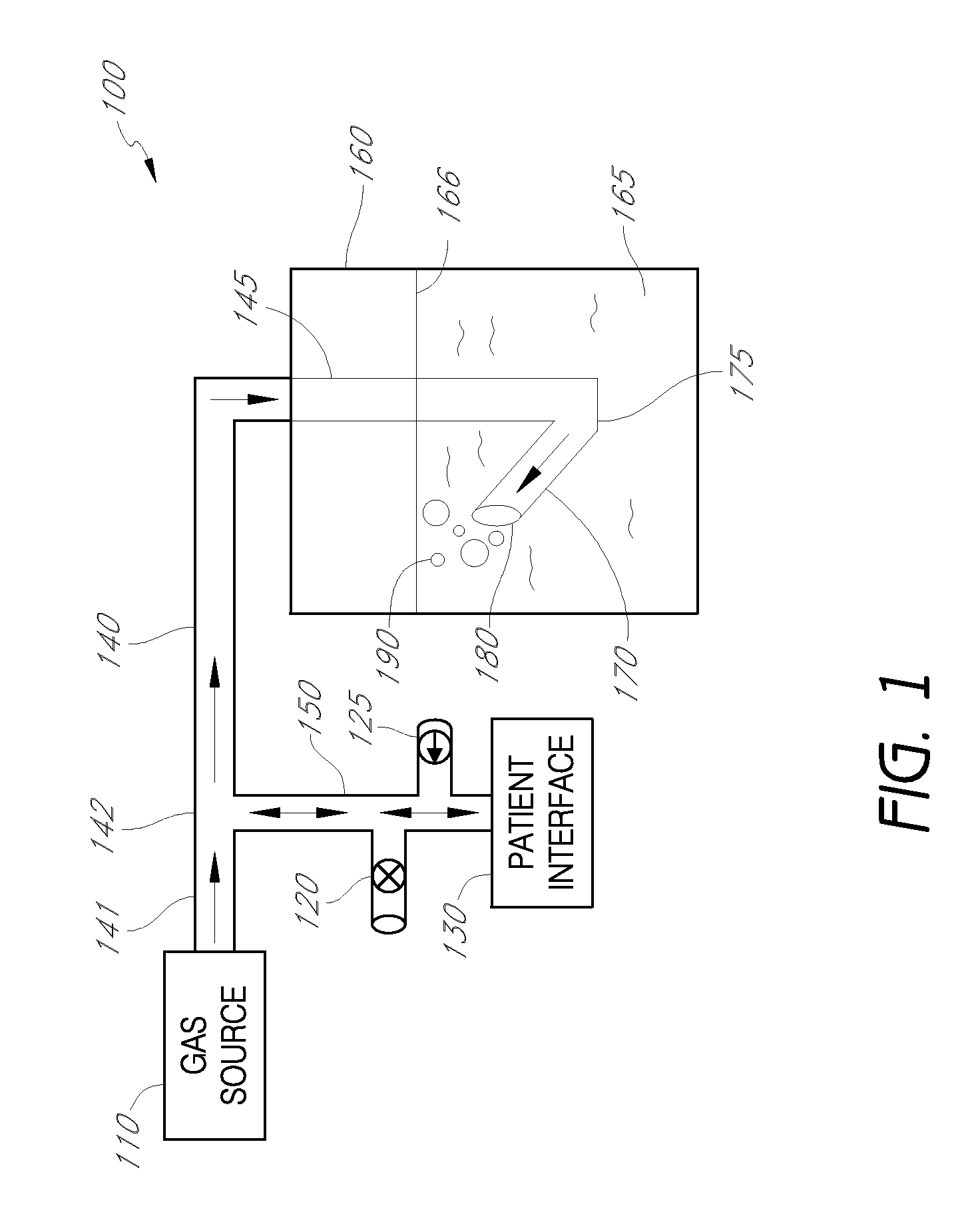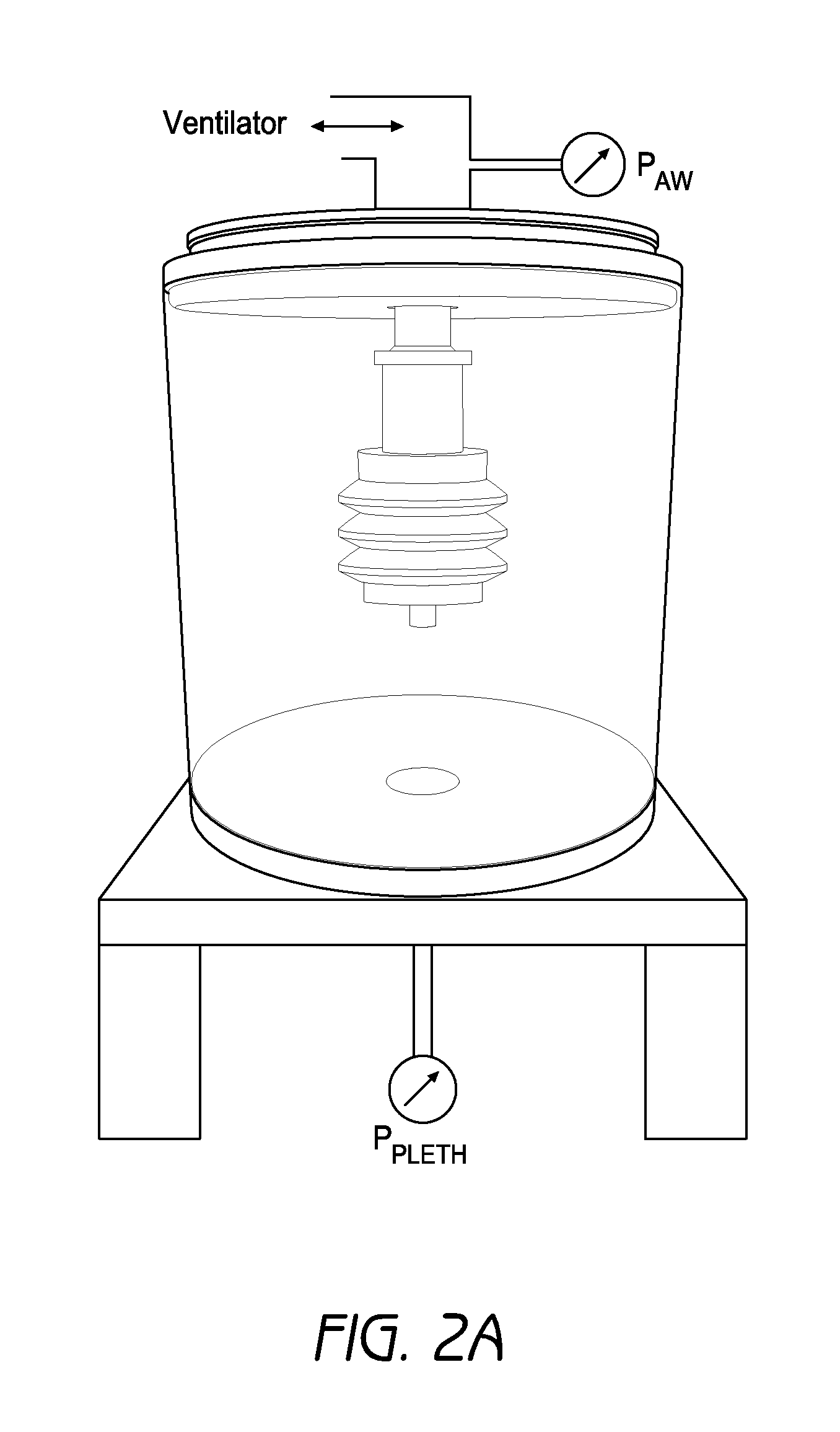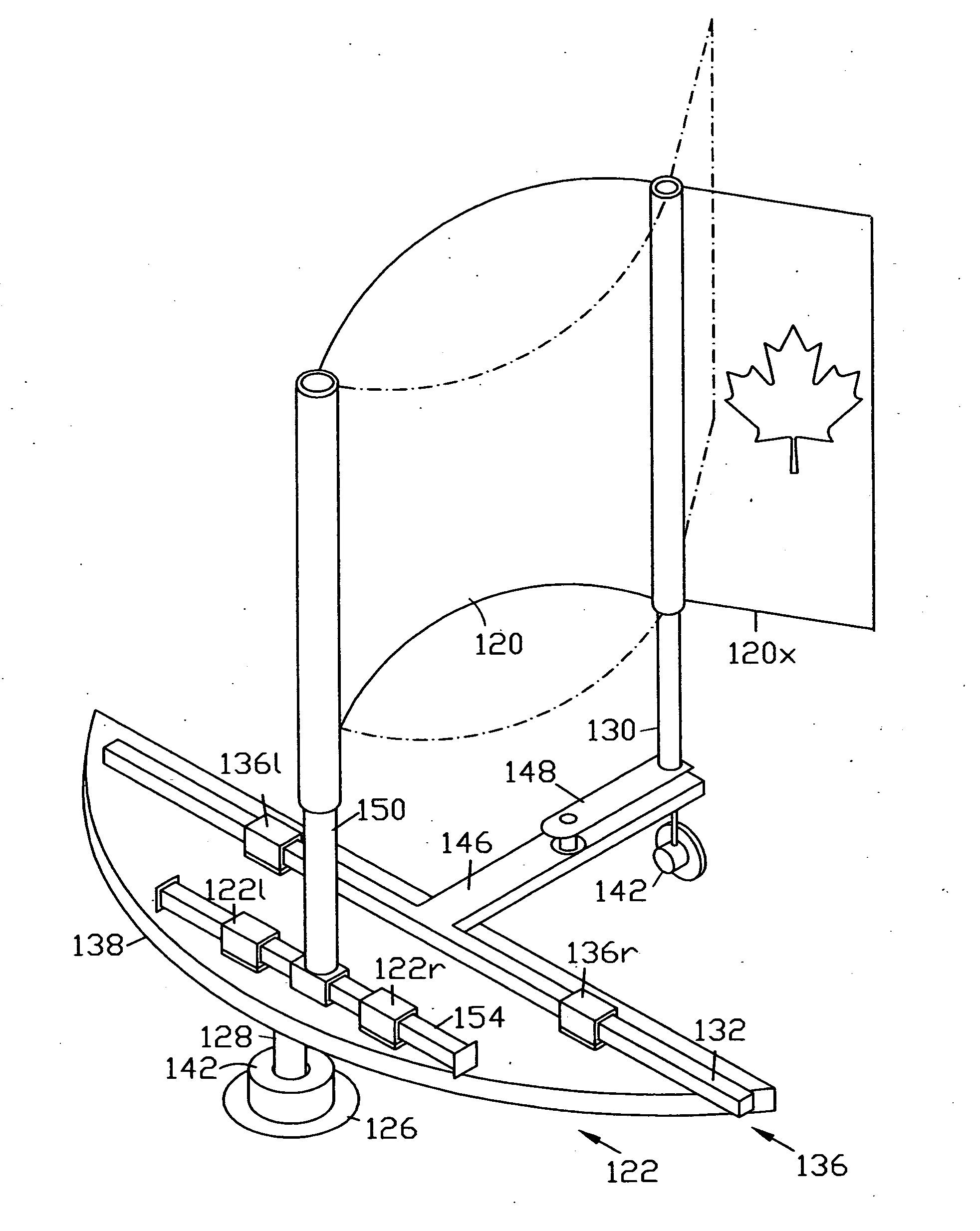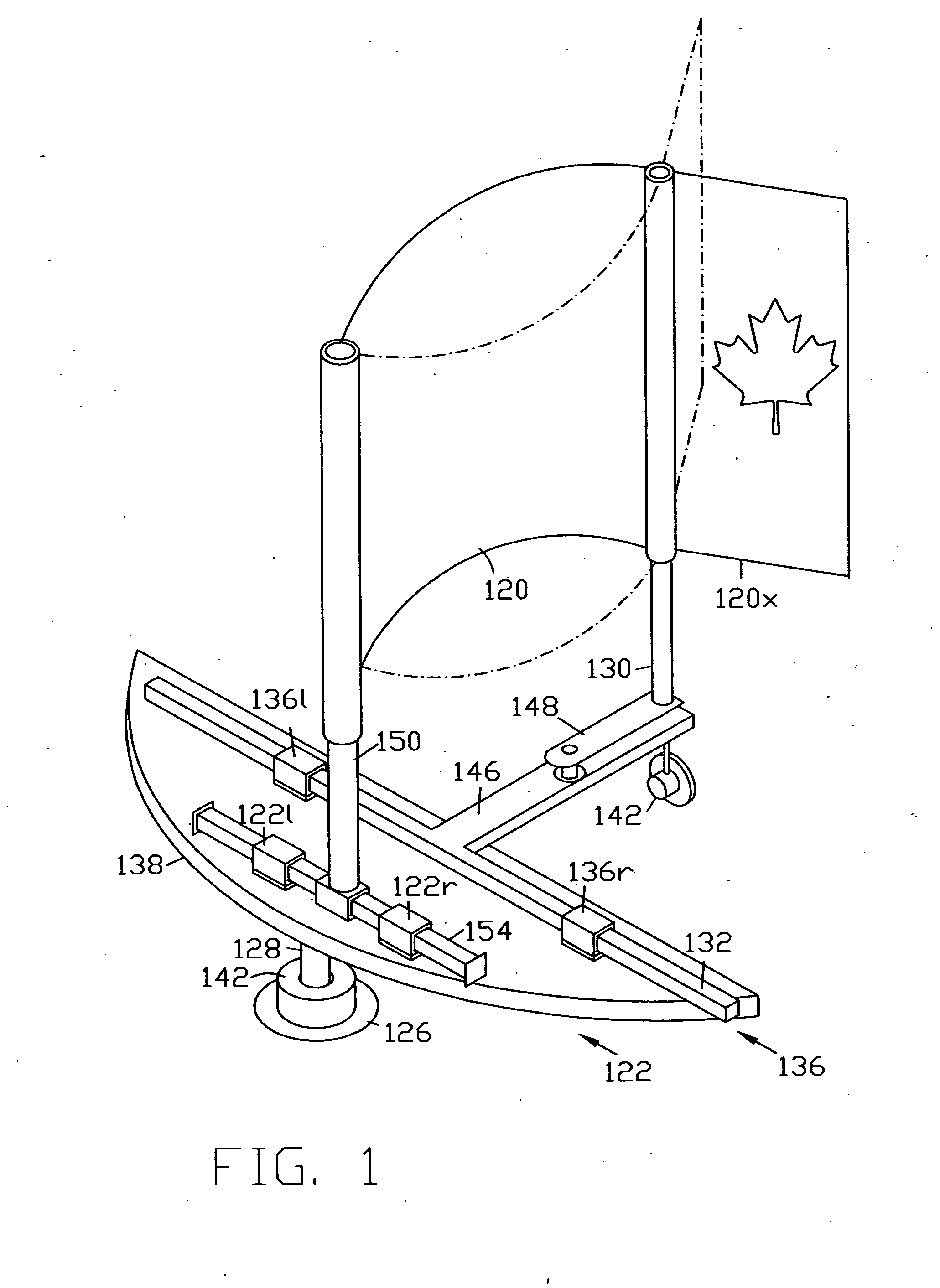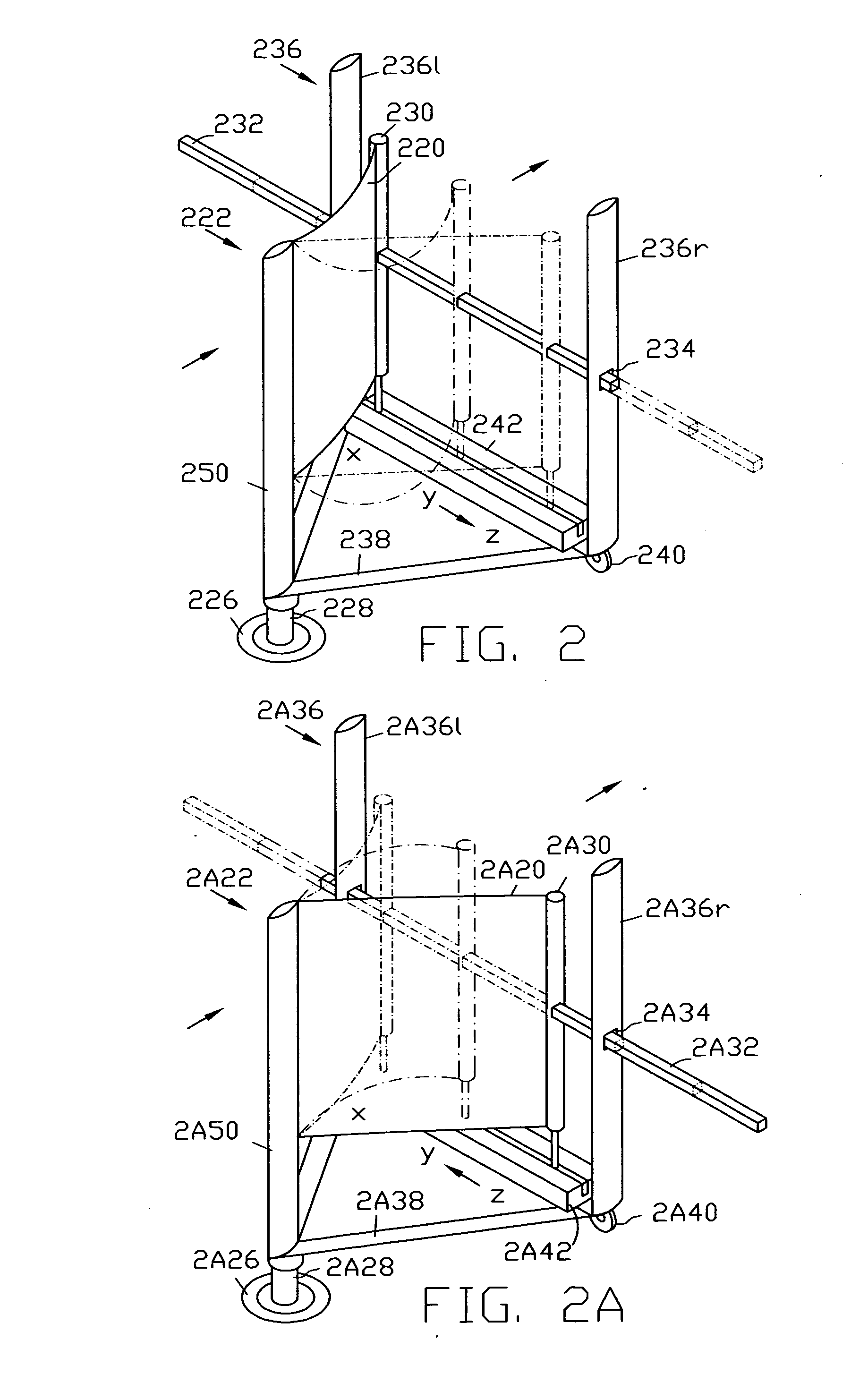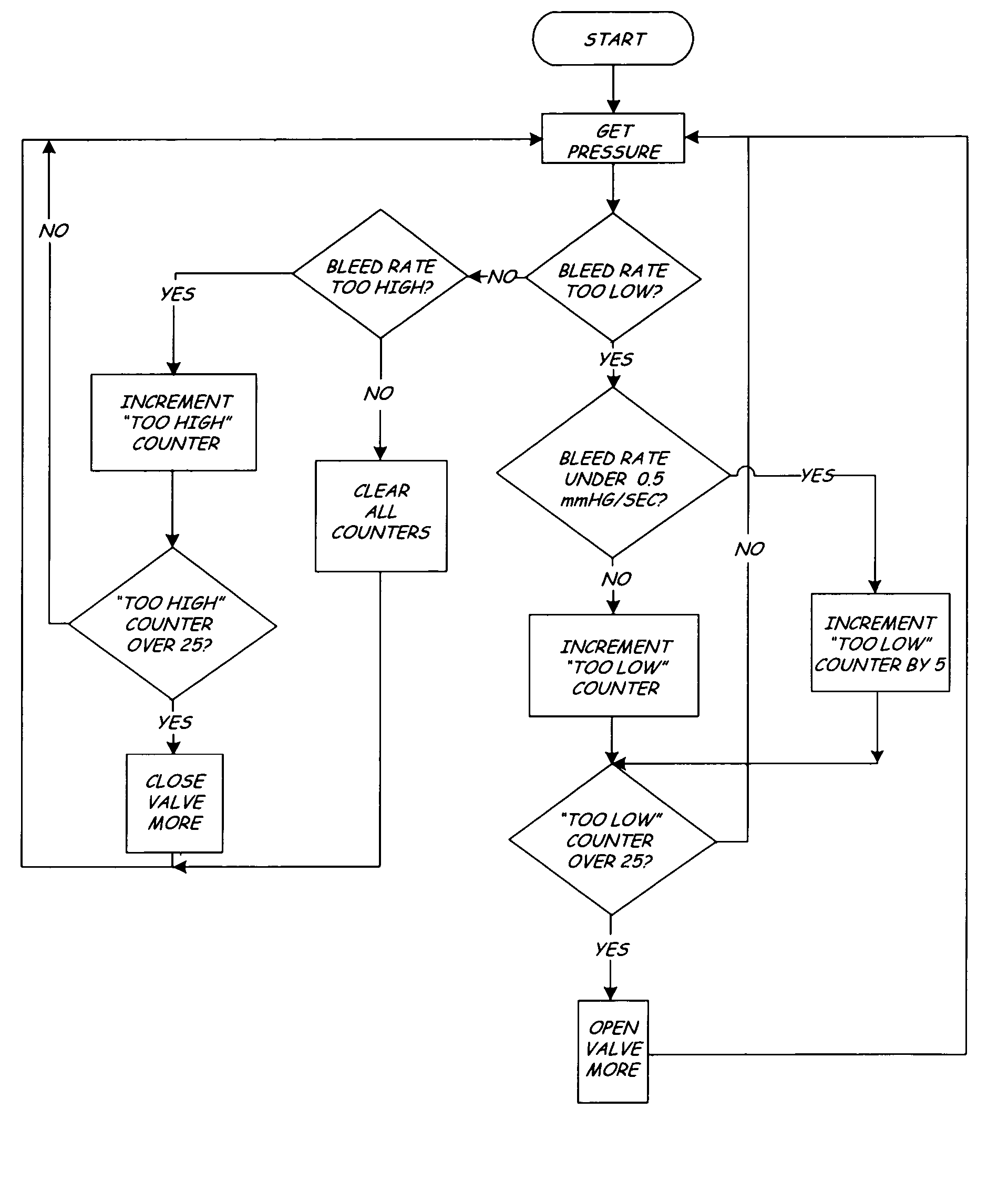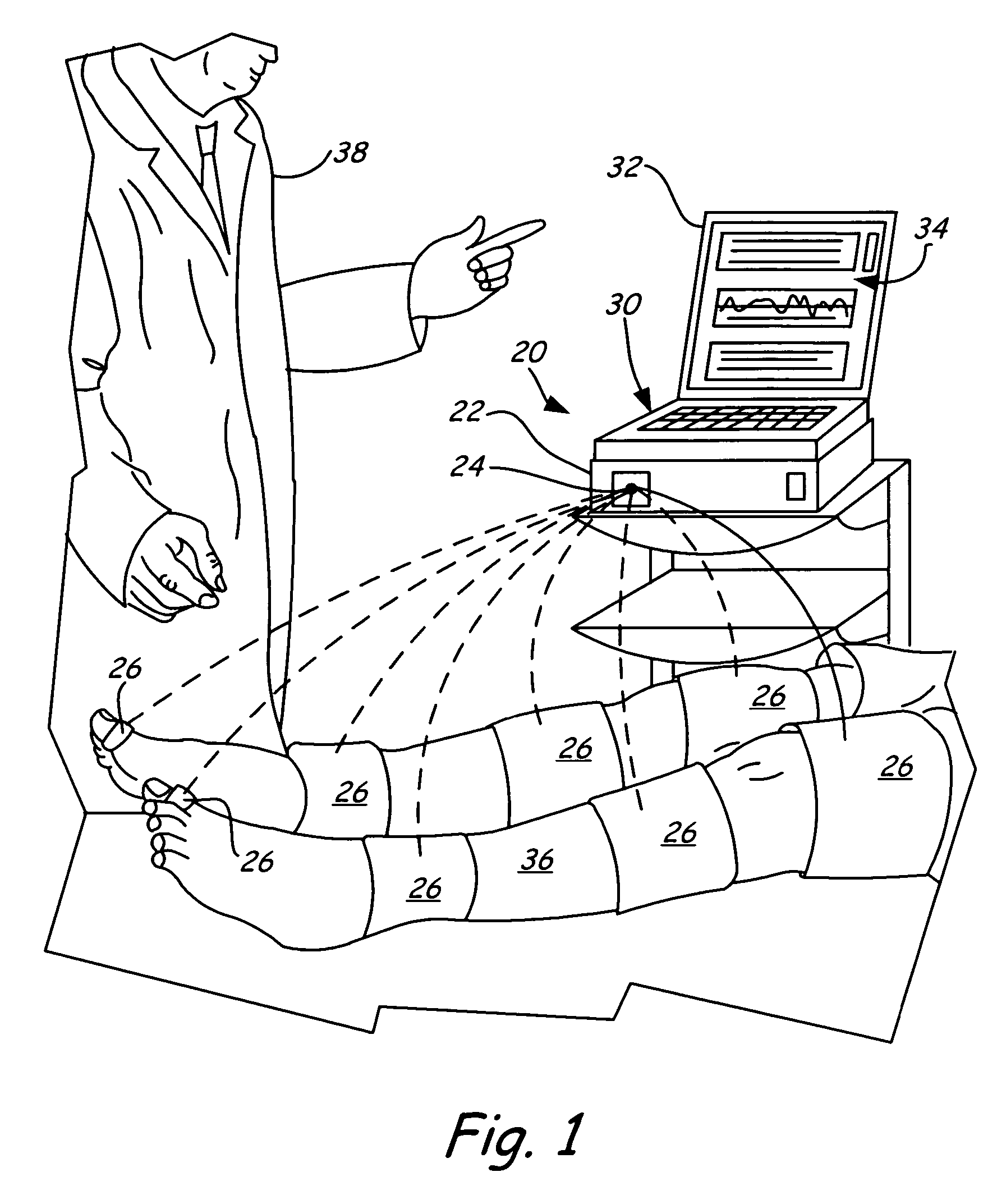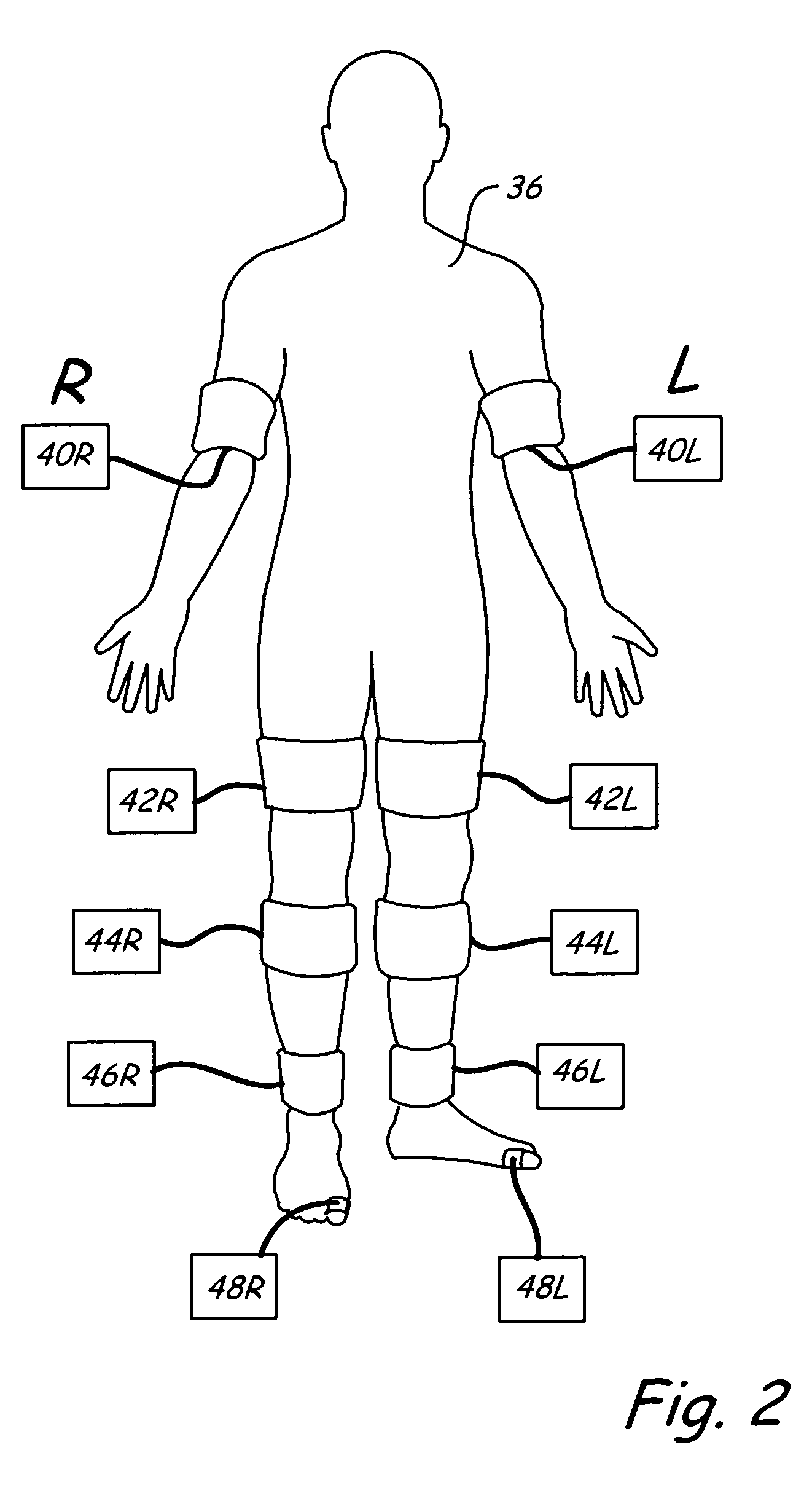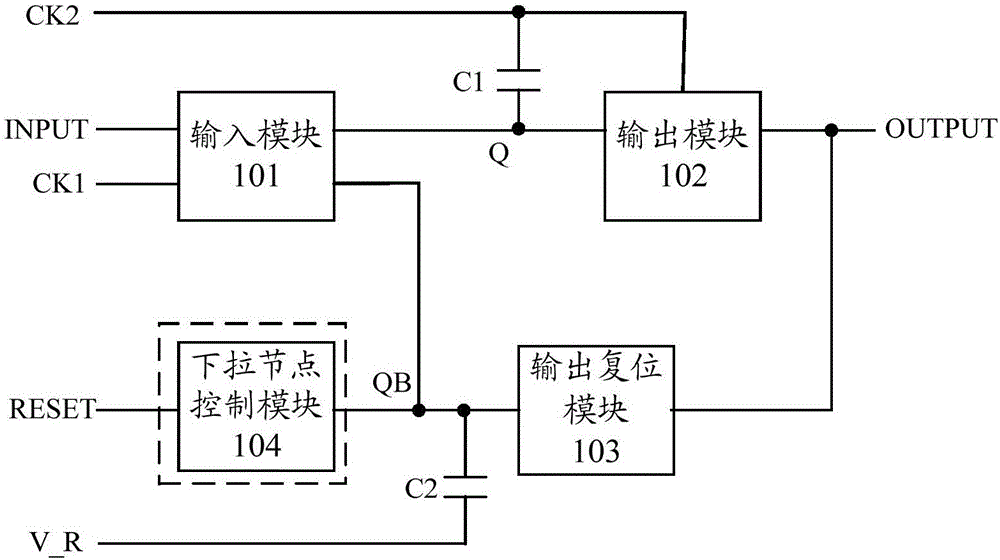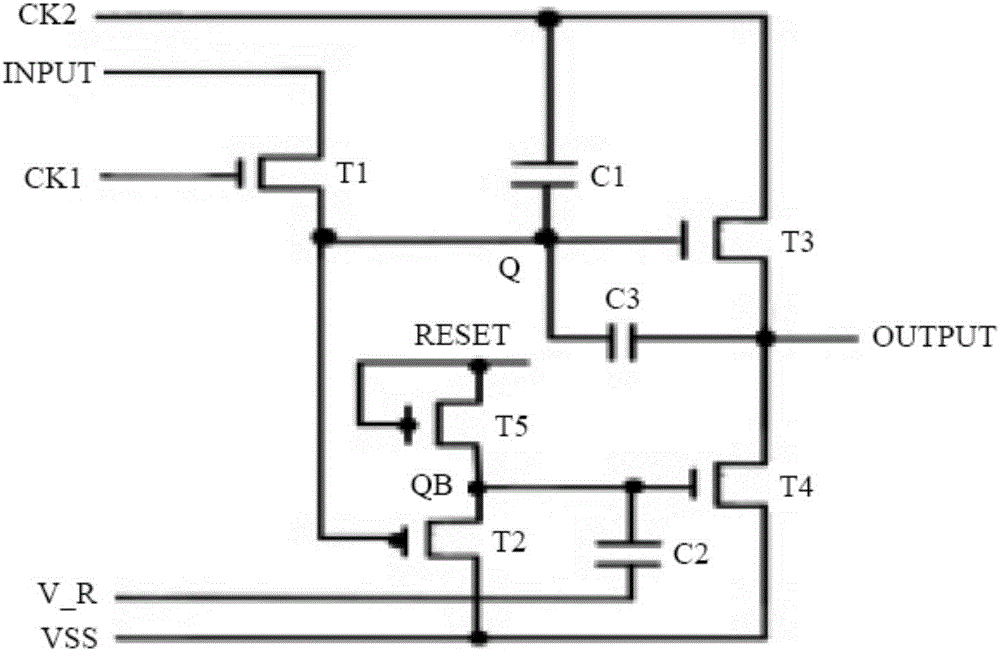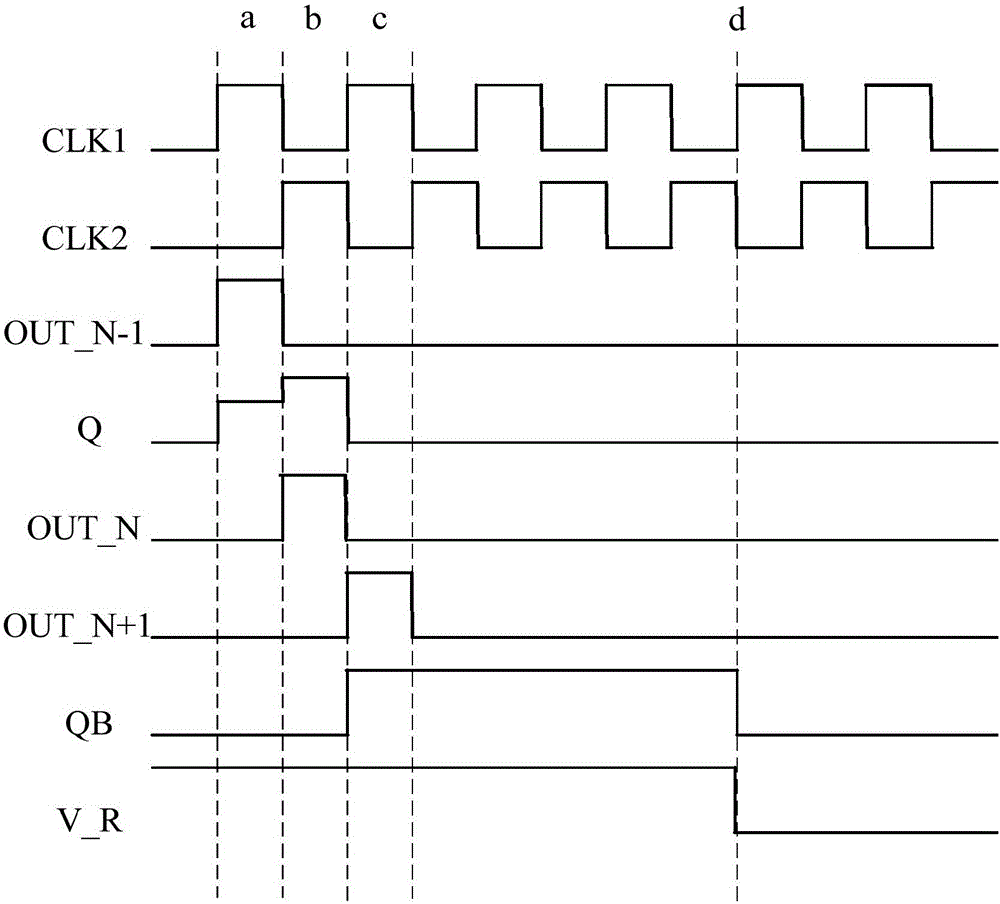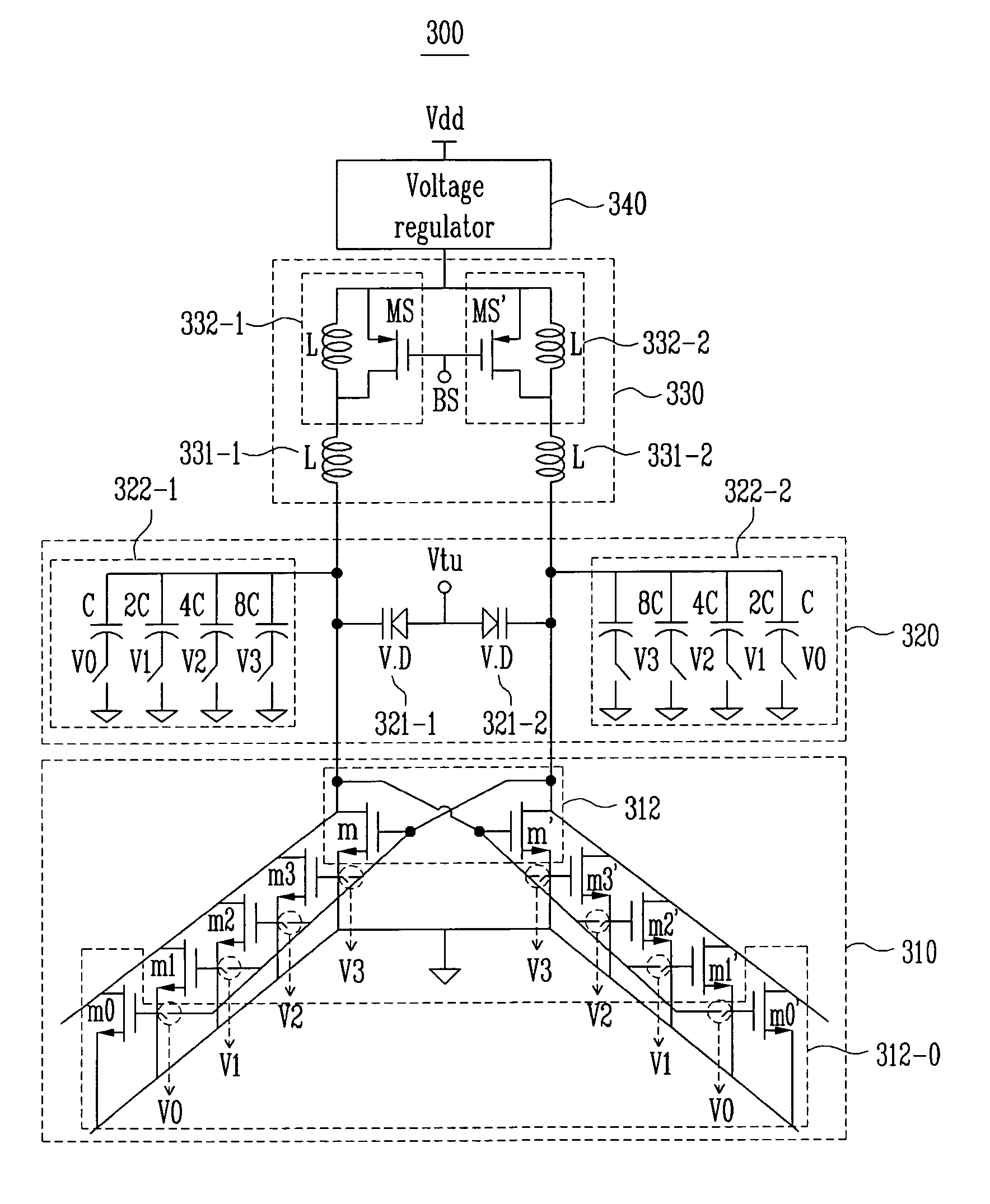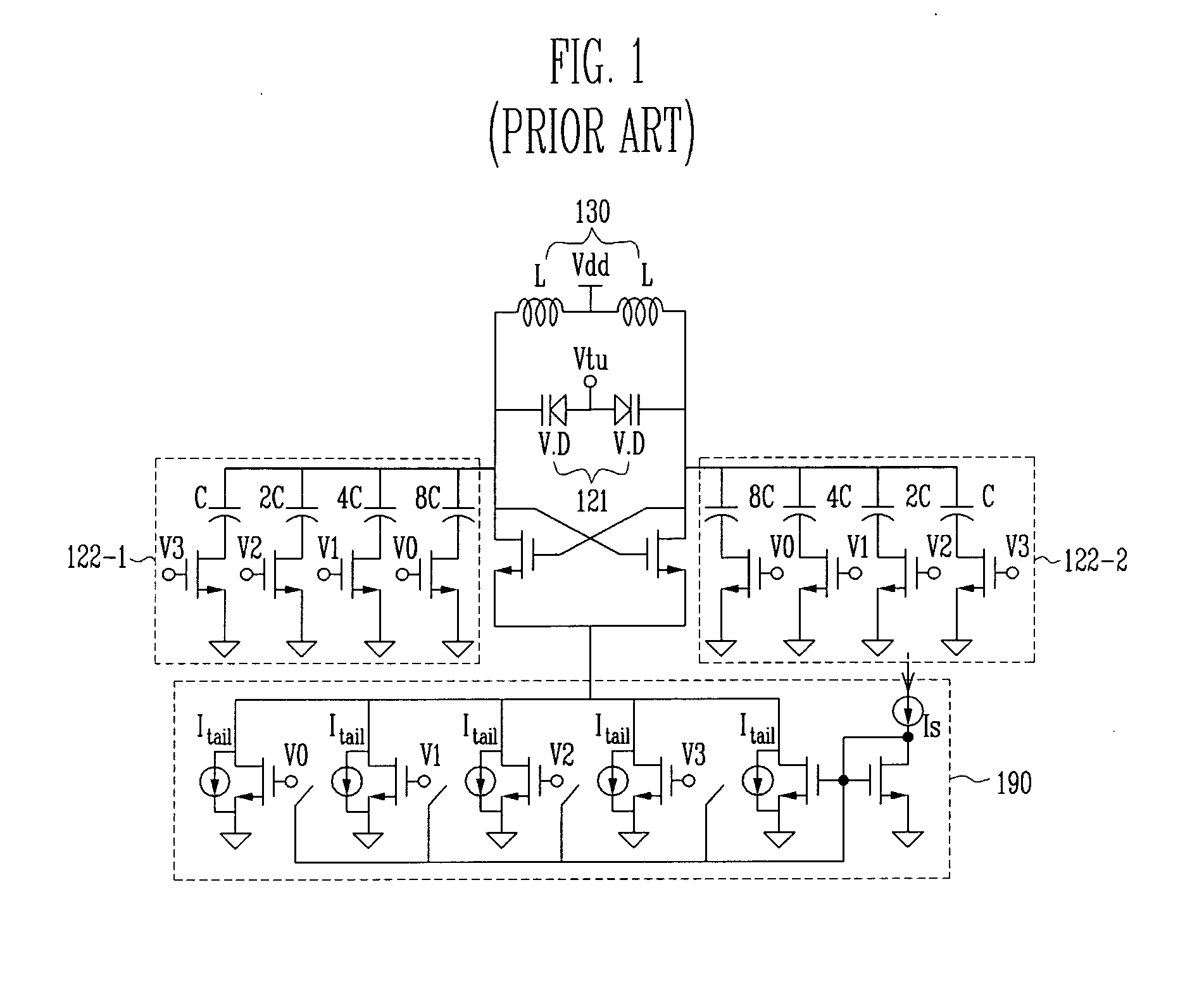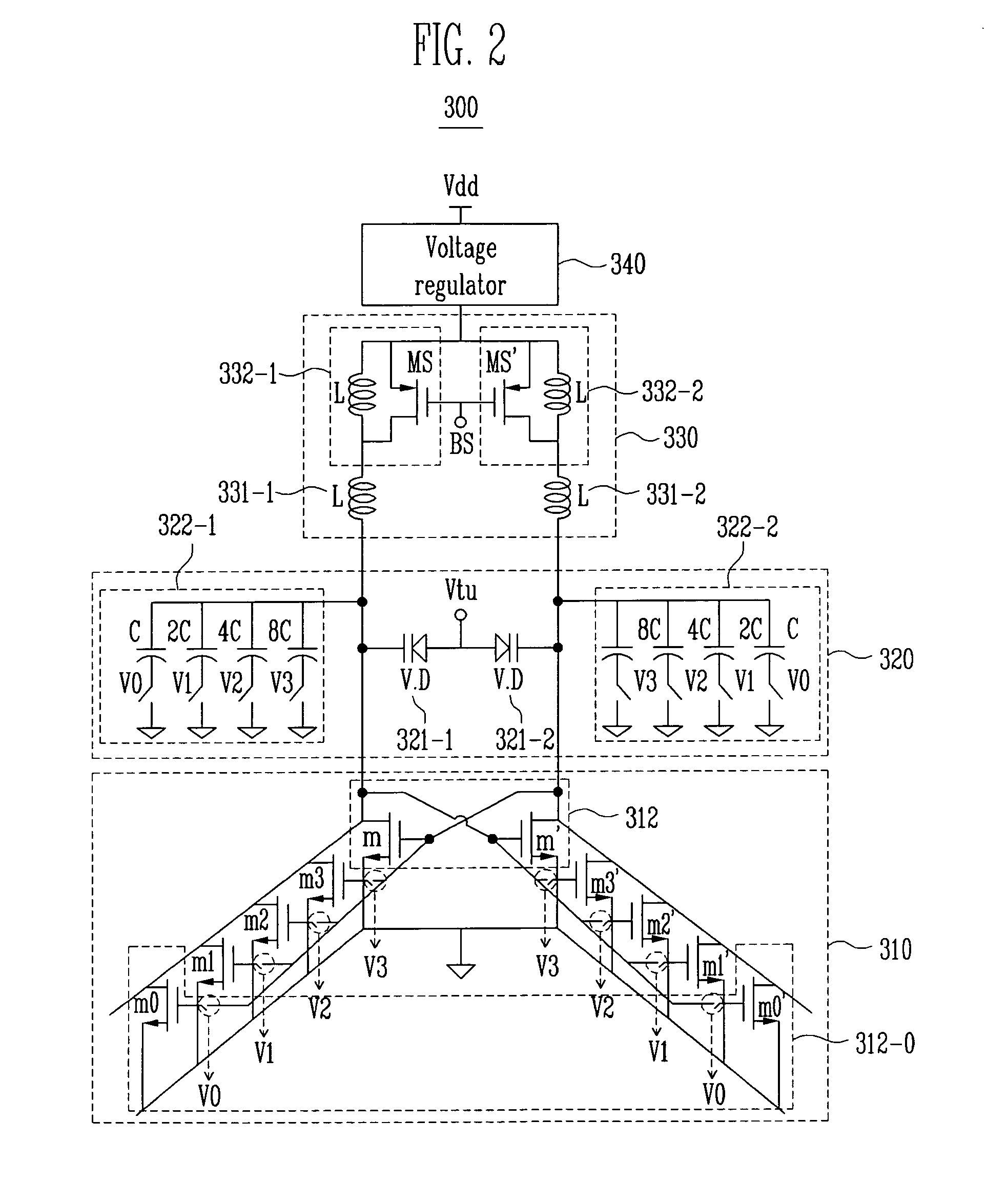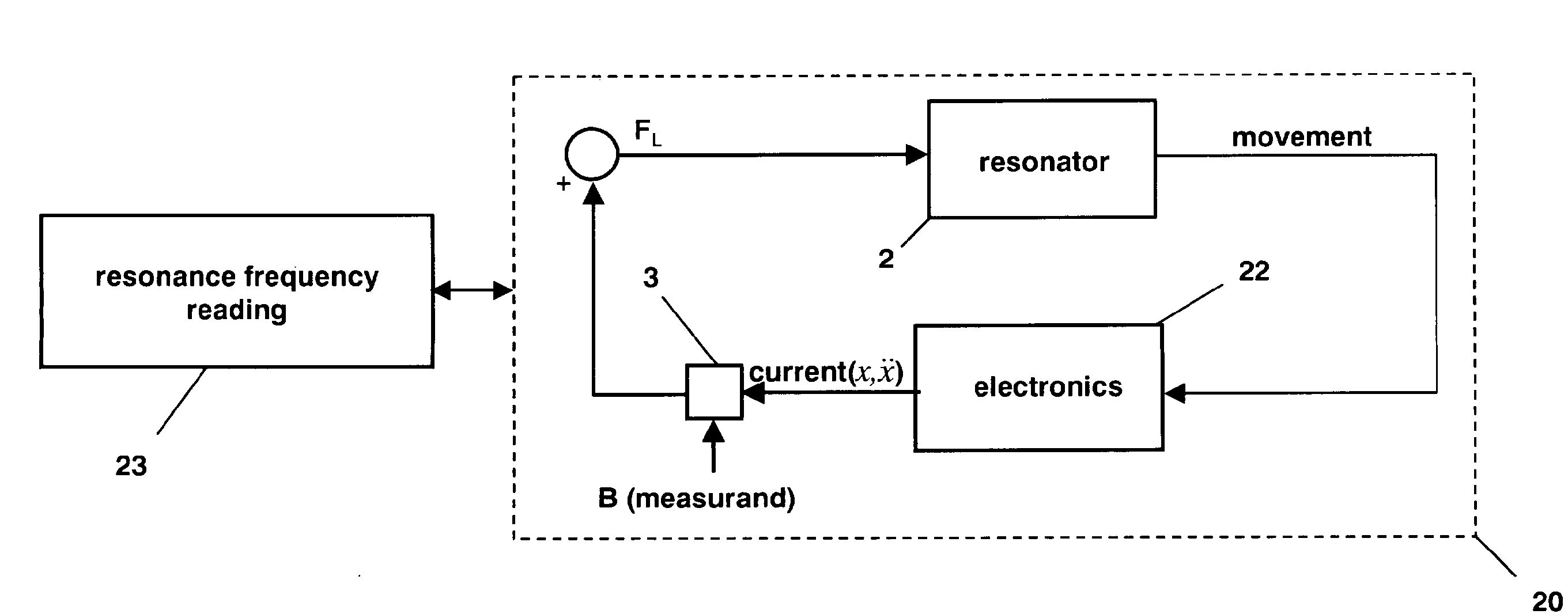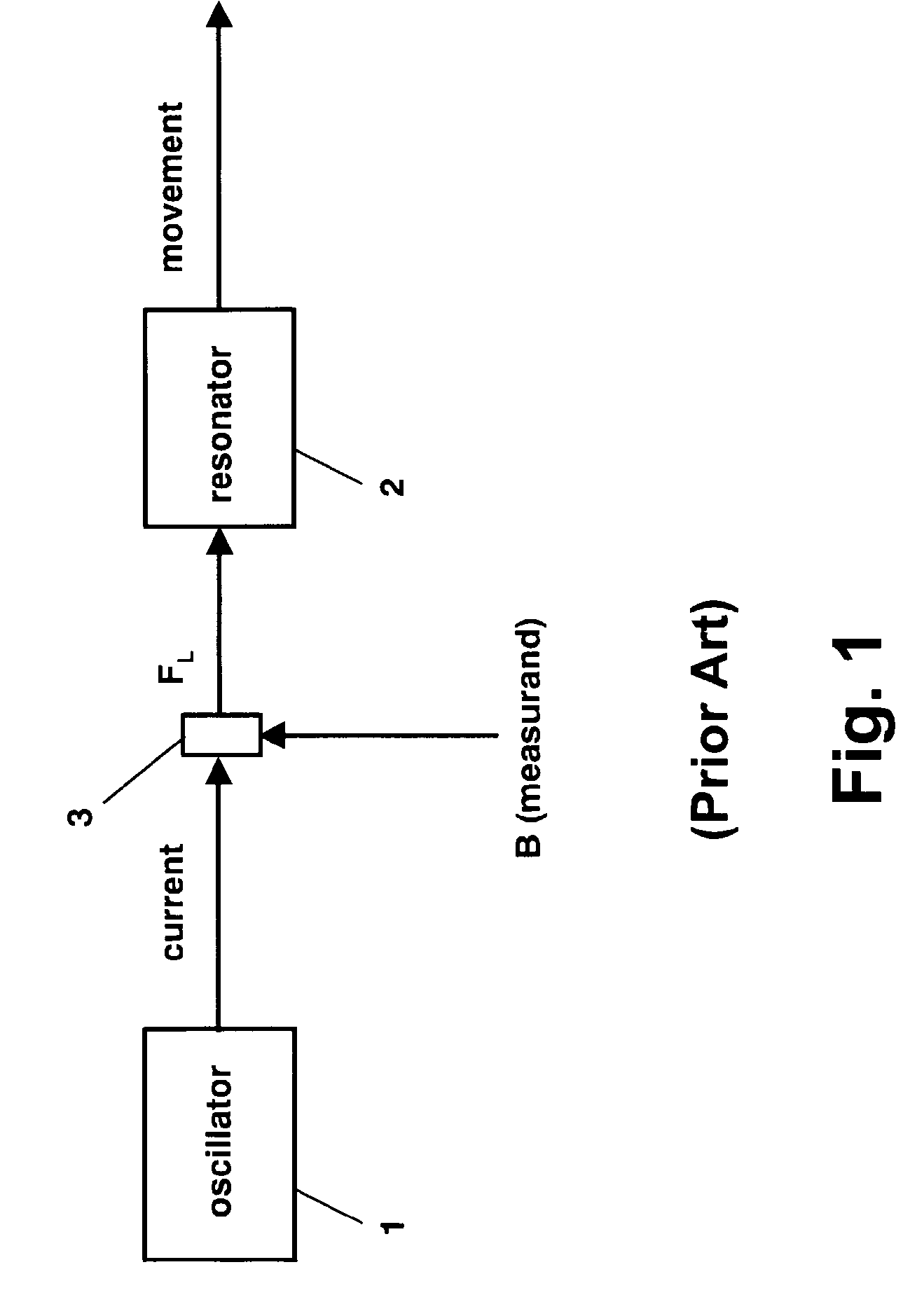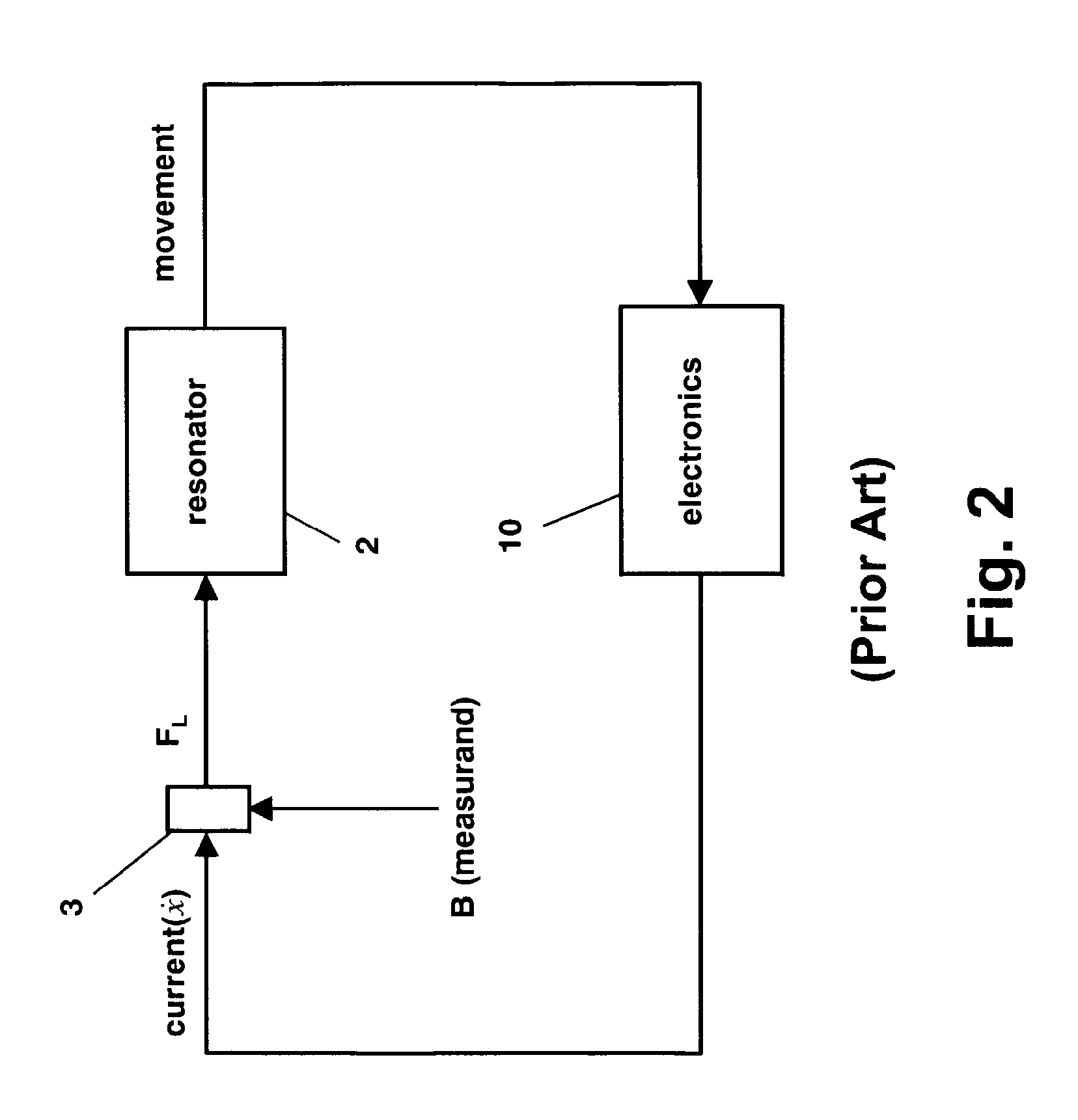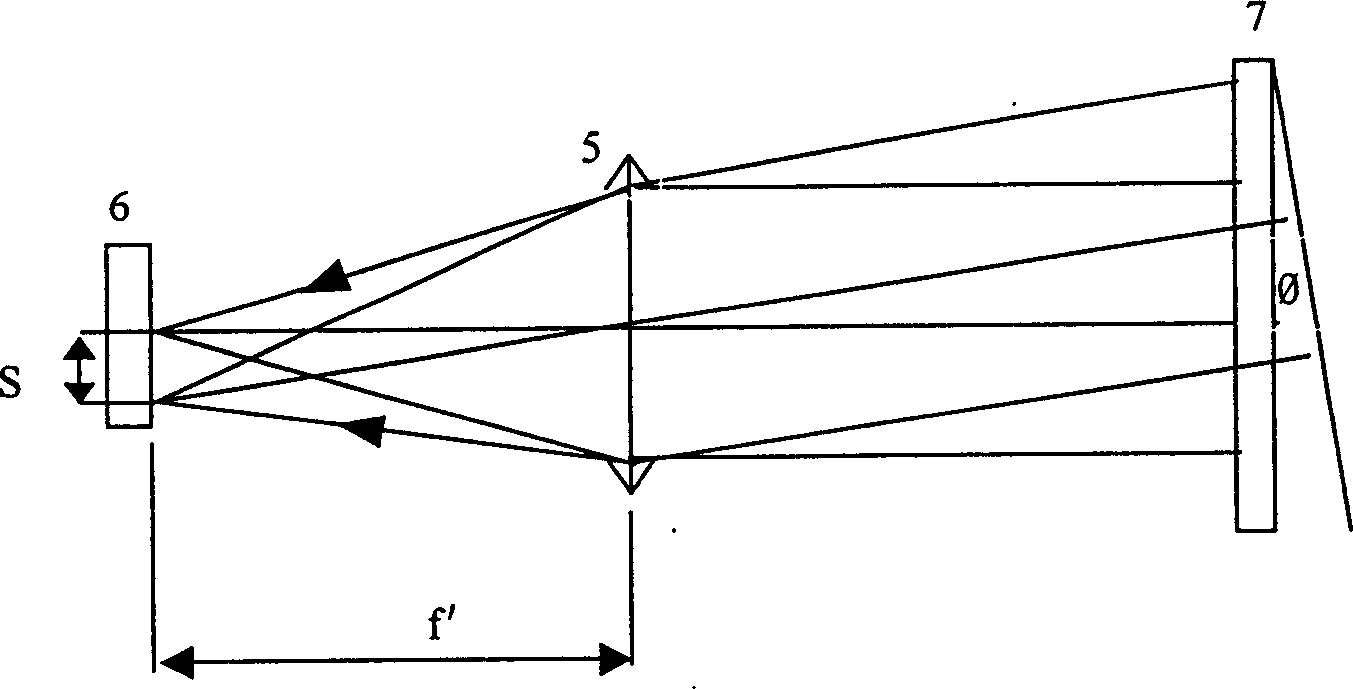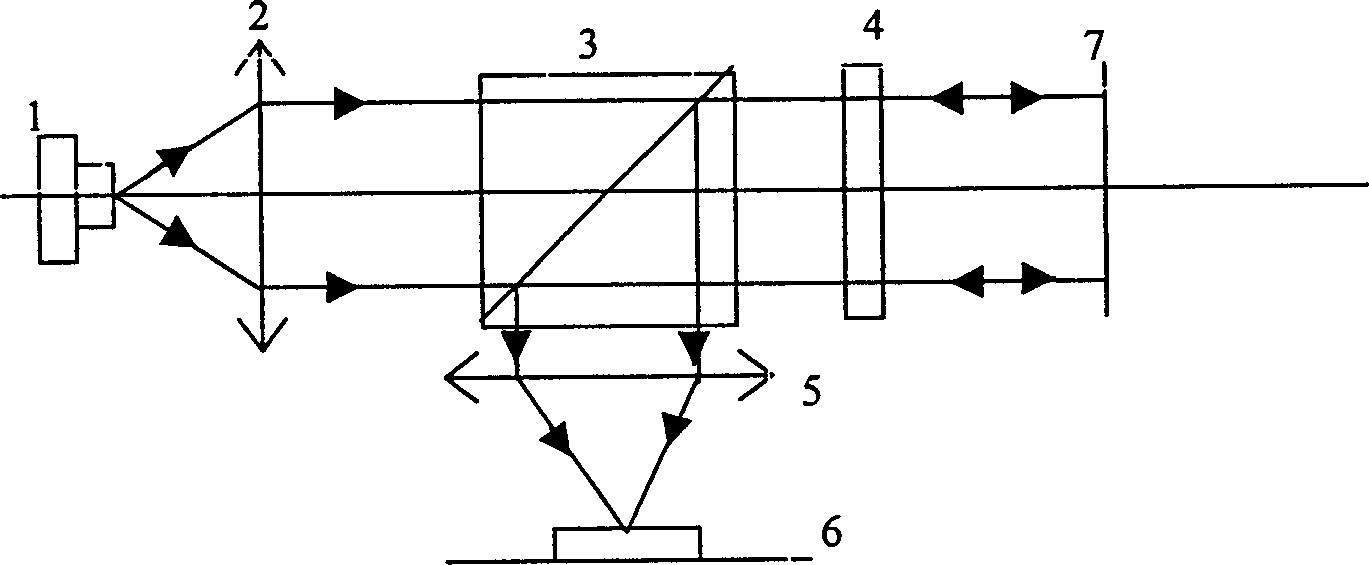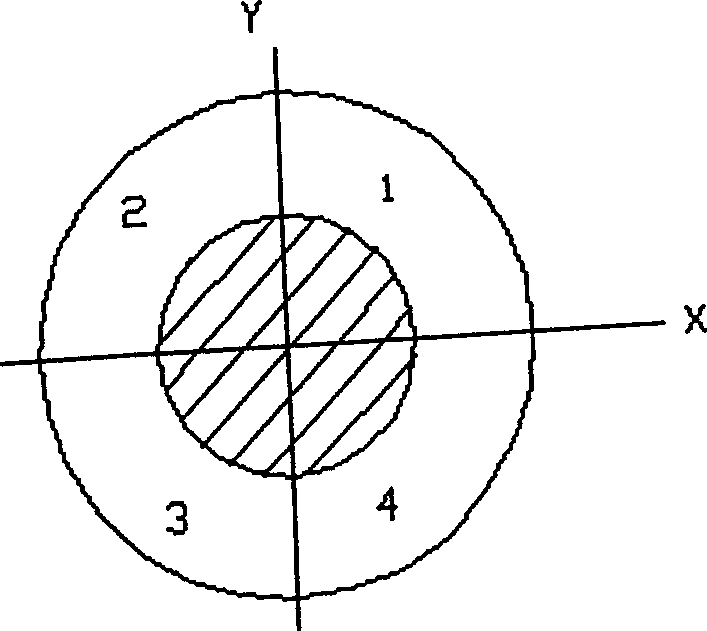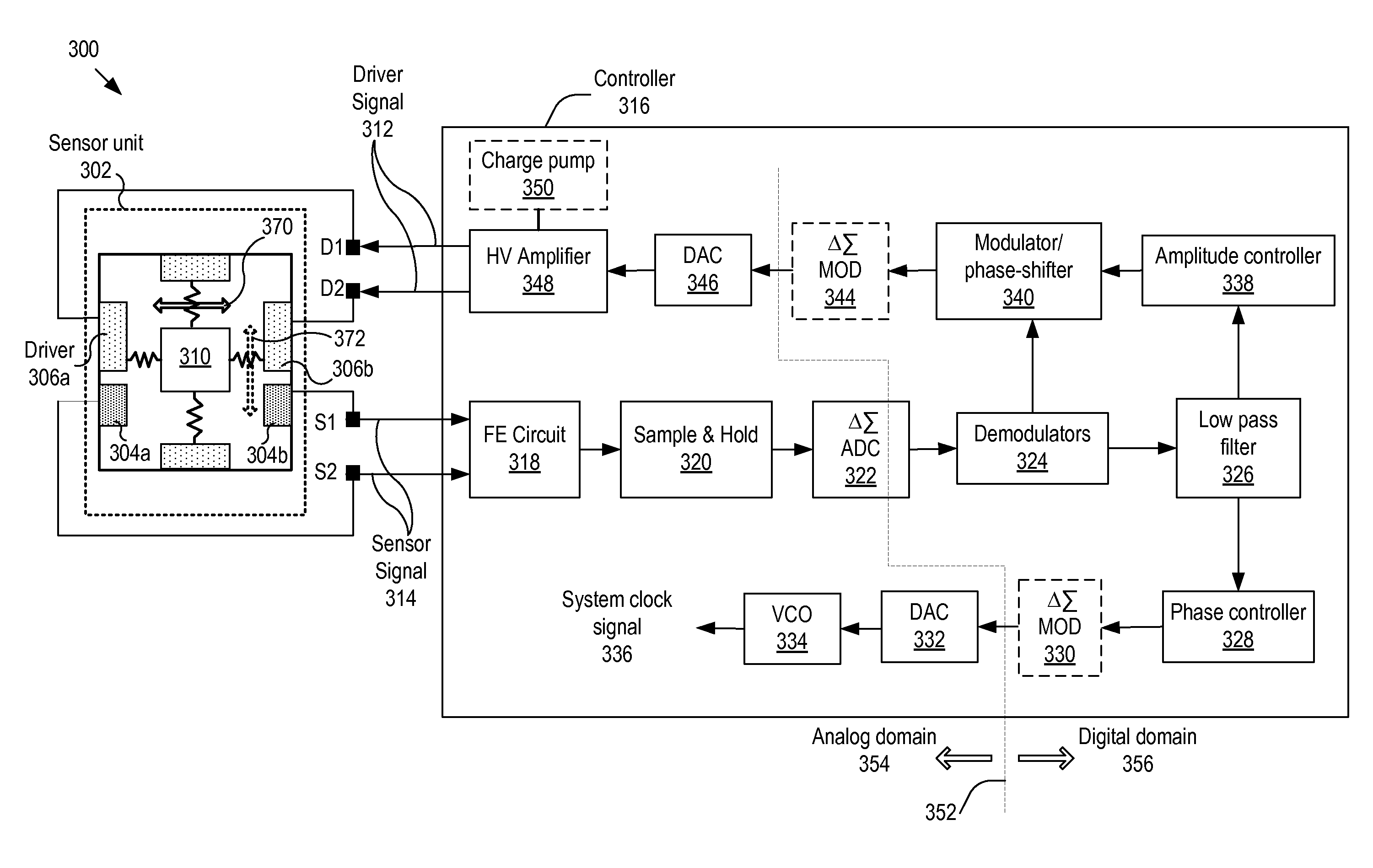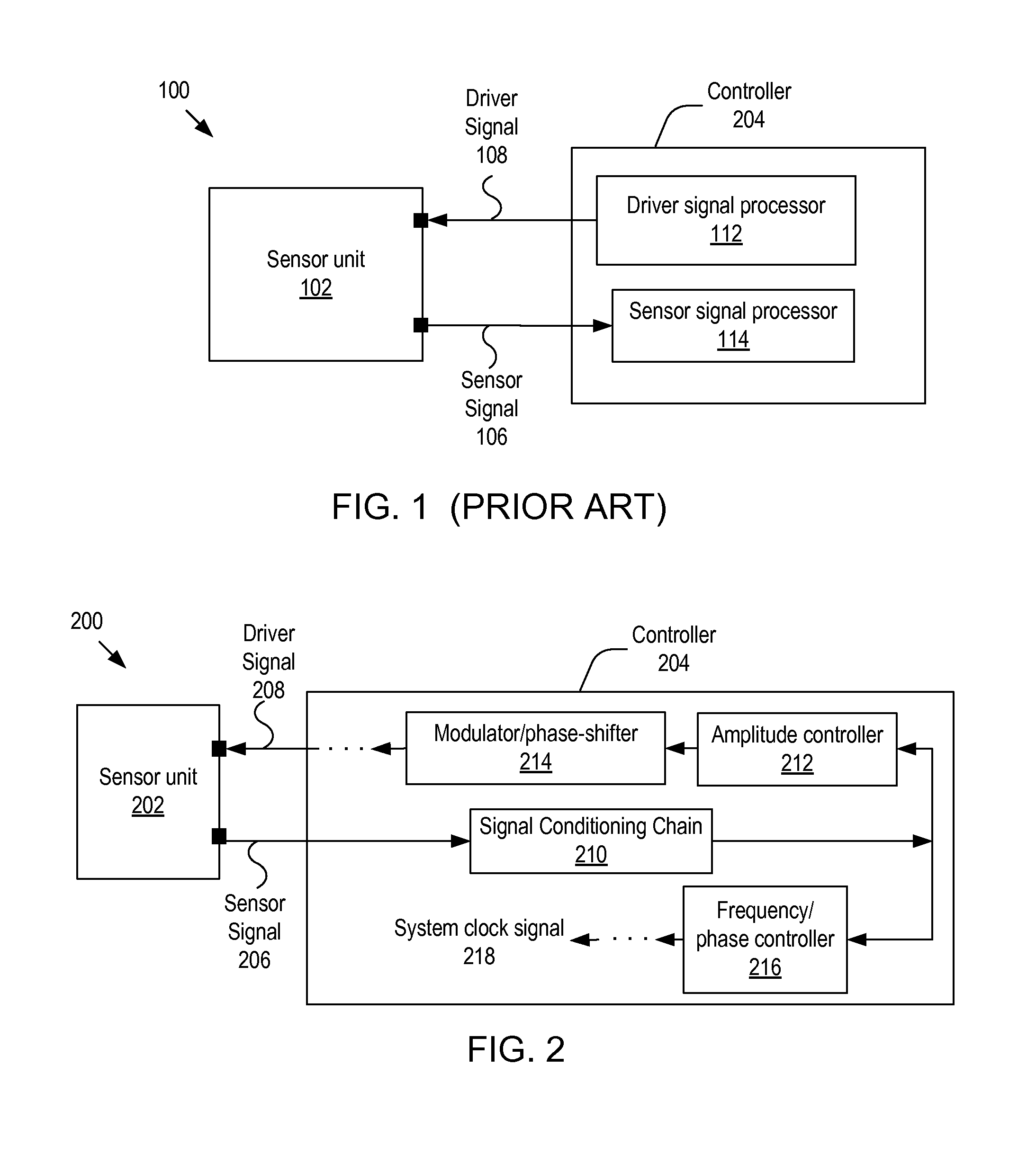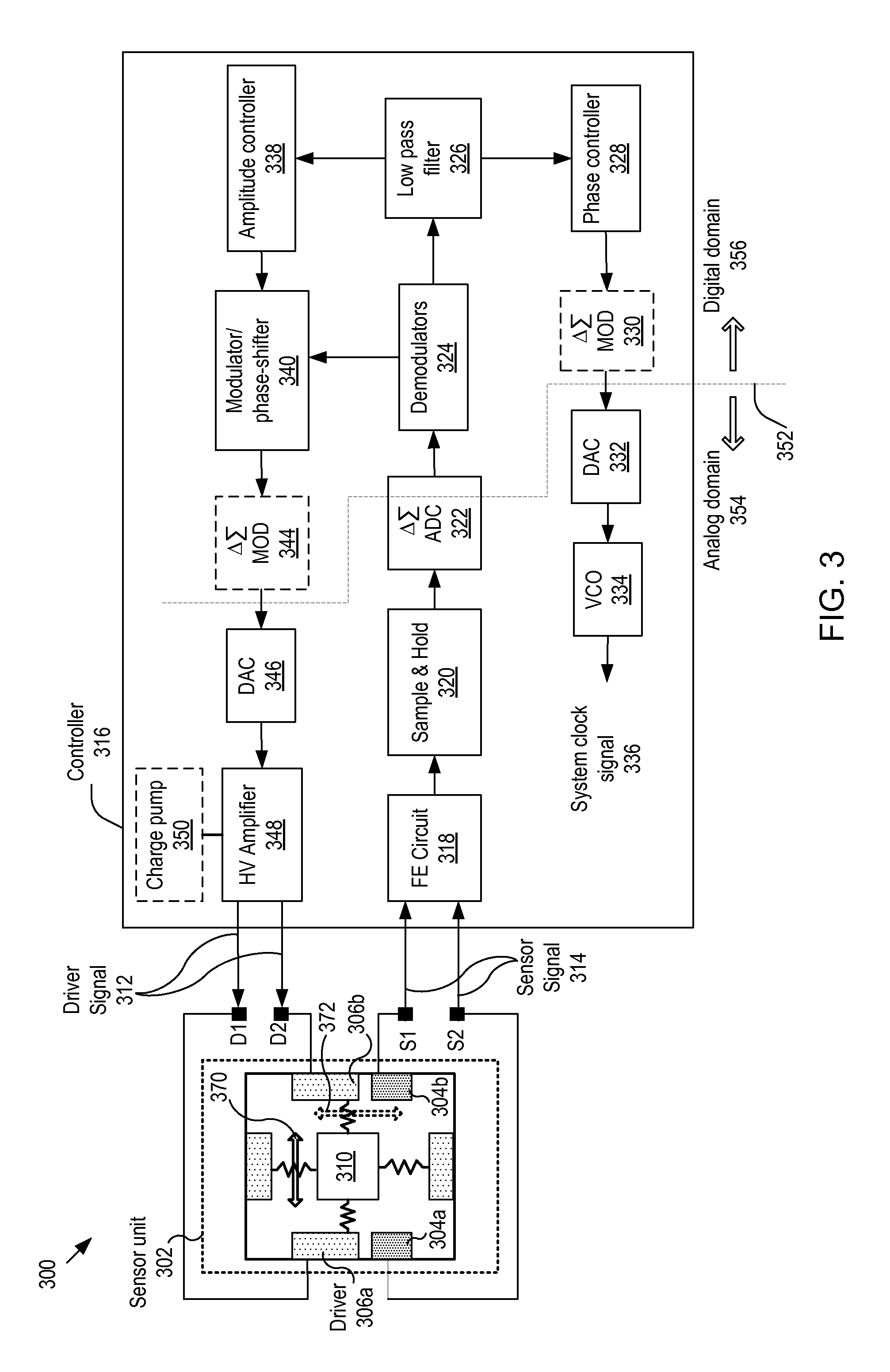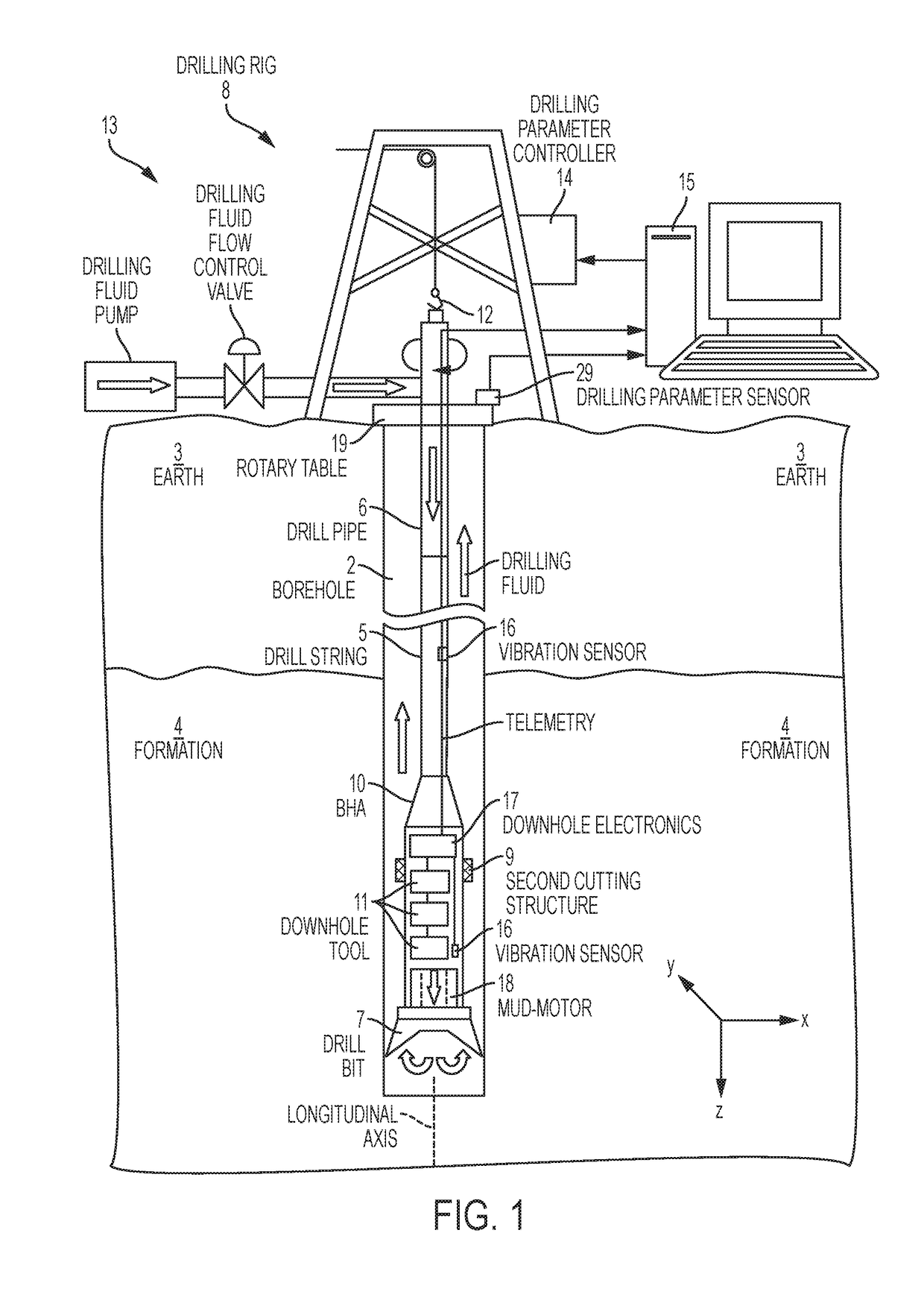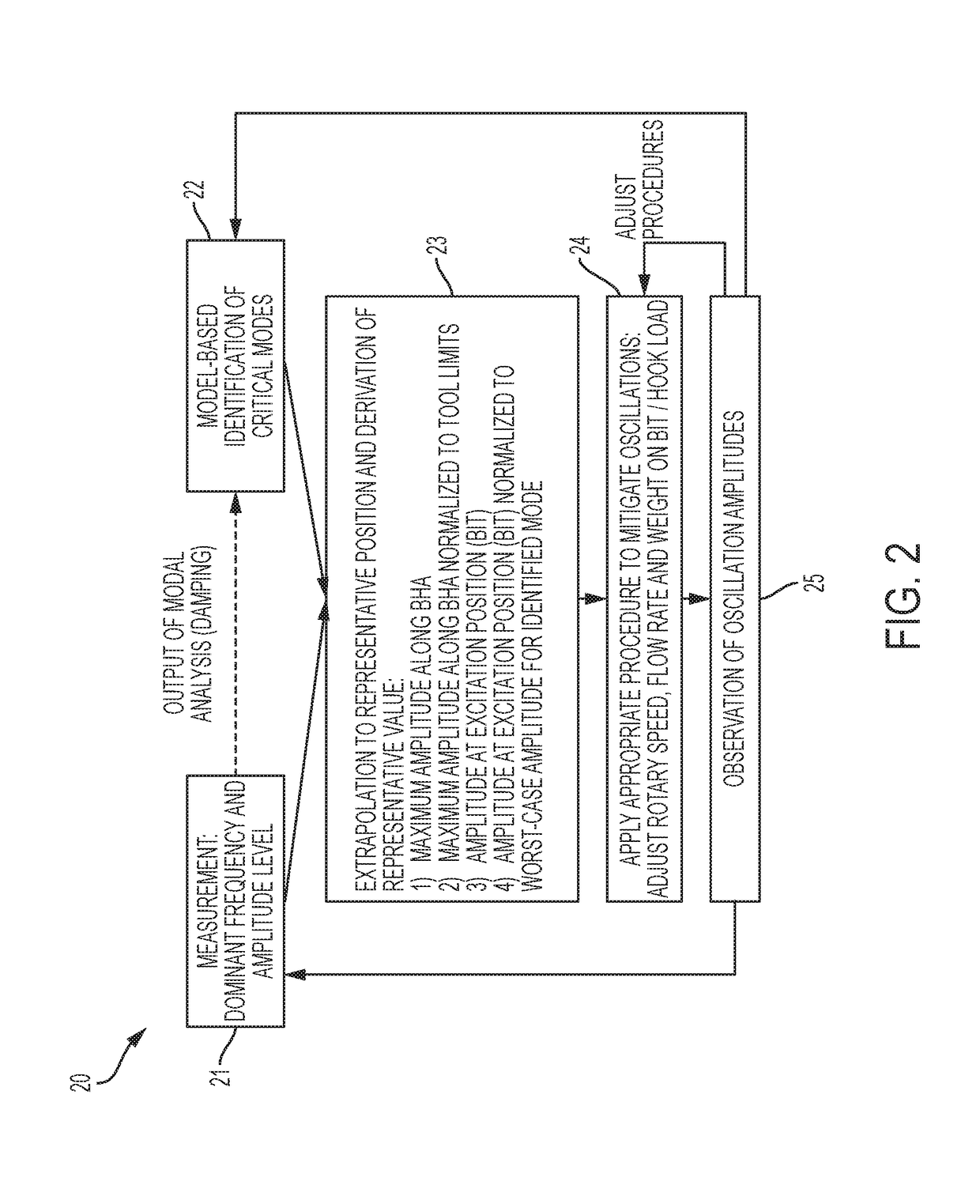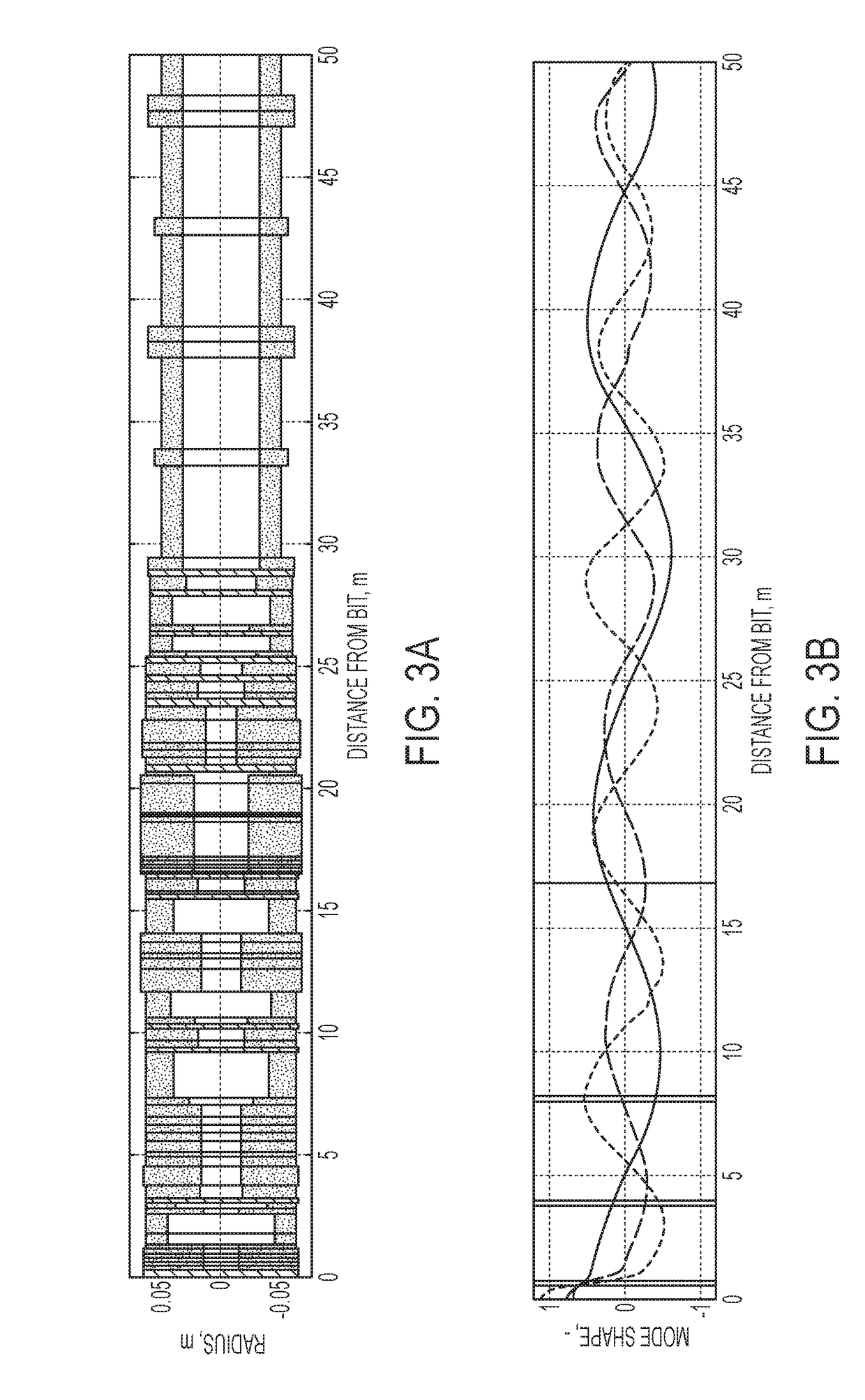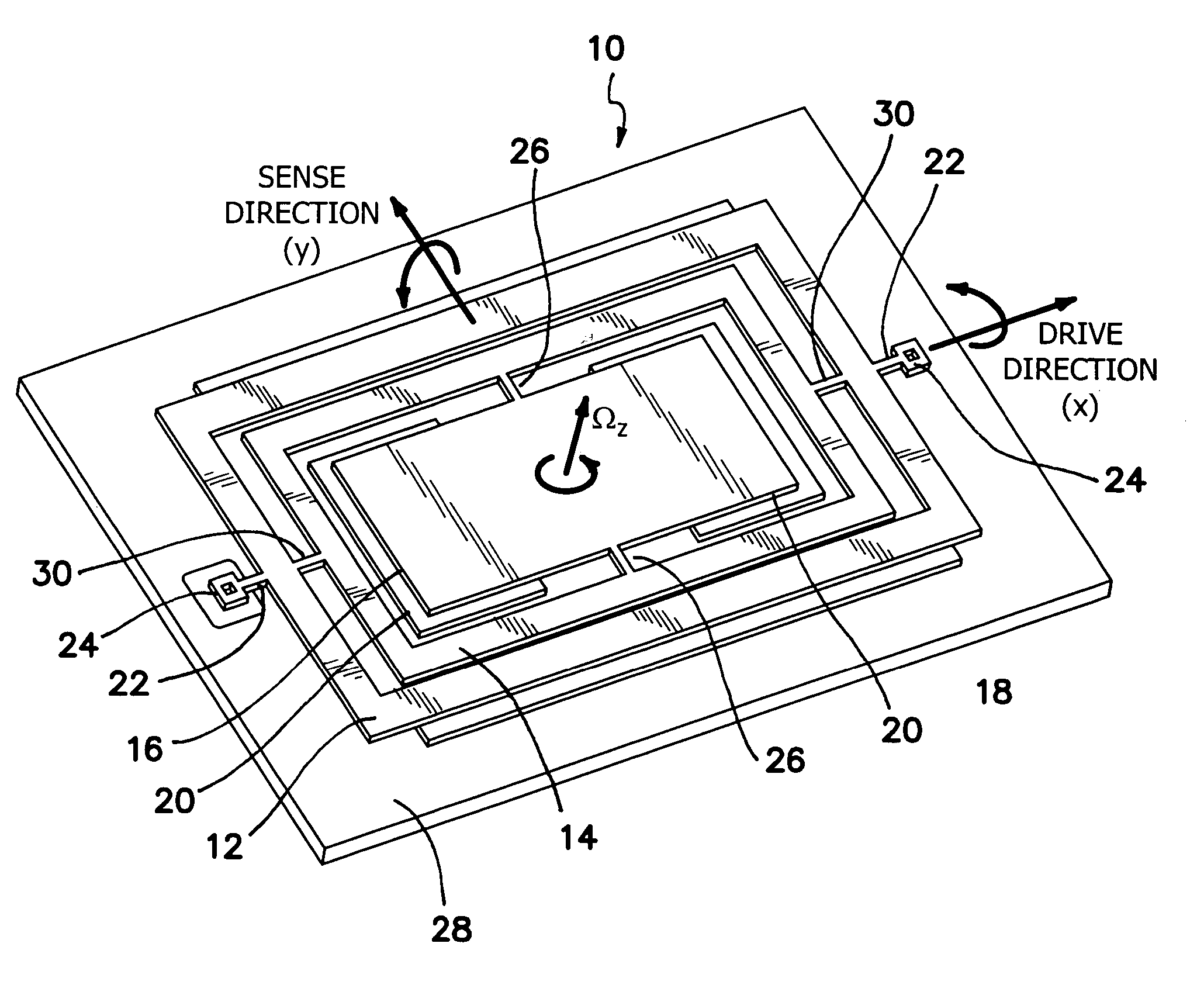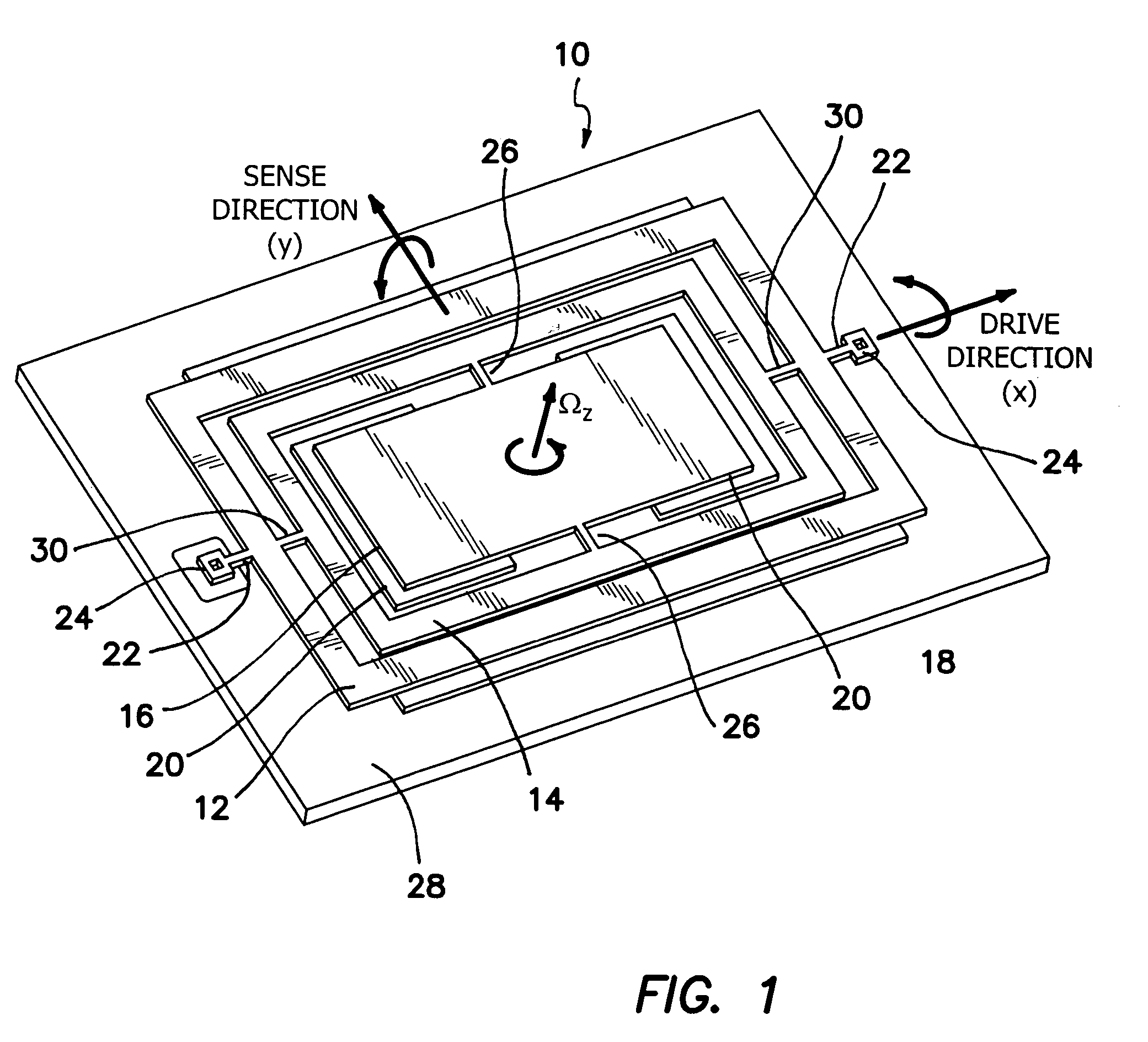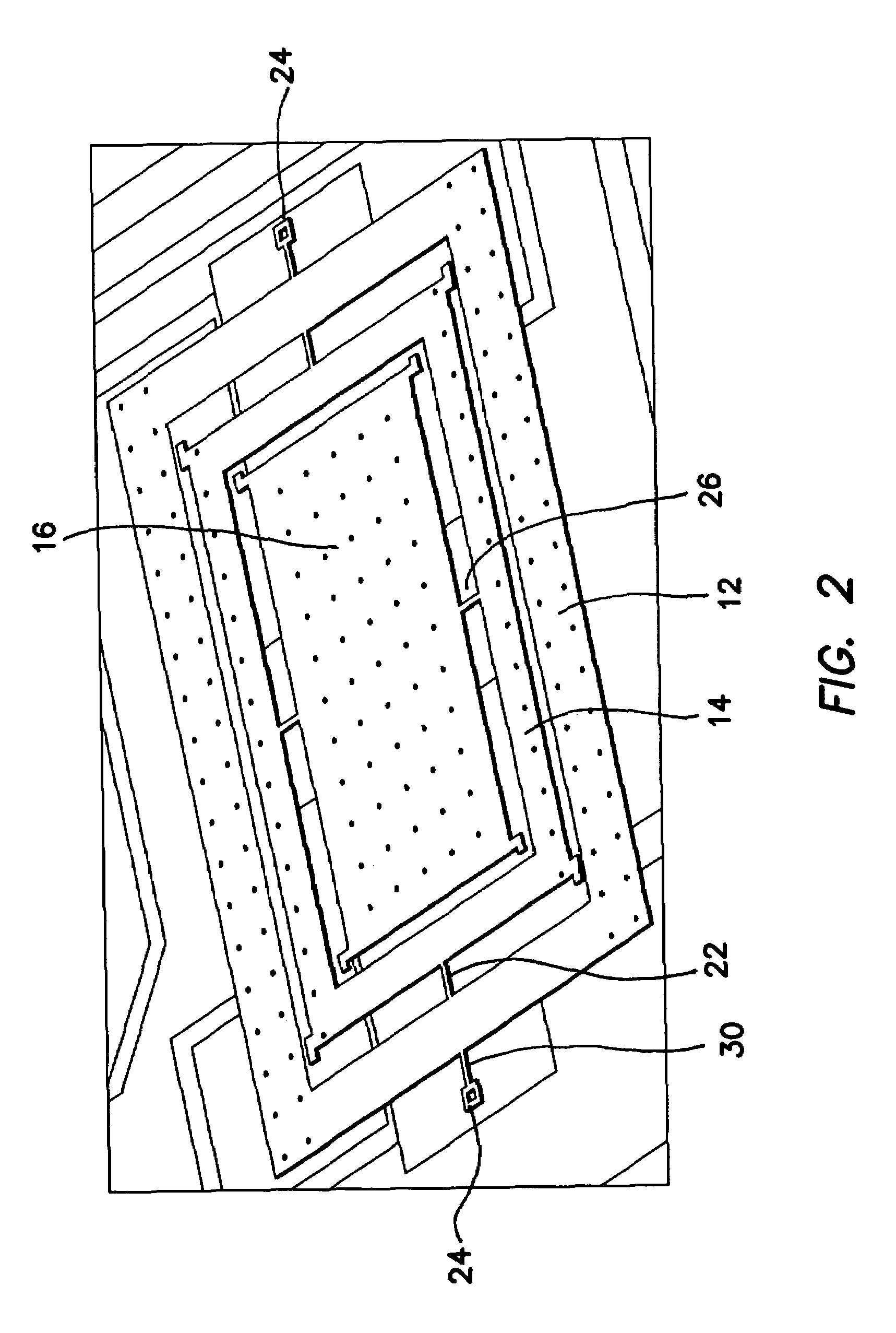Patents
Literature
559 results about "Oscillation amplitude" patented technology
Efficacy Topic
Property
Owner
Technical Advancement
Application Domain
Technology Topic
Technology Field Word
Patent Country/Region
Patent Type
Patent Status
Application Year
Inventor
Oscillation Amplitude. The oscillation amplitude is the amplitude of the voltage at the input and the output side of the oscillation circuit.
Method of and apparatus for real-time continual nanometer scale position measurement by beam probing as by laser beams and the like of atomic and other undulating surfaces such as gratings or the like relatively moving with respect to the probing beams
InactiveUS6639686B1Improved position sensing responseImprove operationNanoopticsInstrumental componentsGratingLight beam
An improved method of and apparatus for real-time continual nanometer scale position measurement by beam probing as by laser beams and the like, both fixed and oscillating or scanning, over an atomic and other undulating surface such as gratings or the like, relatively moving with respect to the probing beams; and providing, where desired, increased detection speeds, improved positioning sensing response, freedom from or relaxed requirements of strict control on probing oscillation amplitude, and multi-dimensional position measurement with focused beam probes and the like.
Owner:NANOWAVE
Piezoelectric resonator, process for the fabrication thereof including its use as a sensor element for the determination of the concentration of a substance contained in a liquid and/or for the determination of the physical properties of the liquid
InactiveUS6196059B1Vibration measurement in solidsAnalysing fluids using sonic/ultrasonic/infrasonic wavesMeasurement deviceFlow cell
Disclosed is a piezoelectric resonator, a process for the fabrication thereof and its use as a sensor element, which implemented in a through-flow cell, is integratable in a measurement system for the determination of the concentration of a substance contained in a liquid and / or for the determination of the physical properties of the liquid. The piezoelectric resonator is designed plane and is provided on its surface with electric contact areas for an electrode and a counter electrode, which is connectable to a signal source as well as to a measurement device. For measuring, the piezoelectric resonator is brought into contact with the to-be-examined liquid on one side, with the resonator responding to the accumulation of the mass of the to-be-detected substance or to a change in the physical properties of the liquid by changing its resonance frequency and / or oscillation amplitude.The present invention is distinguished by the fact that the piezoelectric resonator is provided with contact electrode areas which is contactable from one single side of the resonator. The resonator is the heart piece of a sensor element, which is integrated in a through-flow cell. The through-flow cell us insertable module-like in a measurement arrangement for determining the concentration of a substance contained in a liquid and / or determining the physical properties of the liquid.
Owner:FRAUNHOFER GESELLSCHAFT ZUR FOERDERUNG DER ANGEWANDTEN FORSCHUNG EV
Electromechanical generator for, and method of, converting mechanical vibrational energy into electrical energy
ActiveUS7345372B2Reduce the possibility of damageEasy to operateGeneration protection through controlMachines/enginesEngineeringFrequency oscillation
An electromechanical generator comprising an electromechanical device for converting mechanical vibrational energy into electrical energy, the electromechanical device having a vibratable mass adapted to resonate with an oscillation amplitude at a frequency and a regulator for regulating the oscillation amplitude to a value not greater than a maximum threshold.
Owner:PERPETUUM +1
Adaptive angle and power adaptation in 3d-micro-mirror lidar
ActiveUS20100165323A1Improved object detectionReduce deflection angleOptical rangefindersAnti-collision systemsDriver/operatorLaser scanning
A device for recording a geometry of an environment of a device in a detection field with the aid of laser scanning may include a laser beam controlled by an oscillating micromechanical mirror. The detection field is specifiable in the vertical and horizontal directions by adapting an amplitude of oscillation of the micromechanical mirror. Driver-assistance systems are used for tasks both in the near field, such as a parking function, and in the distant field of the vehicle, such as a distance control or the detection of obstacles on the roadway. If the amplitude of the oscillation of the micro-mirror is then reduced in the horizontal direction and / or vertical direction, the spatial resolution for the reduced detection range is improved. Moreover, the higher intensity of the laser radiation impinging on the smaller detection region improves the signal-to-noise ratio of the detected signal.
Owner:ROBERT BOSCH GMBH
Electromechanical generator for, and method of, converting mechanical vibrational energy into electrical energy
ActiveUS20070210580A1Reduce the possibility of damageExtended service lifeGeneration protection through controlMachines/enginesEngineeringFrequency oscillation
An electromechanical generator comprising an electromechanical device for converting mechanical vibrational energy into electrical energy, the electromechanical device having a vibratable mass adapted to resonate with an oscillation amplitude at a frequency and a regulator for regulating the oscillation amplitude to a value not greater than a maximum threshold.
Owner:PERPETUUM +1
Torsional nonresonant z-axis micromachined gyroscope with non-resonant actuation to measure the angular rotation of an object
InactiveUS20060032308A1Minimizing nonlinear force profileMinimizing instabilityAcceleration measurement using interia forcesSpeed measurement using gyroscopic effectsGyroscopeParallel plate
A gimbal-type torsional z-axis micromachined gyroscope with a non-resonant actuation scheme measures angular rate of an object with respect to the axis normal to the substrate plane (the z-axis). A 2 degrees-of-freedom (2-DOF) drive-mode oscillator is comprised of a sensing plate suspended inside two gimbals. By utilizing dynamic amplification of torsional oscillations in the drive-mode instead of resonance, large oscillation amplitudes of the sensing element is achieved with small actuation amplitudes, providing improved linearity and stability despite parallel-plate actuation. The device operates at resonance in the sense direction for improved sensitivity, while the drive direction amplitude is inherently constant within the same frequency band.
Owner:RGT UNIV OF CALIFORNIA
X-Y axis dual-mass tuning fork gyroscope with vertically integrated electronics and wafer-scale hermetic packaging
InactiveUS7621183B2Acceleration measurement using interia forcesSpeed measurement using gyroscopic effectsTuning forkWafering
An angular velocity sensor has two masses which are laterally disposed in an X-Y plane and indirectly connected to a frame. The two masses are linked together by a linkage such that they necessarily move in opposite directions along Z. Angular velocity of the sensor about the Y axis can be sensed by driving the two masses into Z-directed antiphase oscillation and measuring the angular oscillation amplitude thereby imparted to the frame. In a preferred embodiment, the angular velocity sensor is fabricated from a bulk MEMS gyroscope wafer, a cap wafer and a reference wafer. In a further preferred embodiment, this assembly of wafers provides a hermetic barrier between the masses and an ambient environment.
Owner:INVENSENSE
X-y axis dual-mass tuning fork gyroscope with vertically integrated electronics and wafer-scale hermetic packaging
ActiveUS20080115579A1High measurement accuracyGood Common Mode RejectionAcceleration measurement using interia forcesSpeed measurement using gyroscopic effectsTuning forkGyroscope
An angular velocity sensor has two masses which are laterally disposed in an X-Y plane and indirectly connected to a frame. The two masses are linked together by a linkage such that they necessarily move in opposite directions along Z. Angular velocity of the sensor about the Y axis can be sensed by driving the two masses into Z-directed antiphase oscillation and measuring the angular oscillation amplitude thereby imparted to the frame. In a preferred embodiment, the angular velocity sensor is fabricated from a bulk MEMS gyroscope wafer, a cap wafer and a reference wafer. In a further preferred embodiment, this assembly of wafers provides a hermetic barrier between the masses and an ambient environment.
Owner:INVENSENSE
Active probe for an atomic force microscope and method for use thereof
InactiveUS20050066714A1High-speed imagingAccurate measurementNanotechElectric discharge tubesControl signalFeedback circuits
An AFM that combines an AFM Z position actuator and a self-actuated Z position cantilever (both operable in cyclical mode and contact mode), with appropriate nested feedback control circuitry to achieve high-speed imaging and accurate Z position measurements. A preferred embodiment of an AFM for analyzing a surface of a sample in either ambient air or fluid includes a self-actuated cantilever having a Z-positioning element integrated therewith and an oscillator that oscillates the self-actuated cantilever at a frequency generally equal to a resonant frequency of the self-actuated cantilever and at an oscillation amplitude generally equal to a setpoint value. The AFM includes a first feedback circuit nested within a second feedback circuit, wherein the first feedback circuit generates a cantilever control signal in response to vertical displacement of the self-actuated cantilever during a scanning operation, and the second feedback circuit is responsive to the cantilever control signal to generate a position control signal. A Z position actuator is also included within the second feedback circuit and is responsive to the position control signal to position the sample. In operation, preferably, the cantilever control signal alone is indicative of the topography of the sample surface. In a further embodiment, the first feedback circuit includes an active damping circuit for modifying the quality factor (“Q”) of the cantilever resonance to optimize the bandwidth of the cantilever response.
Owner:BRUKER NANO INC
Nonresonant micromachined gyroscopes with structural mode-decoupling
ActiveUS7377167B2Oscillation amplitude is largeMinimizes instabilityAcceleration measurement using interia forcesSpeed measurement using gyroscopic effectsDegrees of freedomFrequency response
A four-degrees-of-freedom (DOF) nonresonant micromachined gyroscope utilizes a dynamical amplification both in the drive-direction oscillator and the sense-direction oscillator, which are structurally decoupled, to achieve large oscillation amplitudes without resonance. The overall dynamical system is comprised of three proof masses. The second and third masses form the sense-direction oscillator. The first mass and the combination of the second and third masses form the drive-direction oscillator. The frequency responses of the drive and sense-mode oscillators have two resonant peaks and a flat region between the peaks. The device is nominally operated in the flat regions of the response curves belonging to the drive and sense-mode oscillators, where the gain is less sensitive to frequency fluctuations. This is achieved by designing the drive and sense anti-resonance frequencies to match.
Owner:RGT UNIV OF CALIFORNIA
High-linearity relaxation oscillator
ActiveCN103546123AImprove linearityLong cyclePulse generation by differential amplifiersTransmission gateCapacitor voltage
The invention provides a relaxation oscillator of which the linearity is significantly improved. The relaxation oscillator comprises an oscillating circuit, a reference level self-regulating circuit and a transmission gate selective signal generating circuit. Capacitor voltage overshoot caused by delay of a control circuit is worked out by detecting the voltage peak of charge and discharge capacitors in the oscillating circuit, and accordingly the reference level of comparators in the oscillating circuit is reduced by a corresponding quantity to serve as a new reference level so that the oscillation amplitude of the charge and discharge capacitors can be just a theoretical value. According to the high-linearity relaxation oscillator, when the new reference level is larger than zero, influence, brought by the capacitor voltage overshoot caused by delay of the control circuit, of the charge and discharge capacitors on output frequency is eliminated, and the linearity of a frequency-control circuit of the relaxation oscillator is significantly improved. The transmission gate selective signal generating circuit provides the initial reference level for the comparators by controlling transmission gates and transmits the new reference level to the reverse phase ends of the comparators when the new reference level is generated, and therefore the initial reference level can be isolated from the reverse phase ends of the comparators.
Owner:SOUTHEAST UNIV
Super-regenerative receiver including phase-locked loop
ActiveUS7215936B2Increase power consumptionIncrease working frequencyRadio transmissionDemodulator for amplitude-modulated oscillationsLoop filterControl signal
An improved low-cost super-regenerative receiver includes sampling phase-locked loop. Phase sampling is controlled by the quench signal (264). In the preferred embodiment, logic state HIGH to logic state LOW transition of the quench signal (264) defines the timing for the event of sampling. While the quench signal (264) is in logic state HIGH, a quenched oscillator is being turned ON and the oscillation amplitude builds-up until a steady-state level is reached. When the oscillator is turned OFF, effective quality factor of an electronically tunable resonator (206) is reduced, by increasing losses in the circuit, thus to ensure aperiodic (non-oscillatory) decay. The resonator's charge—an energy stored on internal reactive components of the resonator (206), which existed at the instant of turning the oscillations OFF, is transferred during precisely defined period of time to the charge holding capacitor (404) of a charge transfer circuit (216). Charge is stored on the charge holding capacitor (404), which is also part of a loop filter, until the described here charge transfer cycle is repeated again. A frequency control signal (268) at the output of the loop filter sets the frequency of the oscillation for the duration of the succeeding oscillator ON time.
Owner:SADOWSKI BOGDAN
Nonresonant micromachined gyroscopes with structural mode-decoupling
ActiveUS20050199061A1Oscillation amplitude is largeMinimizes instabilityAcceleration measurement using interia forcesSpeed measurement using gyroscopic effectsDegrees of freedomFrequency response
A four-degrees-of-freedom (DOF) nonresonant micromachined gyroscope utilizes a dynamical amplification both in the 2-DOF drive-direction oscillator and the 2-DOF sense-direction oscillator, which are structurally decoupled, to achieve large oscillation amplitudes without resonance. The overall 4-DOF dynamical system is comprised of three proof masses. The second and third masses form the 2-DOF sense-direction oscillator. The first mass and the combination of the second and third masses form the 2-DOF drive-direction oscillator. The frequency responses of the drive and sense-mode oscillators have two resonant peaks and a flat region between the peaks. The device is nominally operated in the flat regions of the response curves belonging to the drive and sense-mode oscillators, where the gain is less sensitive to frequency fluctuations. This is achieved by designing the drive and sense anti-resonance frequencies to match.
Owner:RGT UNIV OF CALIFORNIA
Earthquake protection consisting of vibration-isolated mounting of buildings and objects using virtual pendulums with long cycles
InactiveUS6966154B1Avoid spreadingNon-rotating vibration suppressionFoundation engineeringComputer moduleEarthquake prediction
The invention relates to an earthquake protection system that is entirely immune to seismic activity. According to the inventive method buildings and other objects are supported by Virtual Pendulums (Pv) designed as QuakeProtect Modules (56). Although requiring only little height for installation, these earthquake protection modules allow a freedom of movement for the load bearing support points of the supported structure as if they were the oscillating ends of long pendulums with long cycles of their own. As the result of which the supported object is efficiently isolated from the considerably higher frequent earthquake ground oscillations. The functional behavior of the system is not affected by the extent of the base acceleration or the frequency of the ground oscillation. Even in an earthquake of greatest magnitude the supported object will remain still. The system can be configured for any load and any conceivable ground oscillation amplitudes.The invention describes four different examples of solutions that apply the inventive method, variants and devices derived therefrom for various applications. Additionally are described devices needed to provide support against wind forces and to center a supported object under wind loads and during ground oscillations, and as well devices for the isolation of vertical ground oscillations.
Owner:PLANDESIGN INT
Driver device, physical quantity measuring device, and electronic instrument
InactiveUS20080105054A1Vibration measurement in solidsAcceleration measurement using interia forcesAudio power amplifierResonance
A driver device includes a gain control amplifier that causes a vibrator to produce driving vibrations by controlling an oscillation amplitude in an oscillation loop, a signal generation circuit that generates a signal having a given frequency, and a modulation circuit that modulates the frequency of the signal generated by the signal generation circuit to a resonance frequency of the vibrator. The driver device causes the vibrator to produce the driving vibrations using the signal modulated by the modulation circuit, and then causes the vibrator to produce the driving vibrations by controlling the oscillation amplitude in the oscillation loop formed by the vibrator and the gain control amplifier.
Owner:SEIKO EPSON CORP
Successive approximation type analog/digital converter
ActiveCN102801422AReduce application complexitySolve the problem of voltage overshootAnalogue/digital conversionElectric signal transmission systemsCapacitanceVoltage overshoot
The invention discloses a successive approximation type analog / digital converter, wherein a capacitor array digital / analog conversion circuit comprises a capacitor array, an auxiliary capacitor is connected between the capacitor array and the output end of a comparer, and the oscillation amplitude between the capacitor array and the output end of the comparer ranges from 0V to power voltage when the capacitance value of the auxiliary capacitor is selected in a range enabling the oscillation amplitude of the input voltage to be from 0V to the power voltage. A measure of carrying out limiting and compression on a quantification range or increasing complicated circuits, which is adopted for preventing voltage overshoot in the traditional scheme, is avoided. According to the circuit structure provided by the invention, the requirements on input offset of the comparer in the ADC (analog / digital converter) and performance of other internal circuits are reduced, so that higher resolution ratio can be achieved under the condition of not increasing power consumption of the ADC using the circuit structure.
Owner:SOI MICRO CO LTD
Direct conversion of nanoscale thermal radiation to electrical energy using pyroelectric materials
InactiveUS20110298333A1Minimize thermal contact resistanceEnhance radiative heat fluxThermoelectric device with dielectric constant thermal changeThermal electric motorComposite filmPower cycle
The embodiment provided herein are directed to a pyroelectric (PE) energy converter which is capable of combining nanoscale thermal radiation and pyroelectric energy conversion for harvesting low grade waste heat. The converter advantageously makes use of the enhanced radiative heat transfer across a nanosize gap to achieve high operating frequencies or large temperature oscillations in a composite PE plate. The PE energy converter generally comprises a hot source, a cold source, and a PE plate, wherein the PE plate oscillates between the hot and cold source and the PE plate can be subjected to a power cycle in the displacement-electric field diagram. The hot and cold sources of the converter can be coated with SiO2 absorbing layer to further enhance the radiative heat fluxes. The converter comprising a PE plate made of 60 / 40 P(VDF-TrFE) operated between 273 K and 388 K experiences a maximum efficiency of 0.2% and a power density of 0.84 mW / cm2. The converter comprising a PE plate made of 0.9PMN-PT composite thin films achieve a higher efficiency and a larger power output namely 1.3% and 6.5 mW / cm2, respectively, for a temperature oscillation amplitude of 10 K around 343 K at 5 Hz.
Owner:RGT UNIV OF CALIFORNIA
Method for positioning oscillation disturbance source in power system
ActiveCN102122823AConsistent damping strengthImprove the level of dynamic stabilityPower oscillations reduction/preventionFault locationTime informationStart time
The invention discloses a method for positioning an oscillation disturbance source in a power system. The method comprises the following steps of: acquiring voltage, current, power physical quantity of a plurality of measuring points in a multi-voltage class power grid and meeting the following conditions: 1, whether each measuring point is subjected to low-frequency synchronous power oscillationis monitored in real time, and an oscillation amplitude, a main oscillation mode frequency, main oscillation mode damping, an initial phase of the main oscillation mode and oscillation initial time information are provided; 2, two frequencies in the main oscillation mode of the measuring points which are subjected to low-frequency oscillation accord with the condition that an absolute value of delta f is less than delta Fset; 3, the oscillation initial time of the measuring points which are subjected to low-frequency oscillation has a sequence relationship, and a clear characteristic that theoscillation starting time of measuring points in a low-voltage class power grid is earlier than the oscillation starting time of measuring points in a high-voltage class power grid; and 4, the average frequency fave of the main oscillation mode of each measuring point which is subjected to low-frequency oscillation accords with the condition that fave is more than fmin and less than fmax; and when the conditions are accorded, determining that the power system is subjected to low-frequency oscillation and a local power grid in an area with the earliest oscillation starting time is the oscillation disturbance source.
Owner:NR ELECTRIC CO LTD +2
Beam-forming antenna with amplitude-controlled antenna elements
ActiveUS7456787B2Less costlyBeacon systemsRadio transmissionElectromagnetic couplingAudio power amplifier
A beam-forming antenna for transmission and / or reception of an electromagnetic signal having a given wavelength in a surrounding medium includes a transmission line electromagnetically coupled to an array of individually controllable antenna elements, each of which is oscillated by the signal with a controllable amplitude. The antenna elements are arranged in a linear array and are spaced from each other by a distance that does not exceed one-third the signal's wavelength in the surrounding medium. The oscillation amplitude of each of the individual antenna elements is controlled by an amplitude controlling device, such as a switch, a gain-controlled amplifier, or a gain-controlled attenuator. The amplitude controlling devices, in turn, are controlled by a computer that receives as its input the desired beamshape, and that is programmed to operate the amplitude controlling devices in accordance with a set of stored amplitude values derived empirically for a set of desired beamshapes.
Owner:SIERRA NEVADA CORP
Horizontal plane motion mechanism for towing tank test
The invention discloses a horizontal plane motion mechanism for a towing tank test, which comprises a plane motion mechanism comprising a transverse oscillation frame 8, a transverse oscillation motion component 9, a yawing oscillation motion component 10, a transverse beam 6, a front connecting rod 5, a front connecting rod 11, adjusting rods 4 and 12, joints 3 and 13, force balances 2 and 14, and the like. The upper part of the horizontal plane motion mechanism is connected with a tank trailer 7 through the transverse oscillation frame 8, while the lower part is connected with a ship model 1 through the connecting rods 5 and 11 and force balances 2 and 14. By adopting a rolling guide rail, the transverse oscillation motion component has the characteristics of long service life, free maintenance for long-term work, high speed, low noise, high capacity of absorbing a mounting dimension error, and the like; and the transverse oscillation amplitude is over + / -1m, the ball screw precision is high and a transverse oscillation amplitude error is less than 0.2mm. Due to the adoption of a self-lubricating bearing and worm gear transmission, the yawing oscillation motion component has the advantages of wide rotation angle range, high torque, high self-locking property and high precision. A plurality of groups of connecting rod mounting holes are formed on the transverse beam and are suitable for different ship models. The connecting rod is provided with a linear bearing, and when the ship model is influenced by an external force to oscillate up and down, the connecting rod automatically adjusts the length, can remove a force in the vertical direction, and improves the accuracy of the maneuvering performance test. The control system is driven by a servo motor, a photoelectric encoder is used for sampling and feeding back, and a PLC programmable logic controller is used for controlling. The horizontal plane motion mechanism has the advantages of convenient control.
Owner:SHANGHAI ZHUGUANG MACHINERY +1
Broad-band, low frequency, high-amplitude, long time duration, oscillating airway pressure breathing apparatus and method utilizing bubbles
ActiveUS20110073112A1Stabilize lung volumeIncrease gas exchangeTracheal tubesRespiratory masksMeasurement deviceFrequency spectrum
It has been discovered that high amplitude, low frequency, broadband spectrum pressure oscillations of sufficient time duration can help stabilize lung volumes and improve gas exchange in a patient receiving ventilation assistance by helping to recruit and stabilize alveoli. A novel device is presented which can produce pressure oscillations having high amplitudes, a low broad-band frequency spectrum and long time duration. Additionally, the device can maintain a patient's mean airway pressure at one or more controlled levels. The device can control the oscillatory amplitude, frequency range and composition, time duration, and mean airway pressure levels by adjusting certain device parameters, such as the angle and depth of the device in a fluid. A device and mechanical system for remotely adjusting and measuring the angle of the device in a fluid are also disclosed. Furthermore, a device and system are disclosed that can deliver pressure oscillations having high amplitudes, a low broad-band frequency spectrum, long time duration, and multiple mean airway inspiratory and expiratory pressure levels. The device and system also provide means for controlling respiration timing in a patient, including: breaths per minute, inspiratory time, and the ratio of inspiratory to expiratory time.
Owner:SEATTLE CHILDRENS HOSPITAL
Variable foil machine
ActiveUS20140097621A1High strengthOptimize energy harvestingPropulsion based emission reductionWind motor controlEngineeringEnergy converter
The Variable Foil Machine harnesses fluid flow energy and propels fluids. A variable foil (120) with reversible camber is secured to a leading draft member (150) movable on a leading support (122) and to a trailing draft member (130) movable on a trailing support (136). The trailing draft member (130) is secured to a trailing guide (132) via a crank arm (148). Apparatus can be installed on the ground or on a pivoting base (138). In one embodiment, the leading draft member (150) is fixed while the trailing draft member (130) oscillates. In another embodiment, an oscillation amplitude offset between leading draft member (150) and trailing draft member (130) promotes cyclic translation of the variable foil (120). An energy converter (142) may be cooperatively coupled to produce energy or perform work. Selective combination of moving parts provides a versatile choice of modes of operation for power generation, work and communication.
Owner:HANS DWAYNE CARTOUCHE JR MR +1
Vascular testing system
ActiveUS20060052714A1Desired locationReduce applicationsEvaluation of blood vesselsCatheterMedicinePeak value
A method of vascular testing includes inflating a cuff at a vascular location, controllably deflating the cuff, producing a pressure waveform while deflating the cuff, and producing an output representing a pressure at which blood flow returns, while deflating the cuff, based upon analysis of the pressure waveform. Further, a testing system for measuring vascular pressures according to the present invention includes a pressure applicator, a pressure sensor, and a diagnostic test unit. The pressure applicator is positionable along exterior portions of a human body for dynamically applying pressure to a desired vascular location. The pressure sensor is capable of detecting oscillations in a pressure at the pressure applicator. The testing system is capable of determining a peak pressure oscillation amplitude, and is also capable of determining, as a function of the peak pressure oscillation amplitude, a pressure of a return of flow at the desired vascular location as pressure applied to the desired vascular location by the pressure applicator is lessened.
Owner:COLLABORATIVE CARE DIAGNOSTICS
Shifting register unit, grid electrode drive circuit and drive method
InactiveCN106847221ASimple structureWith full swing outputStatic indicating devicesDigital storageShift registerCapacitance
The invention discloses a shifting register unit, a grid electrode drive circuit comprising the shifting register unit and a drive method used for the shifting register unit. The shifting register unit comprises an input module, an output module, an output return module and a first capacitor, wherein the first capacitor is connected between an upper pulling node and a second clock signal end, and is configured to keep high electrical level of the upper pulling node by a second clock signal accessed through a second clock signal end. The shifting register unit further comprises a second capacitor which is connected between a lower pulling node and a first voltage input end, and is configured to reduce electric level of the lower pulling node by reverse bias voltage accessed through the first voltage input end within blanking time after one-frame scanning is ended. The shifting register unit is simple in structure, has full-oscillation-amplitude output, is low in power loss, is small in noise, and restores drifting of threshold voltage of a film transistor connected with an output end, so that normal display of a liquid crystal panel is kept.
Owner:BOE TECH GRP CO LTD +1
Multi-band LC resonance voltage-controlled oscillator with adjustable negative resistance cell
InactiveUS20070132522A1Suppress phase noiseSuppress noiseResonant circuit tuningPulse automatic controlCapacitanceMulti band
Provided is an LC resonance voltage-controlled oscillator (VCO) used for a multi-band multi-mode wireless transceiver. In order to generate a multi-band frequency, a capacitor bank and a switchable inductor are included in the LC resonance voltage-controlled oscillator. The LC resonance voltage-controlled oscillator employs an adjustable emitter-degeneration negative resistance cell in place of tail current sources in order to compensate for non-uniform oscillation amplitude caused by the capacitor bank and prevent the degradation of a phase noise due to the tail current sources. The LC resonance voltage-controlled oscillator includes an inductor providing an inductance element partially determining the frequency of an oscillation wave; a discrete capacitor bank providing a capacitance element partially determining the frequency of the oscillation wave and being discretely determined by a control bit signal; and a discrete negative resistance cell providing a negative resistance element that is discretely determined by the control bit signal, to keep the amplitude of the oscillation wave constant.
Owner:ELECTRONICS & TELECOMM RES INST
Resonator-based magnetic field sensor
The resonator-based magnetic field sensor system has an oscillatory member as resonator, means for driving an electrical current through said resonator such that its resonance frequency is altered by an external magnetic field to be measured (measurand), and means for detecting or measuring said altered resonance frequency. A secondary excitation of the resonator is effected to determine the said altered resonance frequency from which the measurand can be deduced. In the preferred embodiment, the secondary excitation is included in a closed loop, thus creating an oscillator vibrating at the altered resonance frequency. Though it is known to use the oscillation amplitude of a suitable resonator for this purpose, the novel sensor system identifies and / or measures the frequency (not the amplitude) of the oscillation, which is a function of the magnetic field to be measured.
Owner:SENSIRION AG
Detection device and method for oscillating attitude of planar mirrow
InactiveCN1487264AImprove energy utilizationEliminate the effects of driftLaser detailsUsing optical meansMicrocontrollerPlane mirror
The present invention is detection device and method for oscillating attitude of planar mirror. Semiconductor laser is driven in AC modulation mode, and the laser beam is made to pass through shaping and collimating lens, polarizing and light splitting prism and quarter wave plate and transmit to planar mirror; the reflected light beam is focused onto collector lens to image on quadrant optoelectronic detector; the output signal of the detector is processed in preamplifier and calculation circuit to output alternate voltage signal representing the 2D oscillation amplitude of the planarmirror, the alternate voltge signal is processed in phase locking detection circuit and converted into DC voltage signals in two directions; and the DC voltage signals are A / D converted and processed in monochip computer with relevant software to obtain the 2D oscillating angles. The method is simple in measurement principle, and the device has measurement range of + / -30 min and measurement precision superor to 0.5 min.
Owner:TSINGHUA UNIV
Electro-mechanical resonance loop
ActiveUS20140300425A1Reduce startup timeImprove immunityOscillations generatorsGyroscopes/turn-sensitive devicesEngineeringMechanical resonance
The invention relates to a controller, and more particularly, to systems, devices and methods of controlling a sensor having a resonating mass. The controller includes: an analog-to-digital converter (ADC) unit for extracting a digitized sensor signal from the sensor signal; a phase controller for generating, based on the digitized sensor signal, a phase-controlled signal that is locked in phase with the digitized sensor signal; an amplitude controller for applying a gain to the digitized sensor signal to thereby generate an amplitude-adjusted signal; a modulator for modulating the amplitude-adjusted signal to thereby generate a modulated signal; and a phase shifter for shifting the phase of the modulated signal by 90 degrees. The output signal from the phase shifter is amplified and input to the drive for exciting the resonating mass, to thereby form a closed resonance loop for controlling the oscillation amplitude of the resonating mass.
Owner:HANKING ELECTRONICS LTD
Normalized status variables for vibration management of drill strings
A method for adjusting a drilling parameter of a drill string includes: determining one or more modes of the drill string; sensing a first oscillation amplitude at a first position in the drill string and / or an oscillation parameter of the drill string at the first position or a second position to provide measured first oscillation amplitude data and / or measured oscillation parameter data; identifying a mode of the drill string using one or more determined modes and a stability criterion and at least one of the measured first oscillation amplitude data and the measured oscillation parameter data; calculating an oscillation amplitude at a position of interest in the drill string using the identified mode and at least one of the measured first oscillation amplitude data, the measured oscillation parameter data and the stability criterion; and adjusting the drilling parameter in response to the calculated oscillation amplitude at the position of interest.
Owner:BAKER HUGHES INC
Torsional nonresonant z-axis micromachined gyroscope with non-resonant actuation to measure the angular rotation of an object
InactiveUS7421898B2Oscillation amplitude is largeLarge capacitanceAcceleration measurement using interia forcesSpeed measurement using gyroscopic effectsGyroscopeParallel plate
A gimbal-type torsional z-axis micromachined gyroscope with a non-resonant actuation scheme measures angular rate of an object with respect to the axis normal to the substrate plane (the z-axis). A 2 degrees-of-freedom (2-DOF) drive-mode oscillator is comprised of a sensing plate suspended inside two gimbals. By utilizing dynamic amplification of torsional oscillations in the drive-mode instead of resonance, large oscillation amplitudes of the sensing element is achieved with small actuation amplitudes, providing improved linearity and stability despite parallel-plate actuation. The device operates at resonance in the sense direction for improved sensitivity, while the drive direction amplitude is inherently constant within the same frequency band.
Owner:RGT UNIV OF CALIFORNIA
Features
- R&D
- Intellectual Property
- Life Sciences
- Materials
- Tech Scout
Why Patsnap Eureka
- Unparalleled Data Quality
- Higher Quality Content
- 60% Fewer Hallucinations
Social media
Patsnap Eureka Blog
Learn More Browse by: Latest US Patents, China's latest patents, Technical Efficacy Thesaurus, Application Domain, Technology Topic, Popular Technical Reports.
© 2025 PatSnap. All rights reserved.Legal|Privacy policy|Modern Slavery Act Transparency Statement|Sitemap|About US| Contact US: help@patsnap.com
